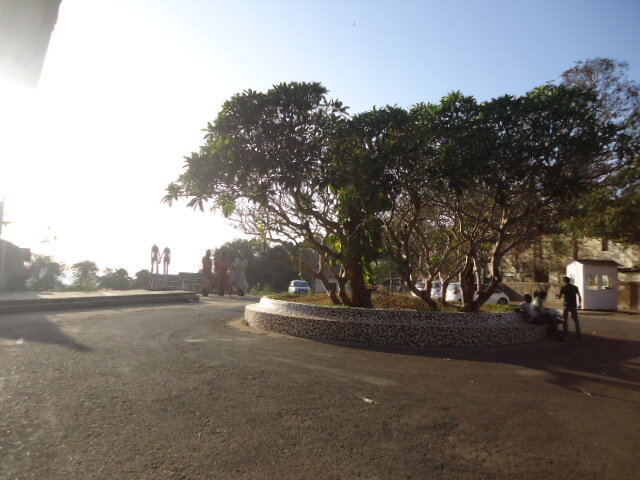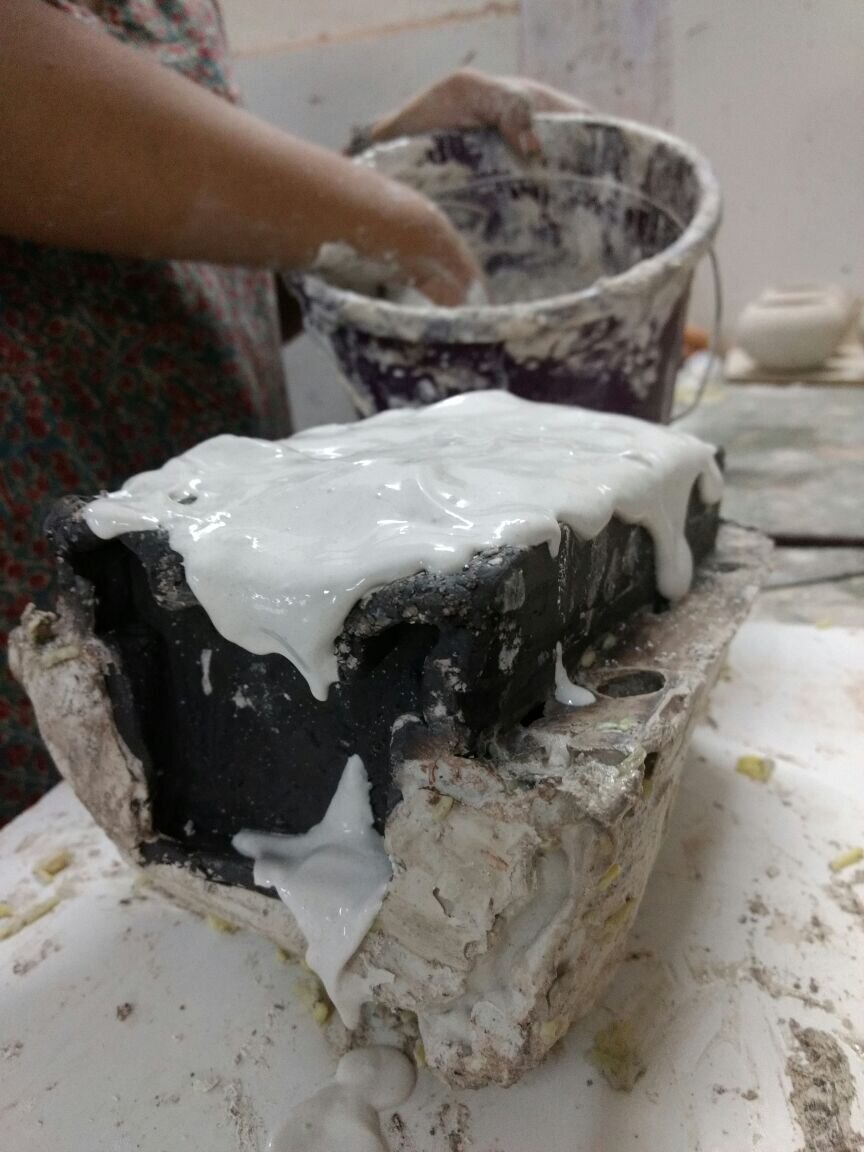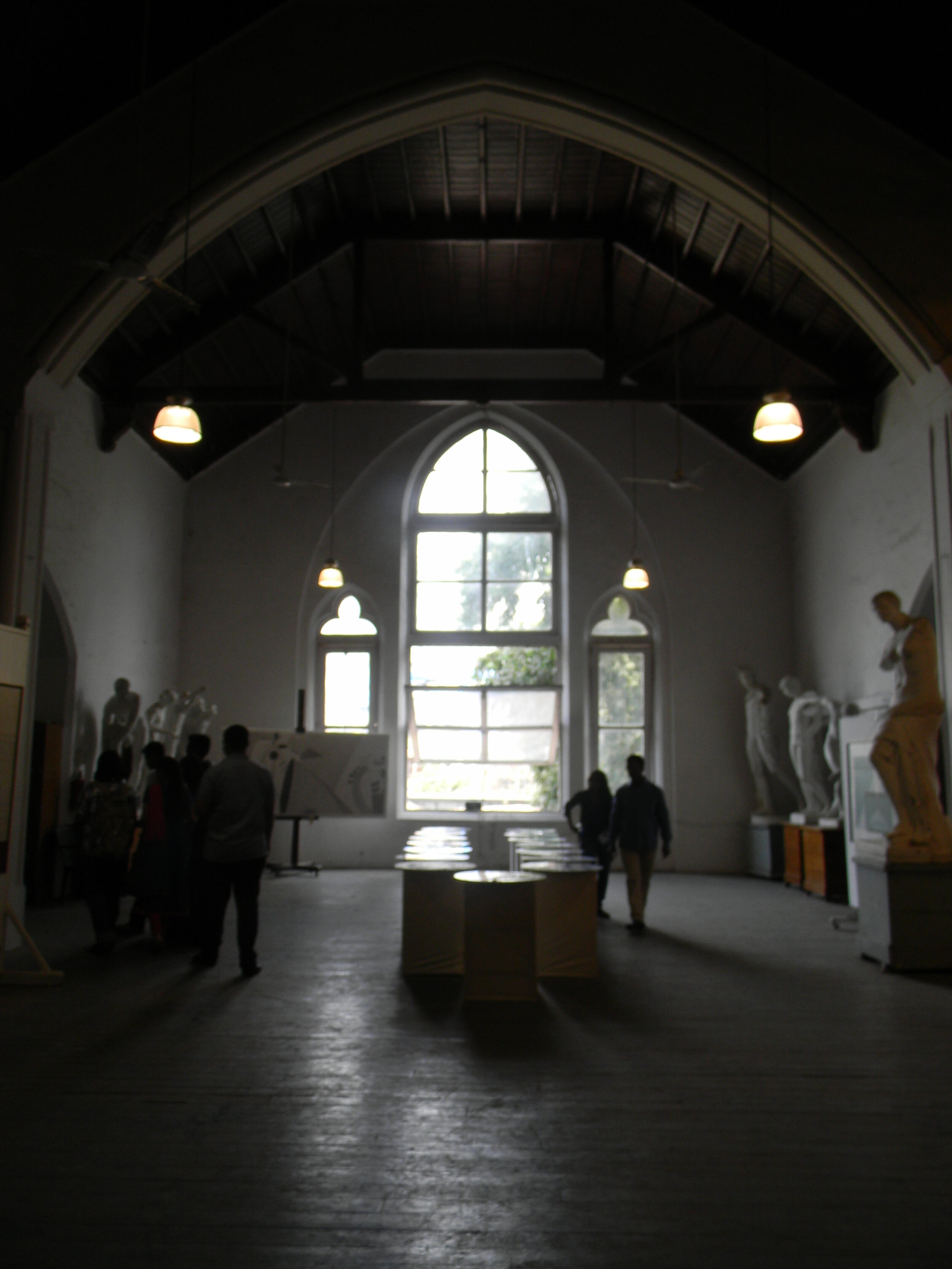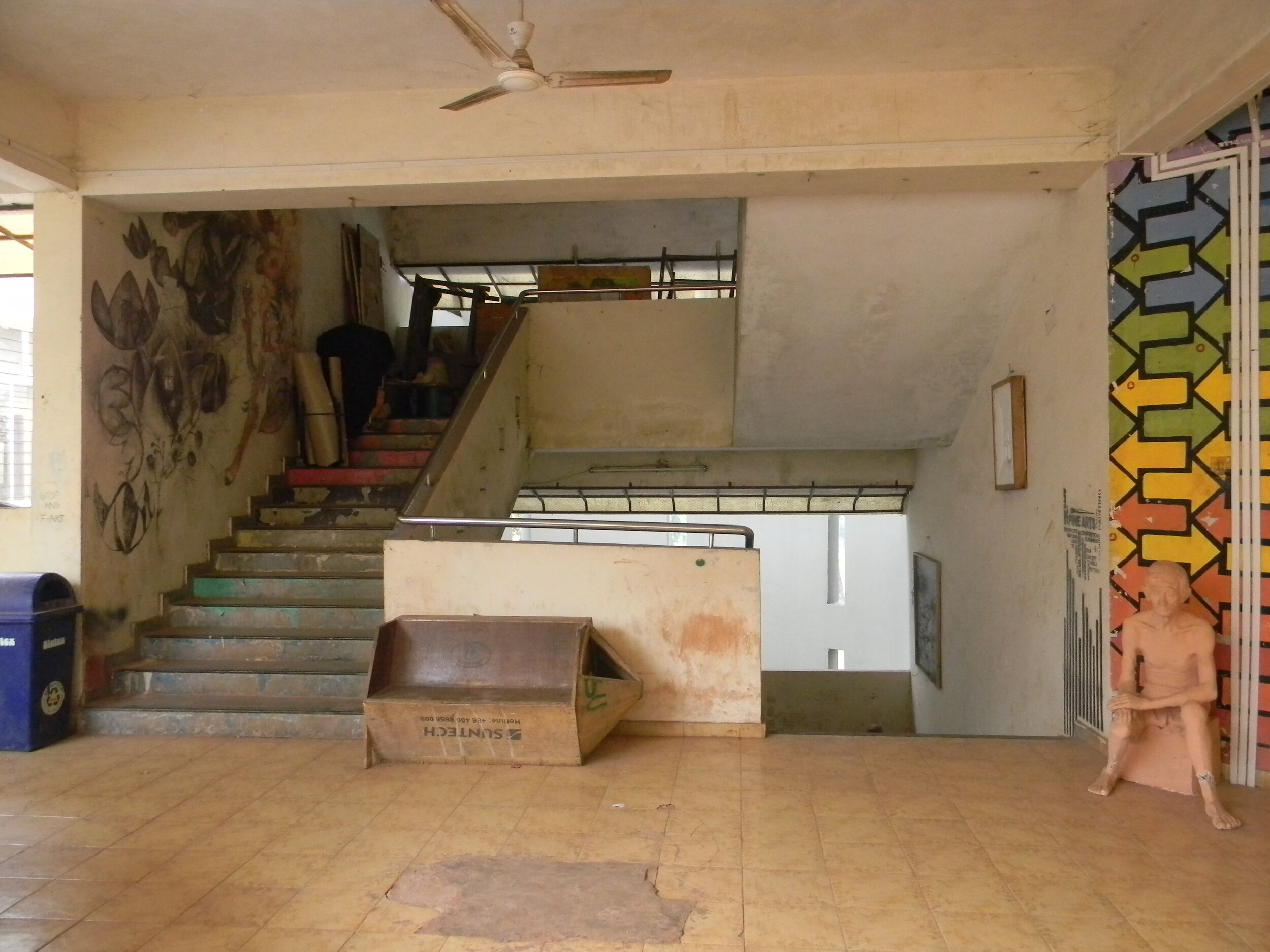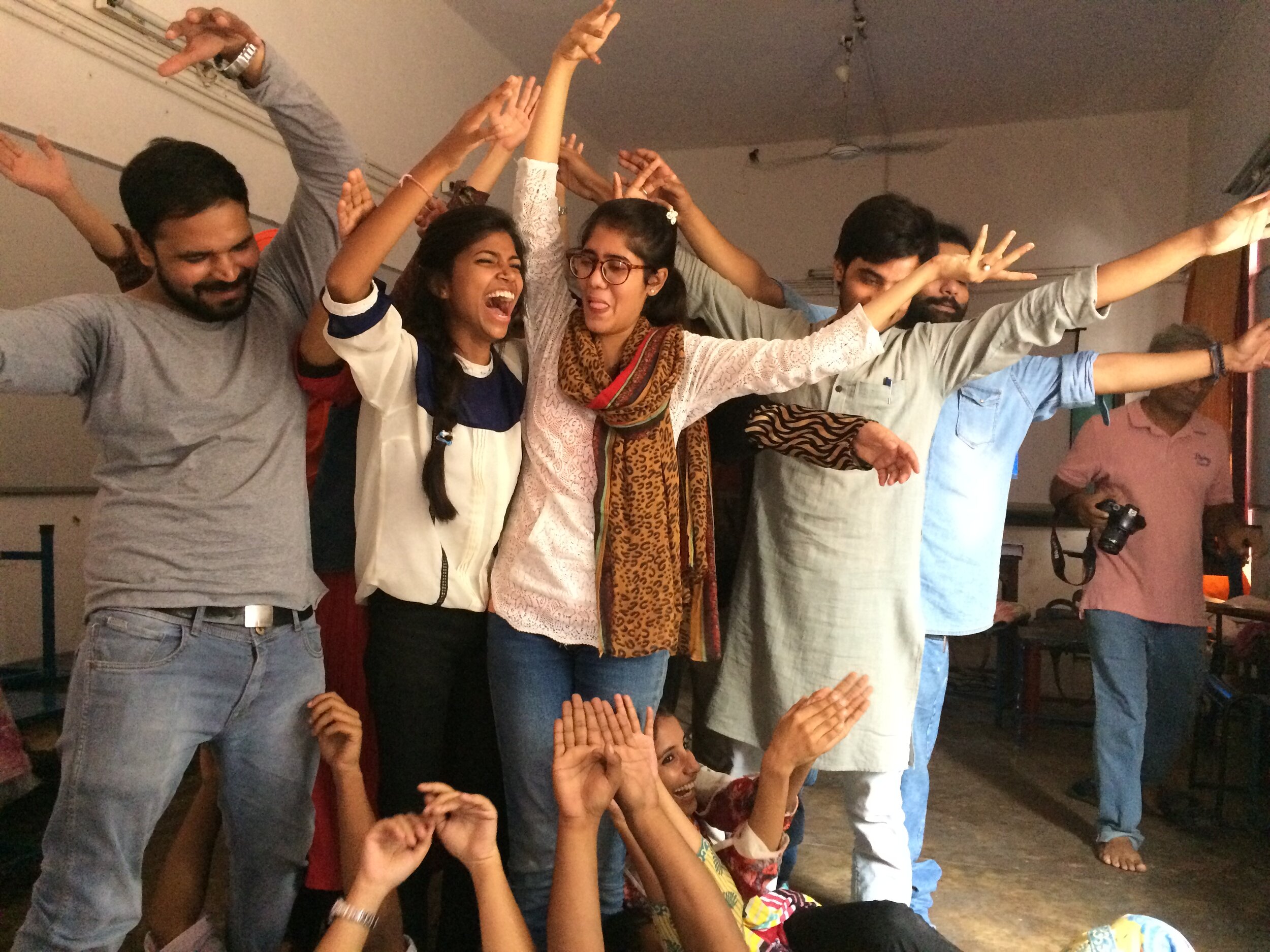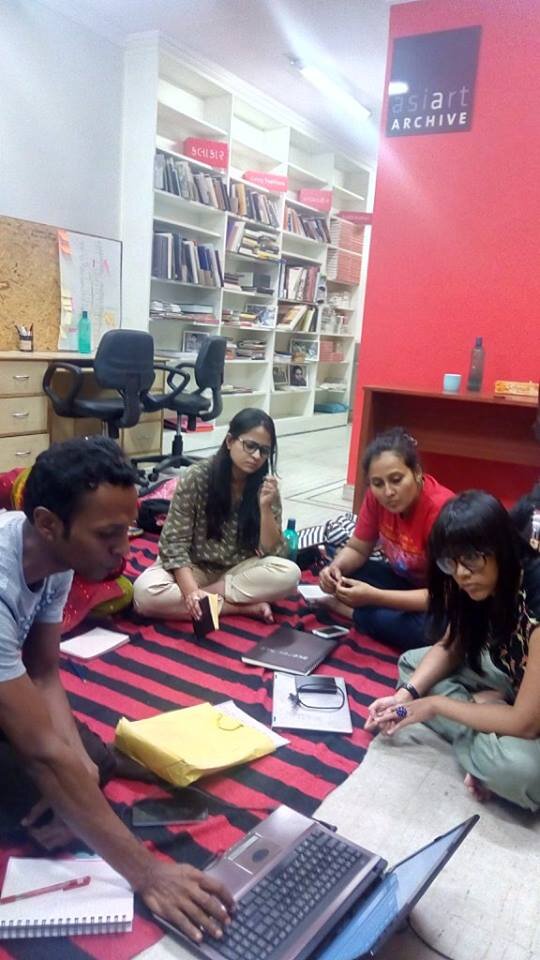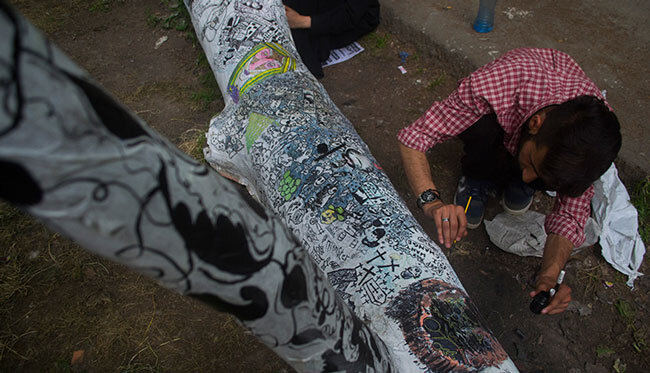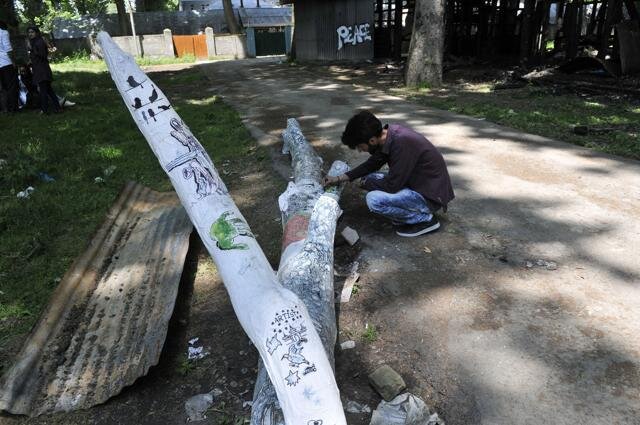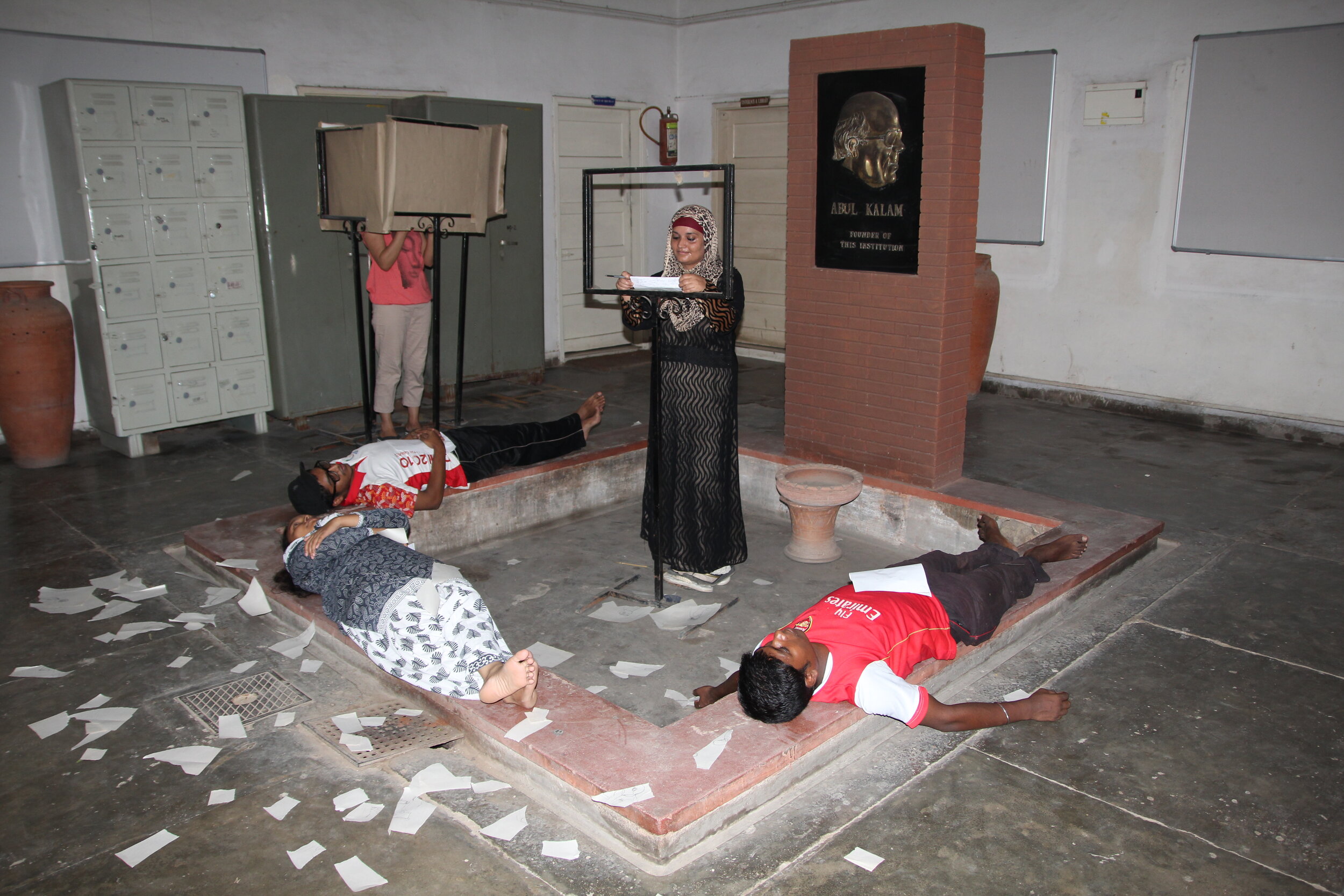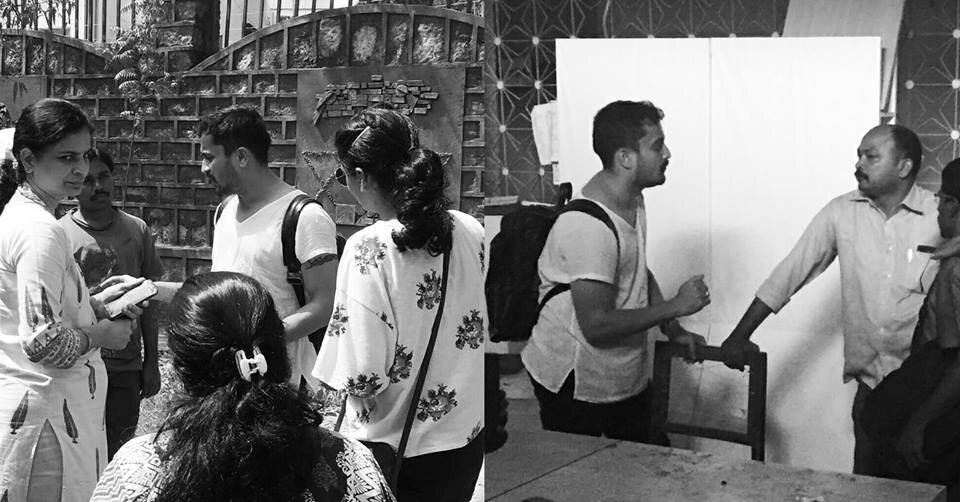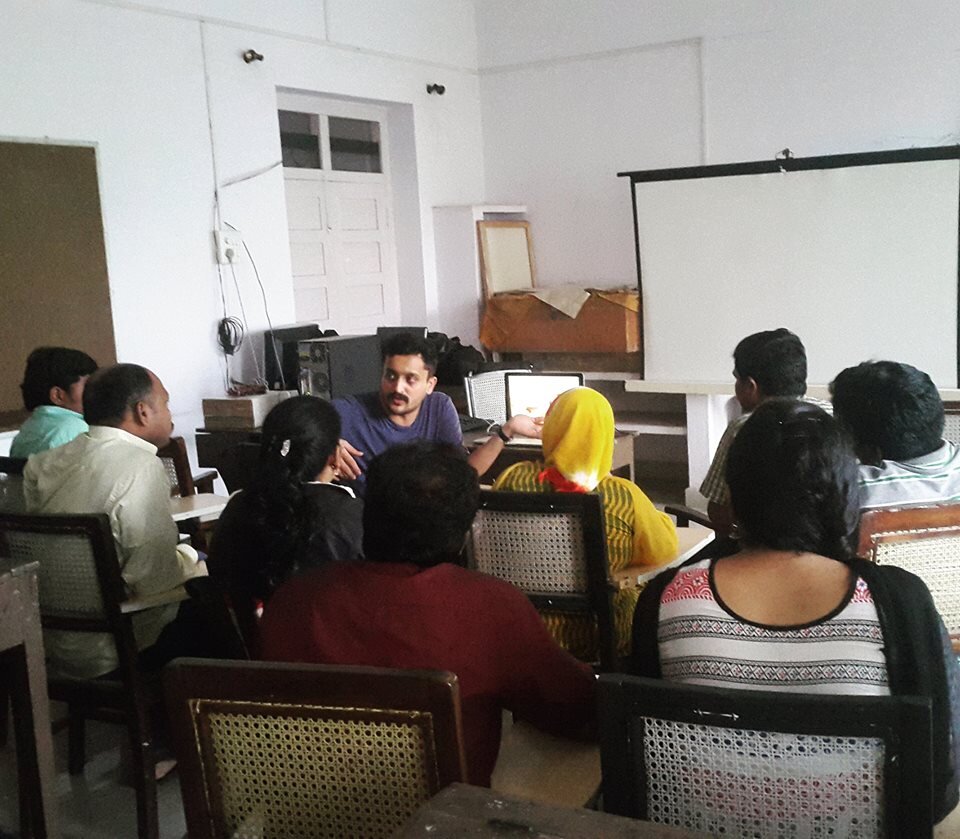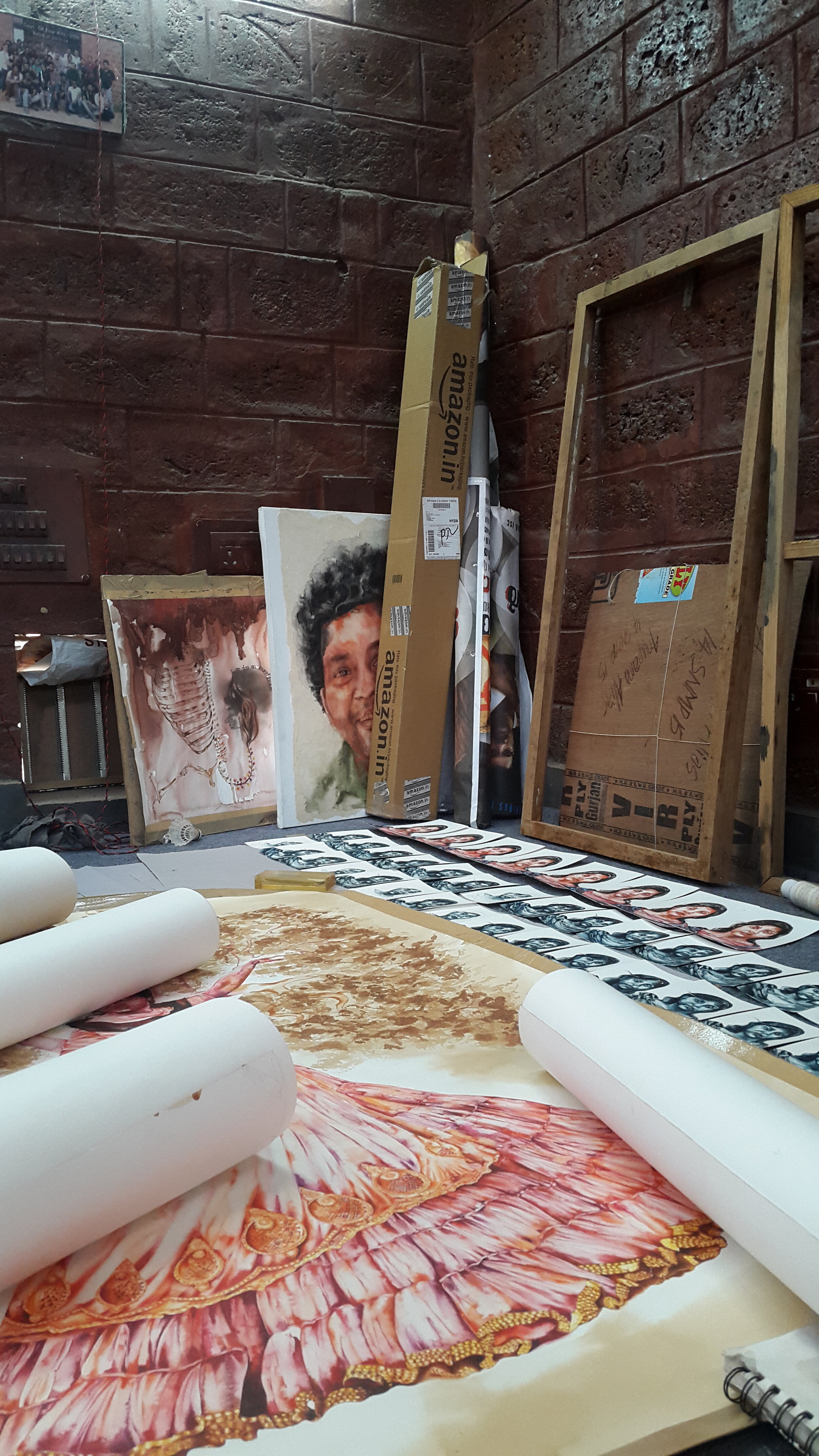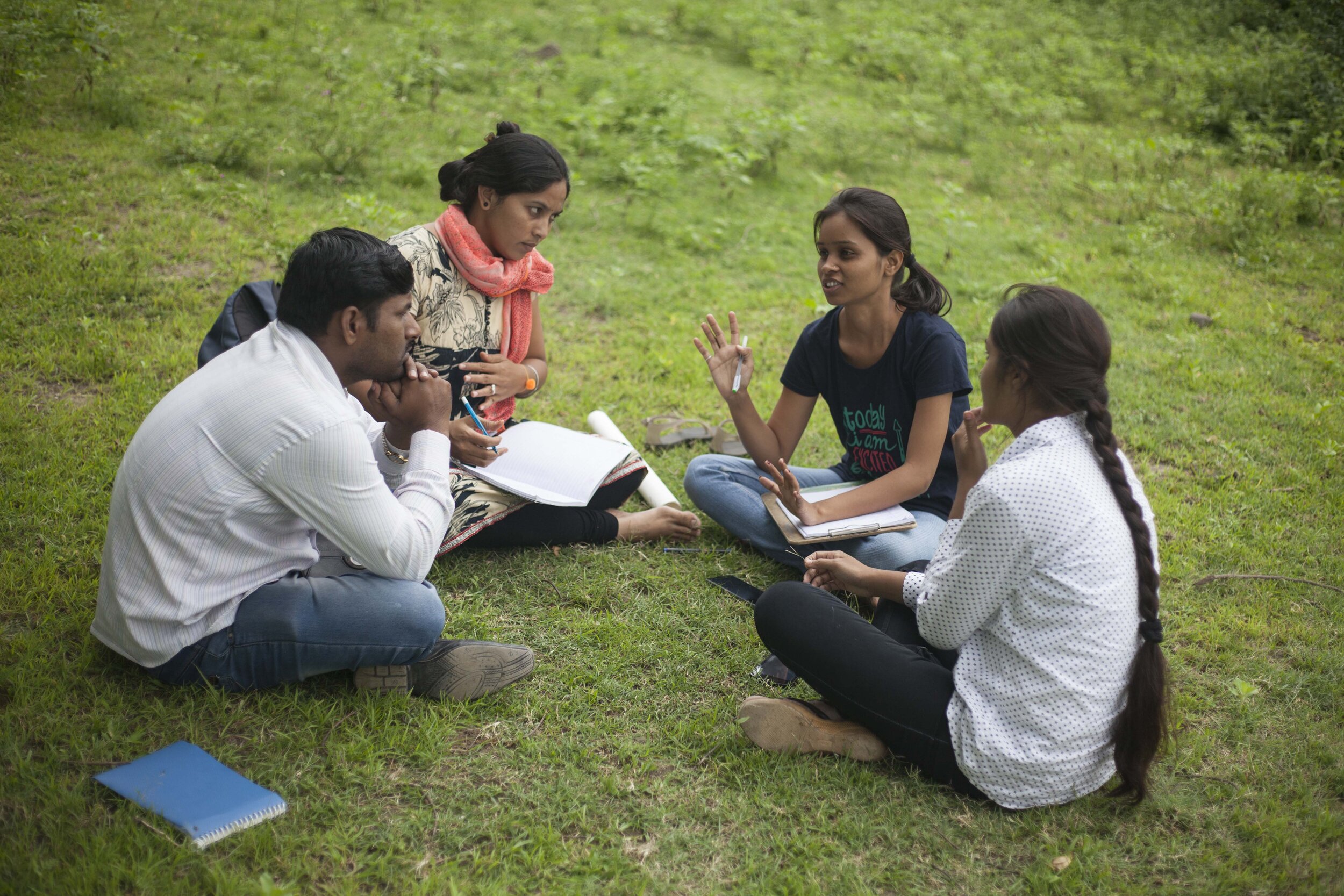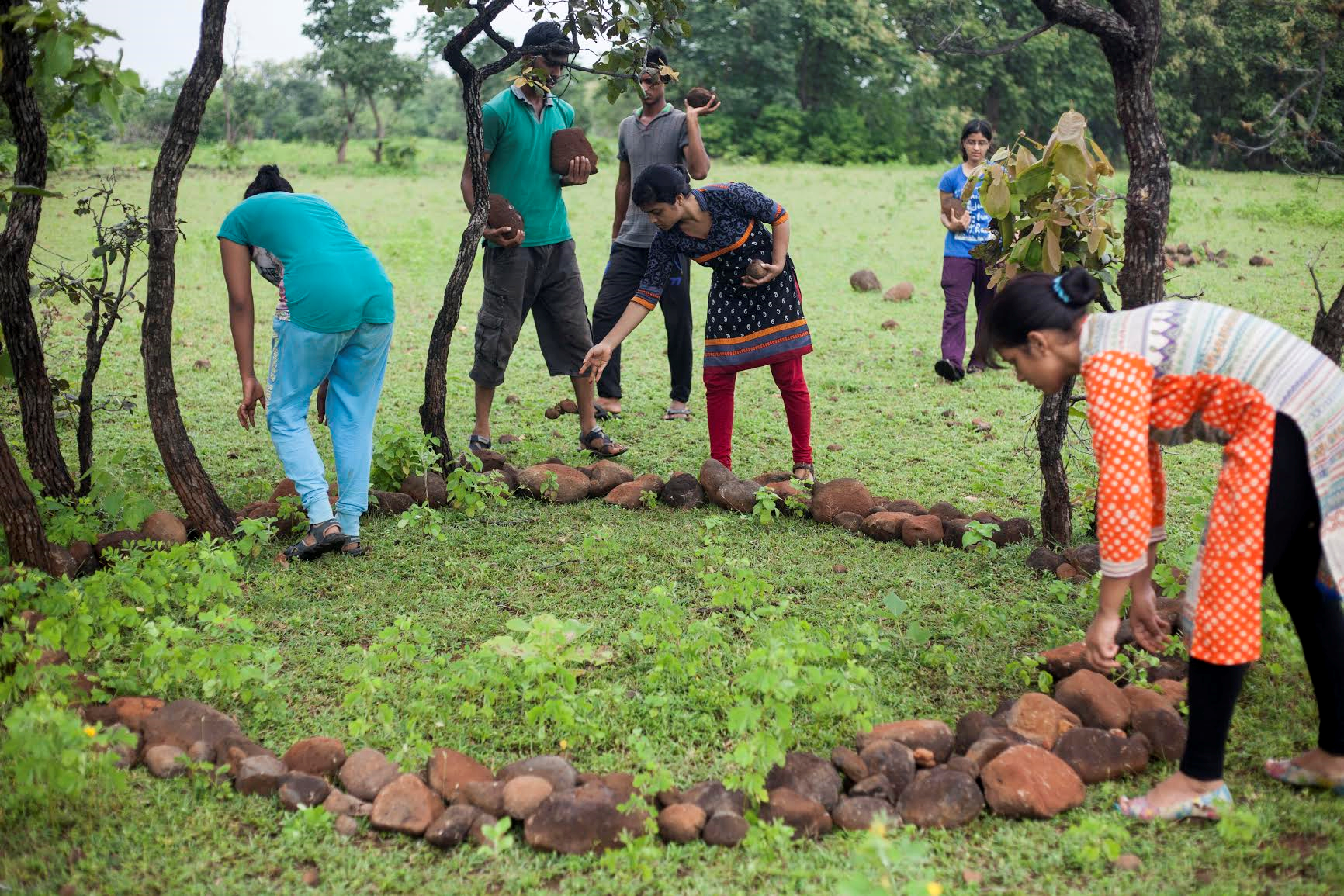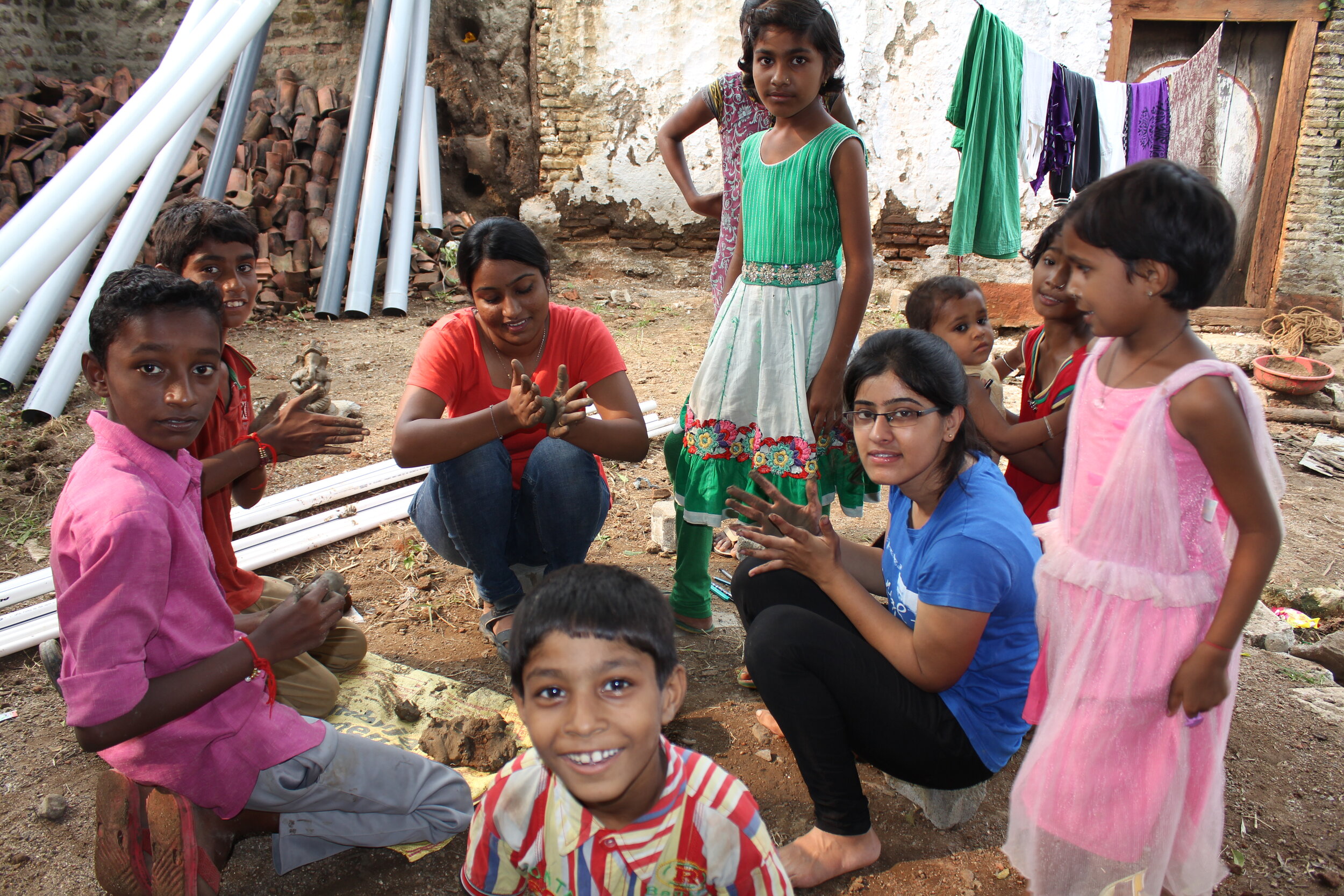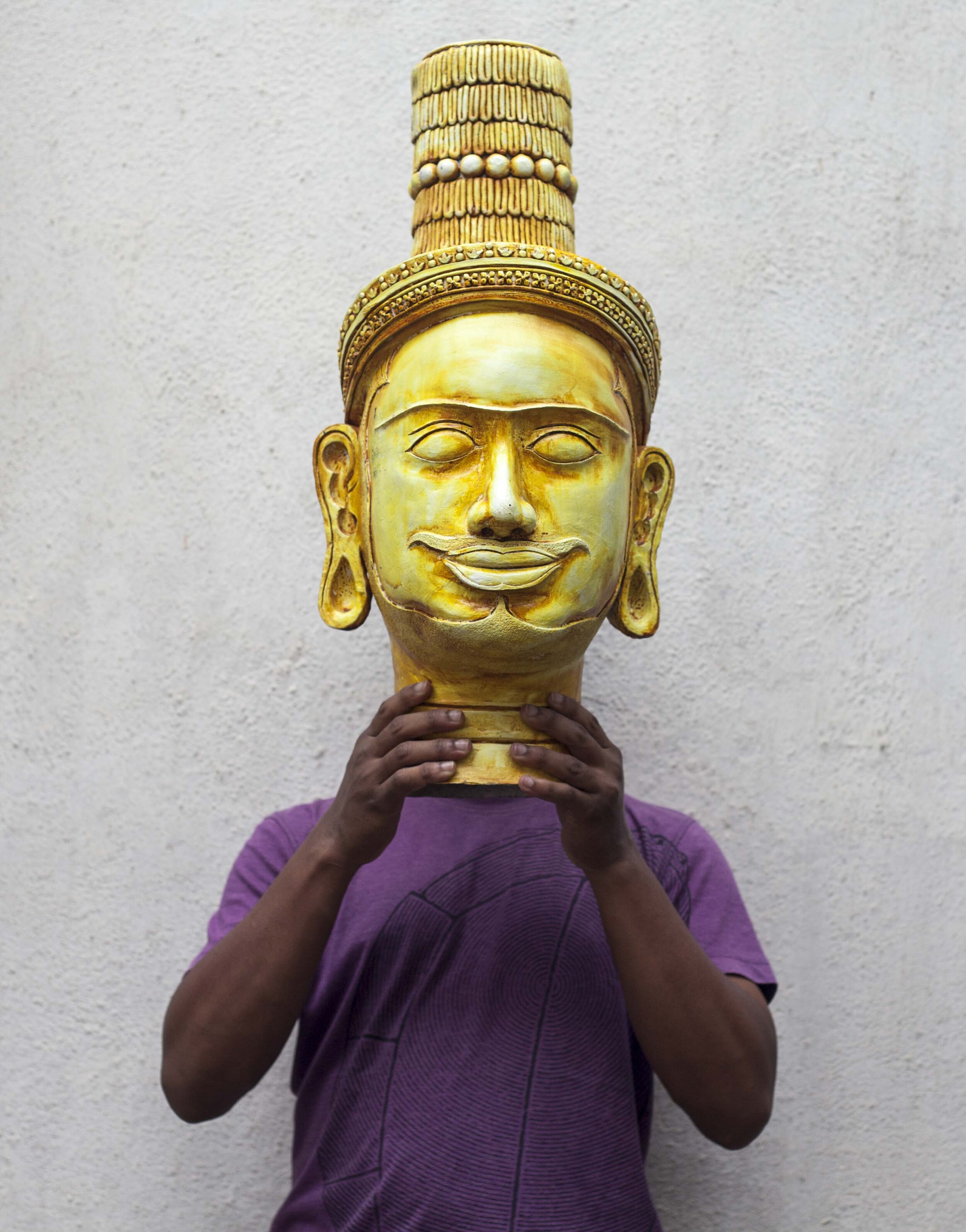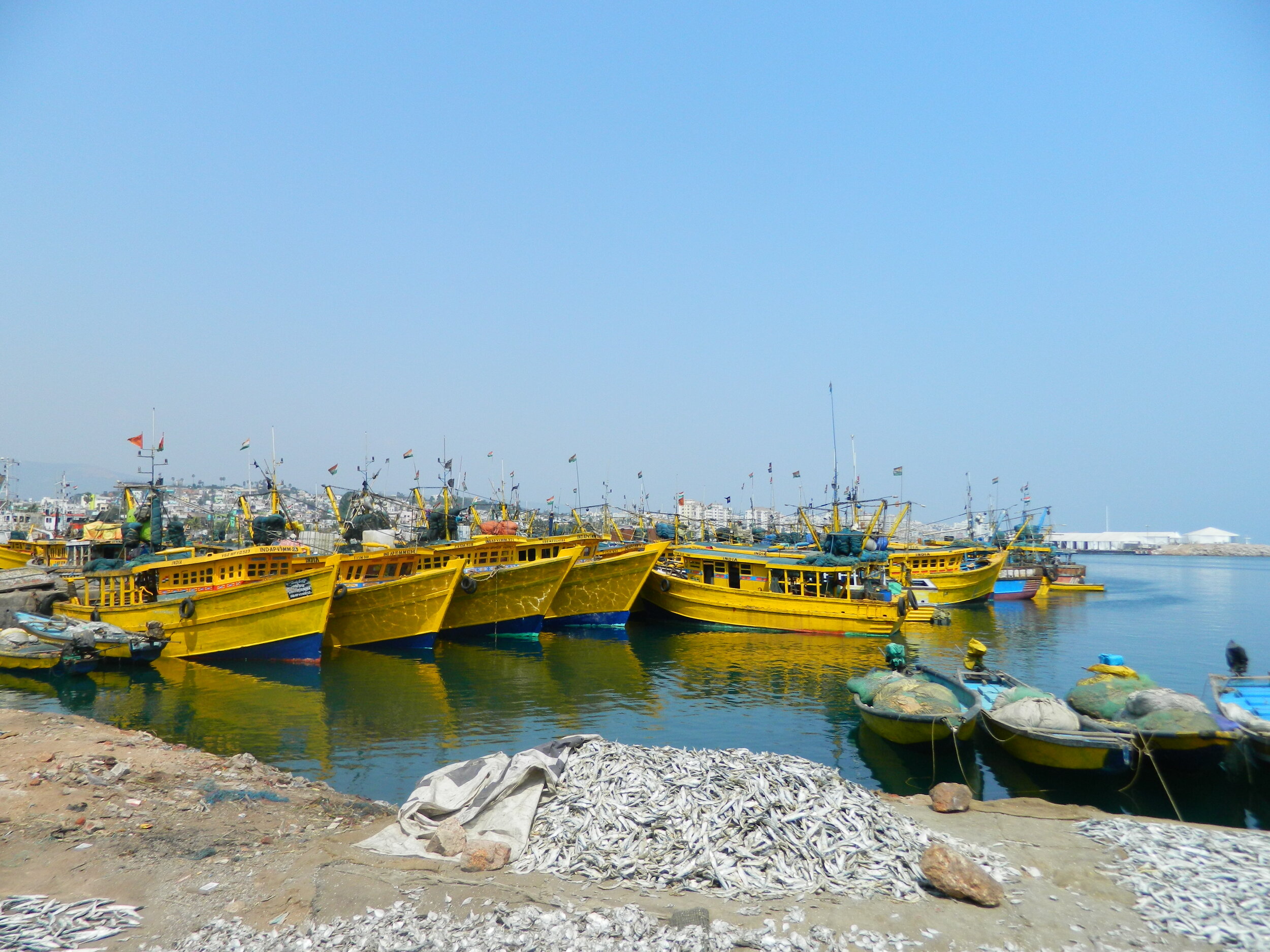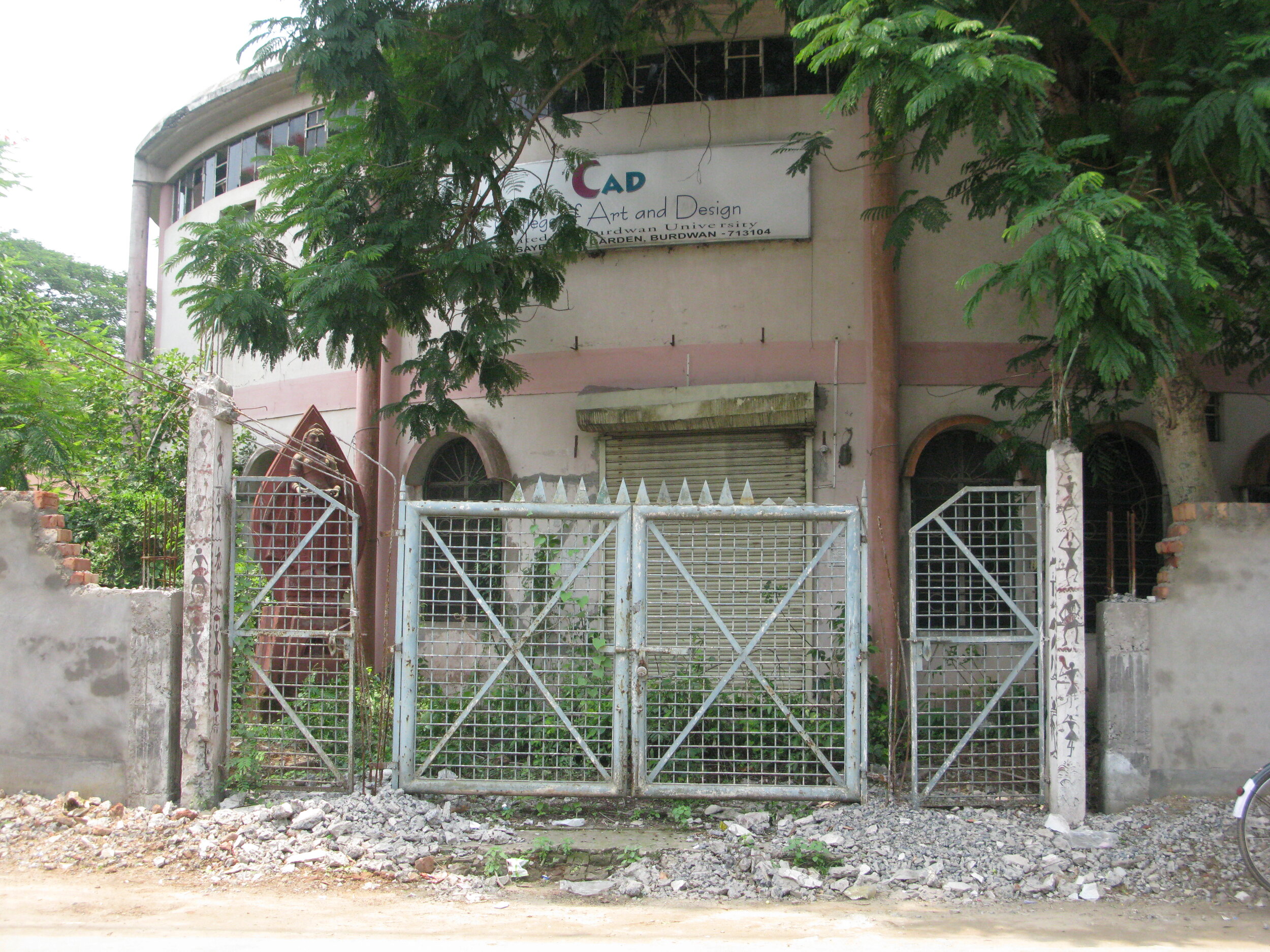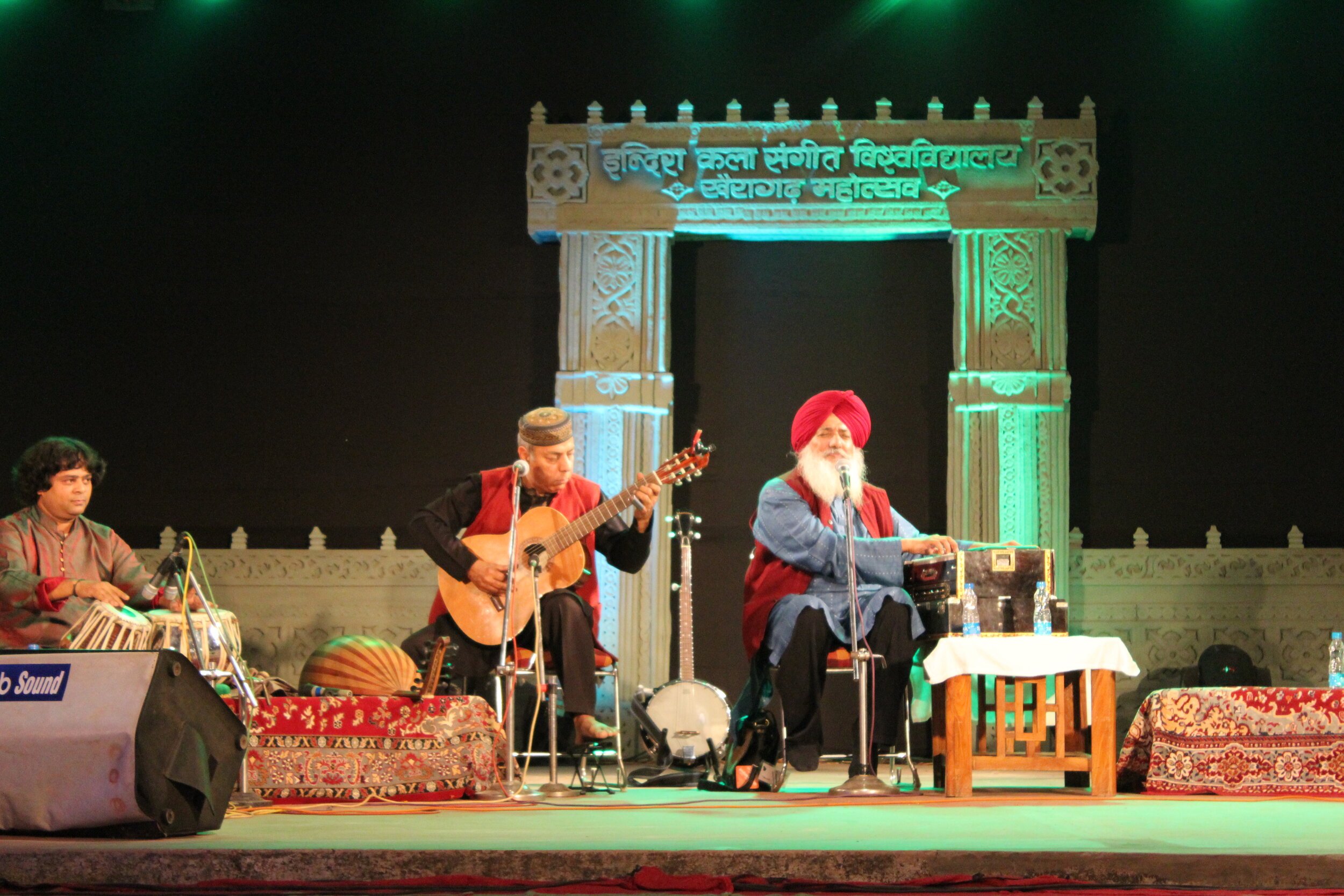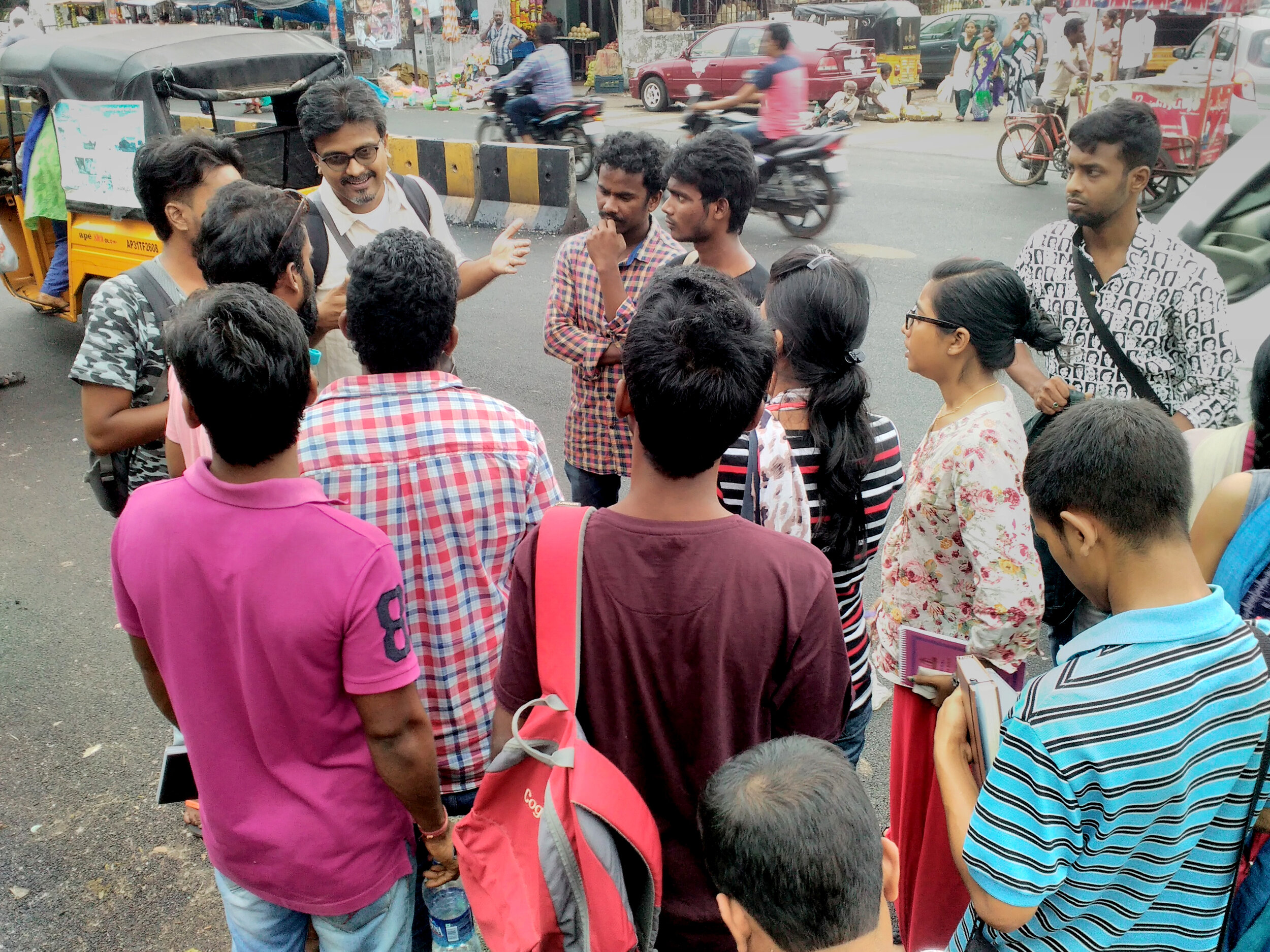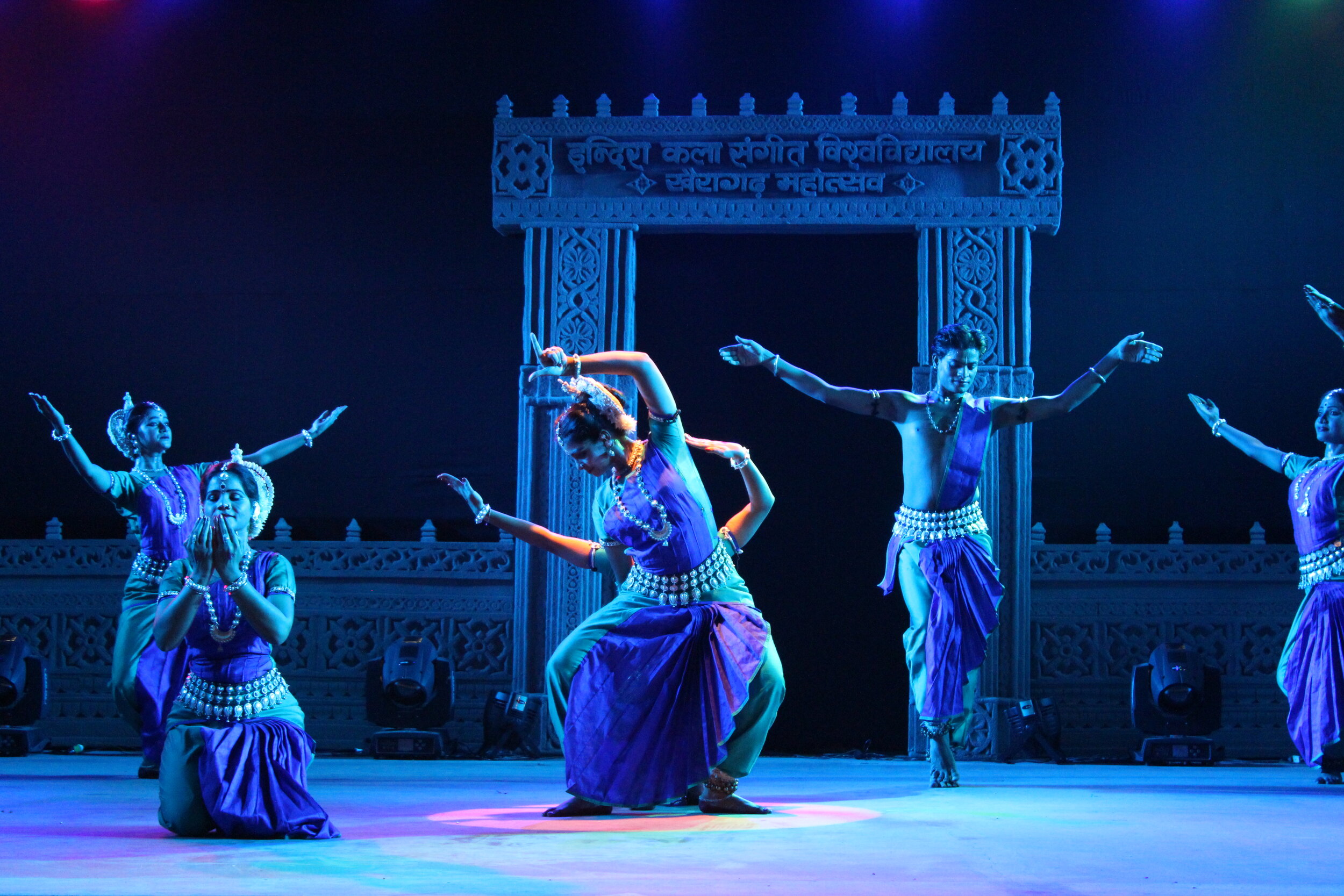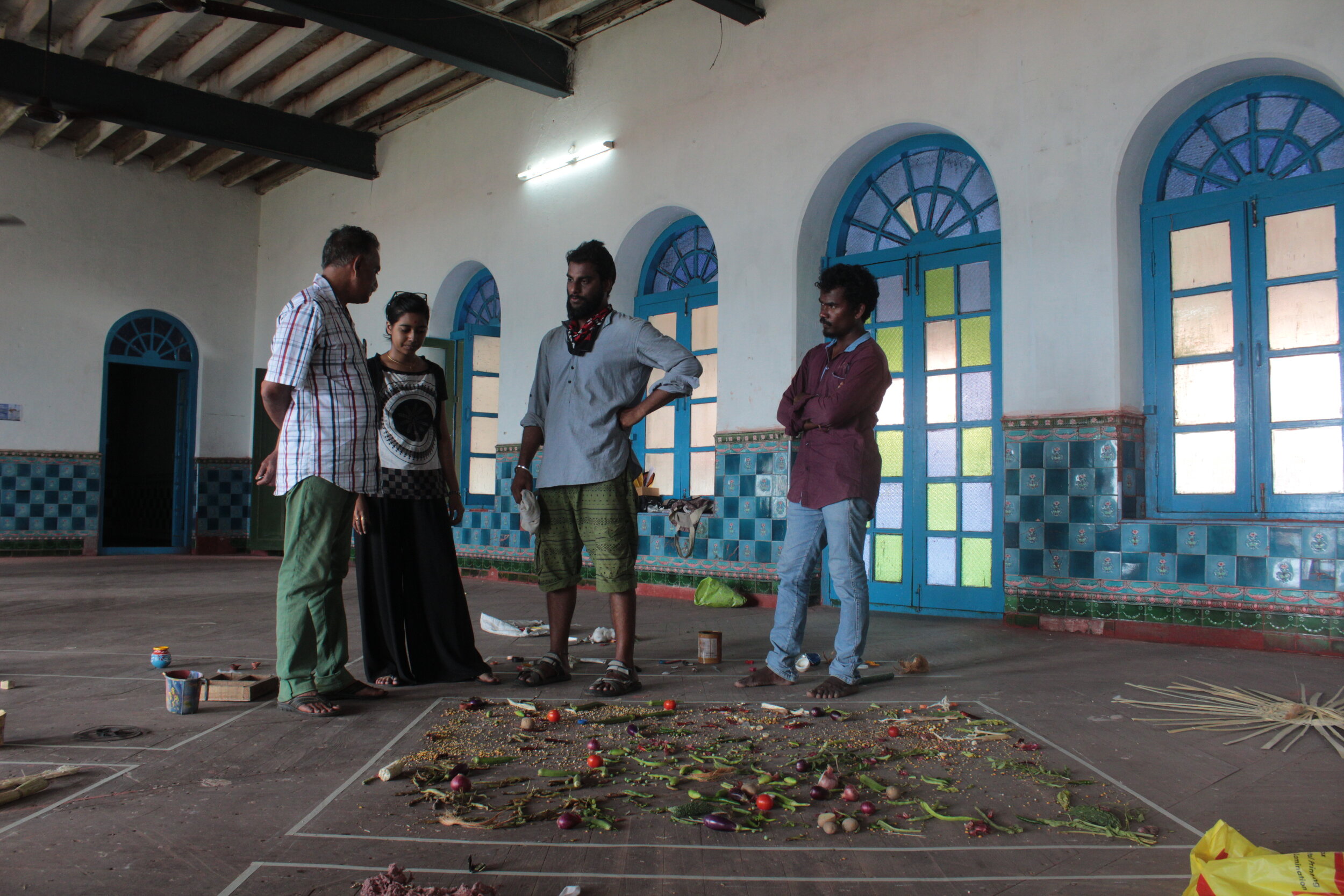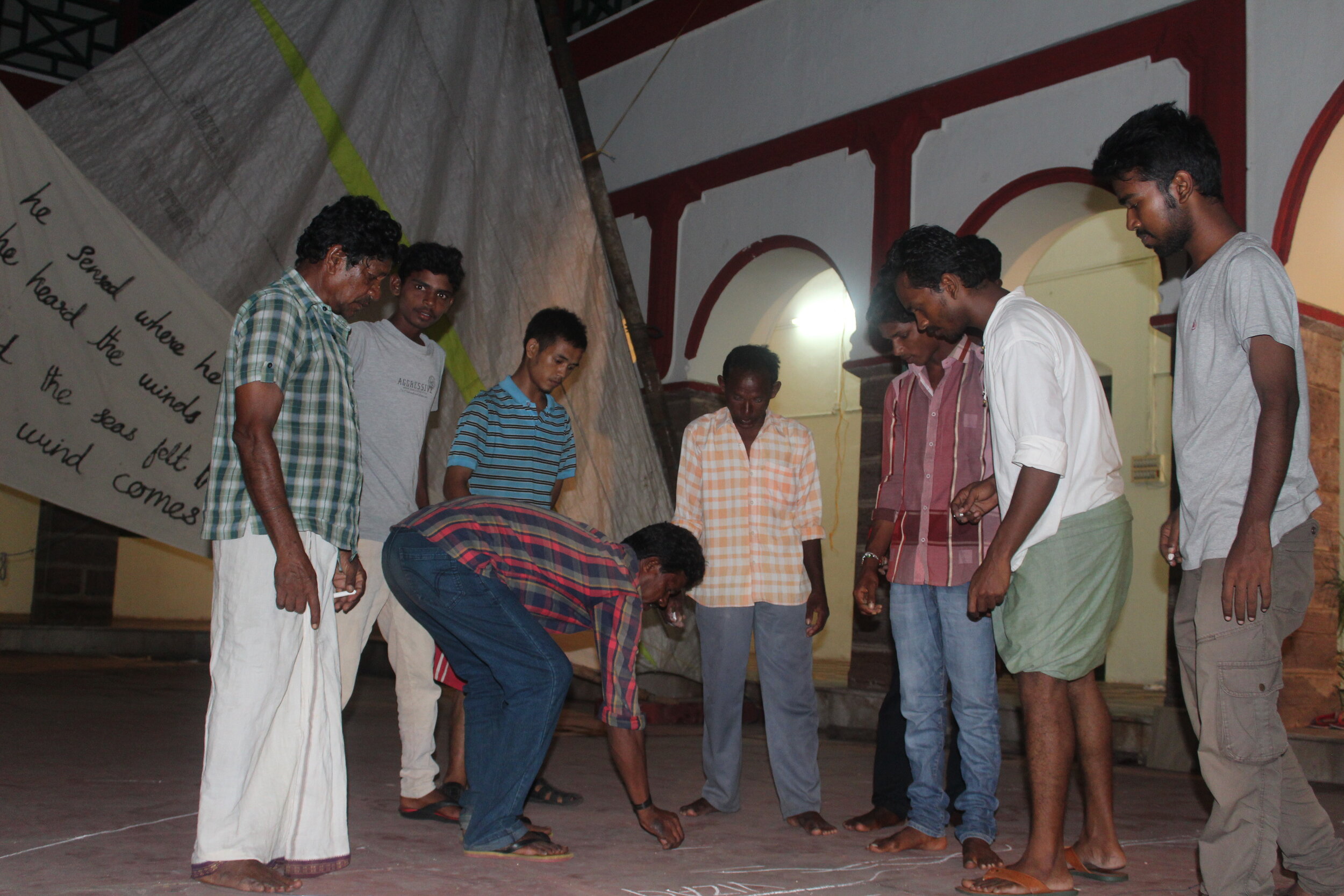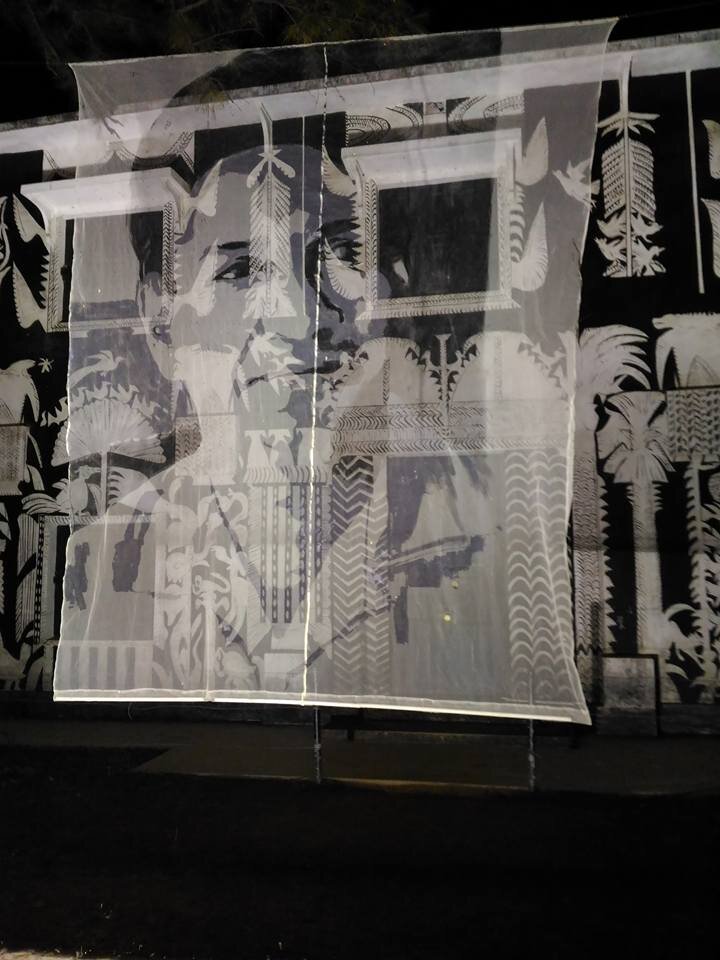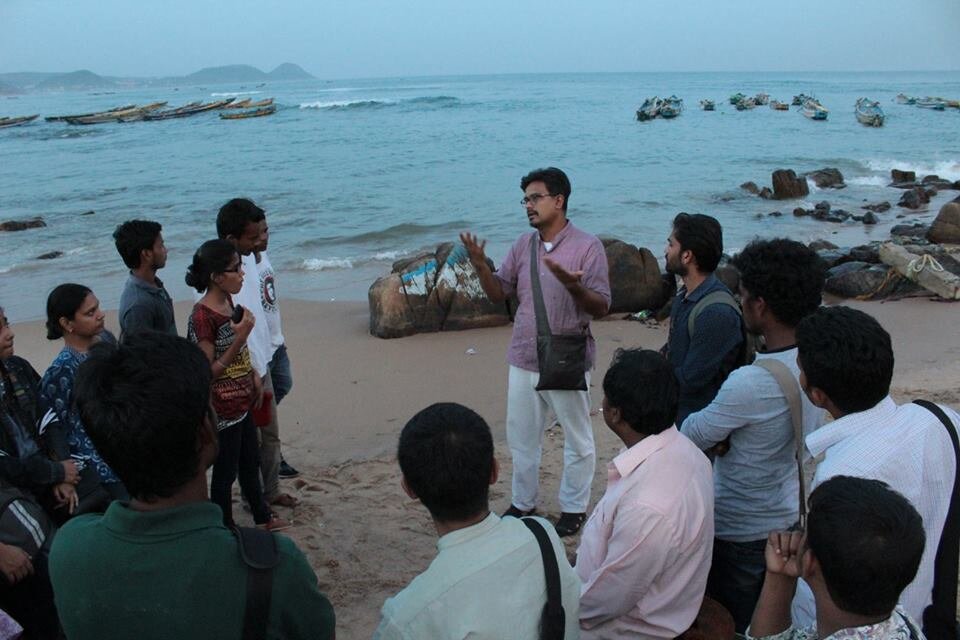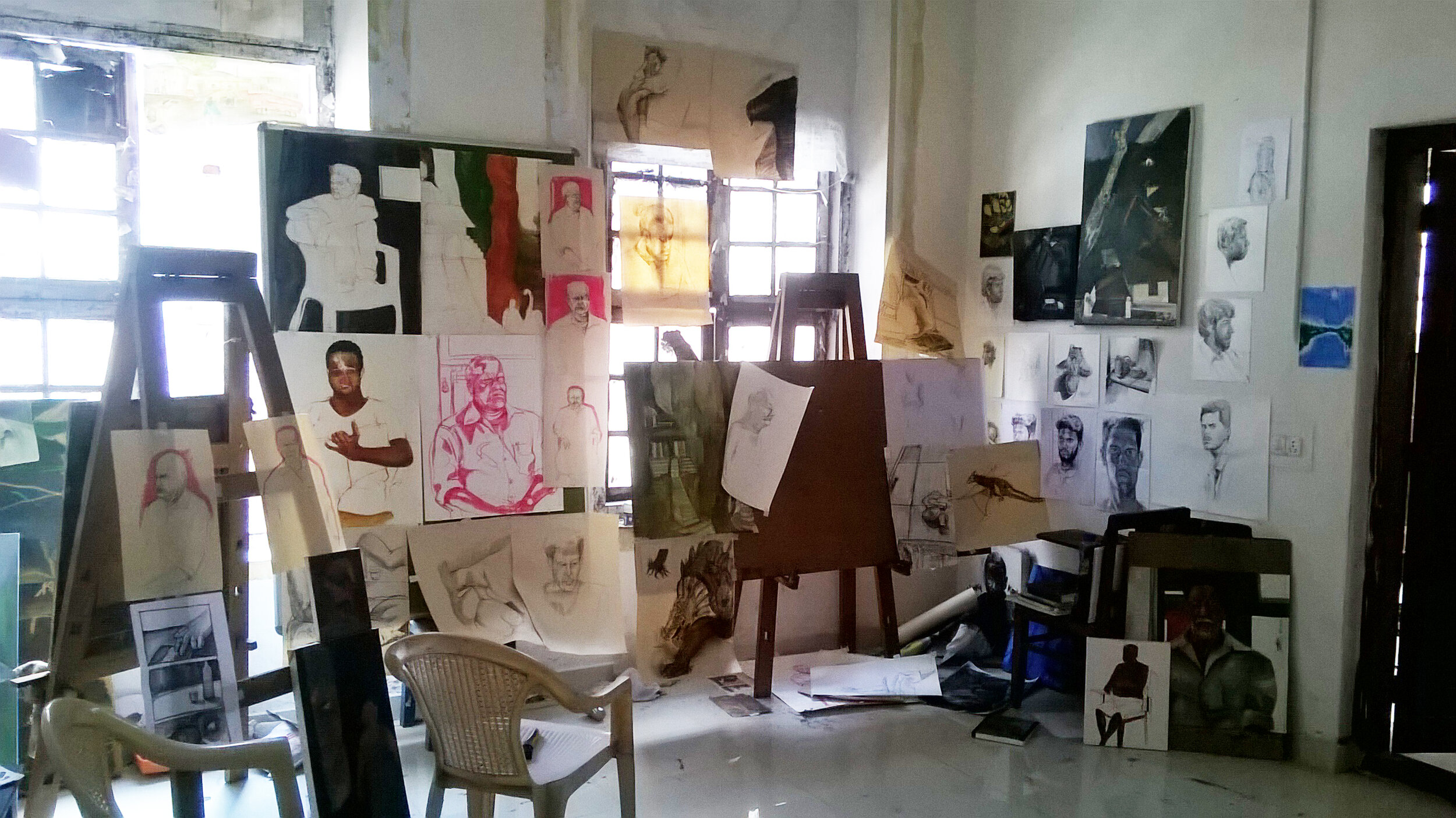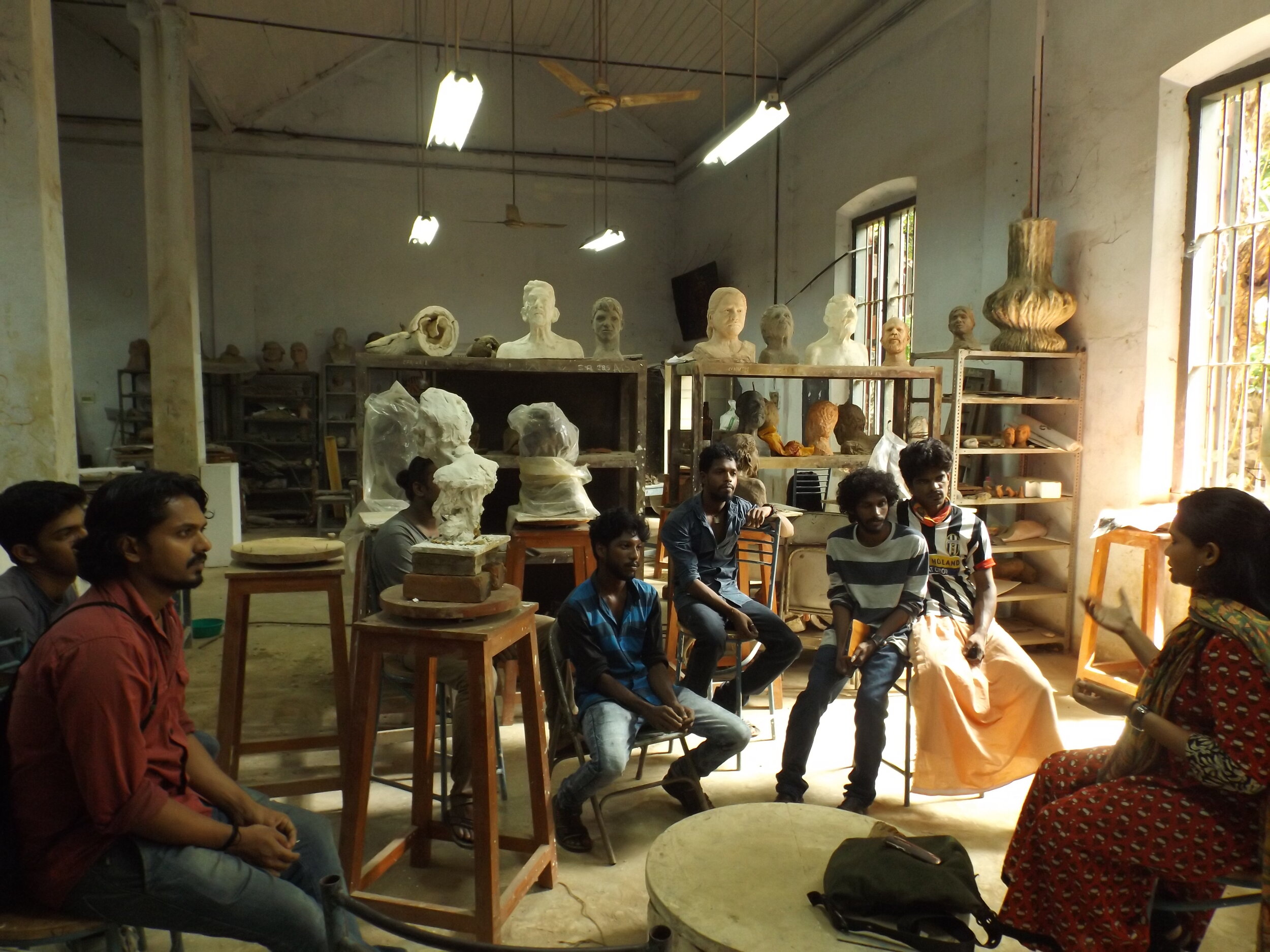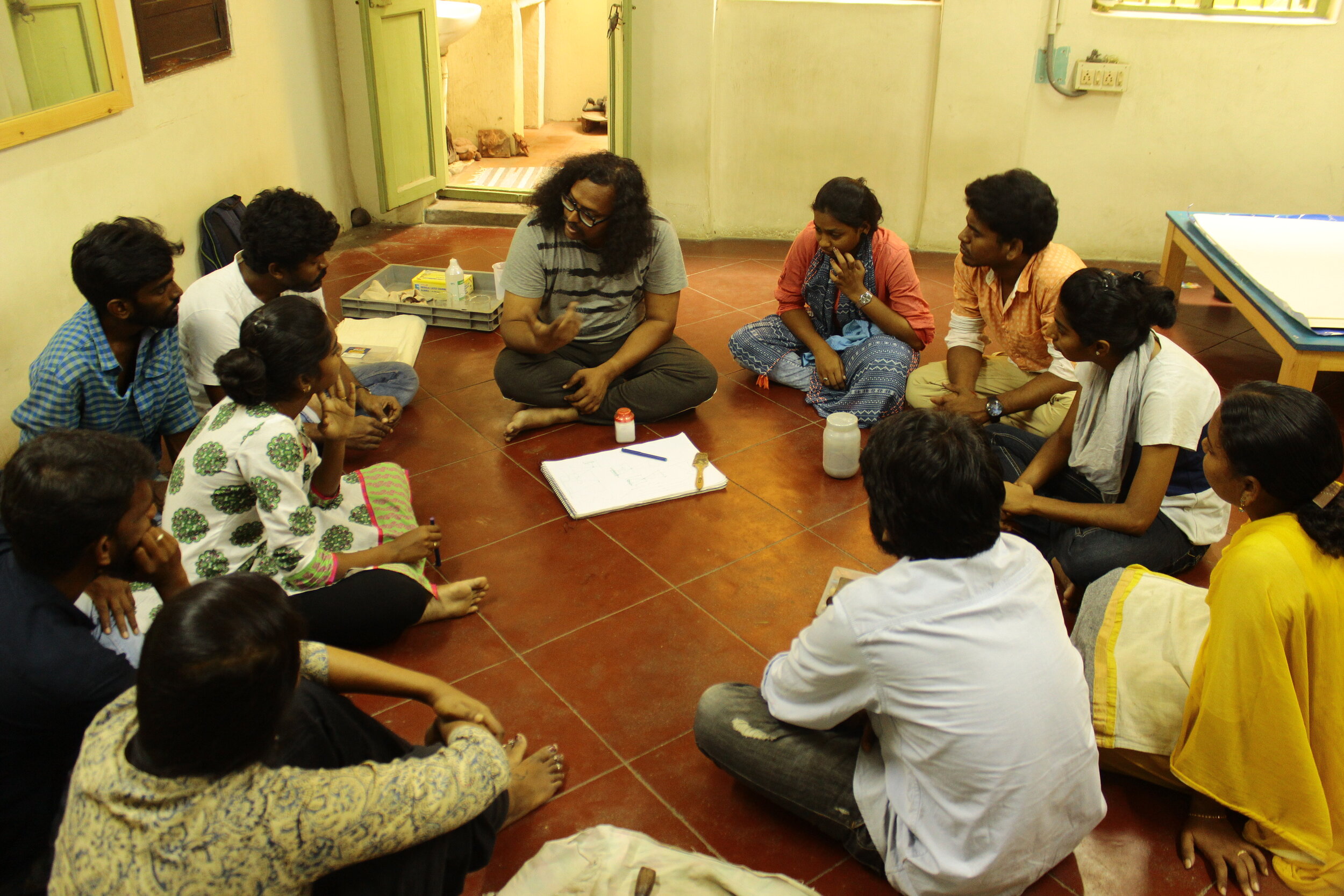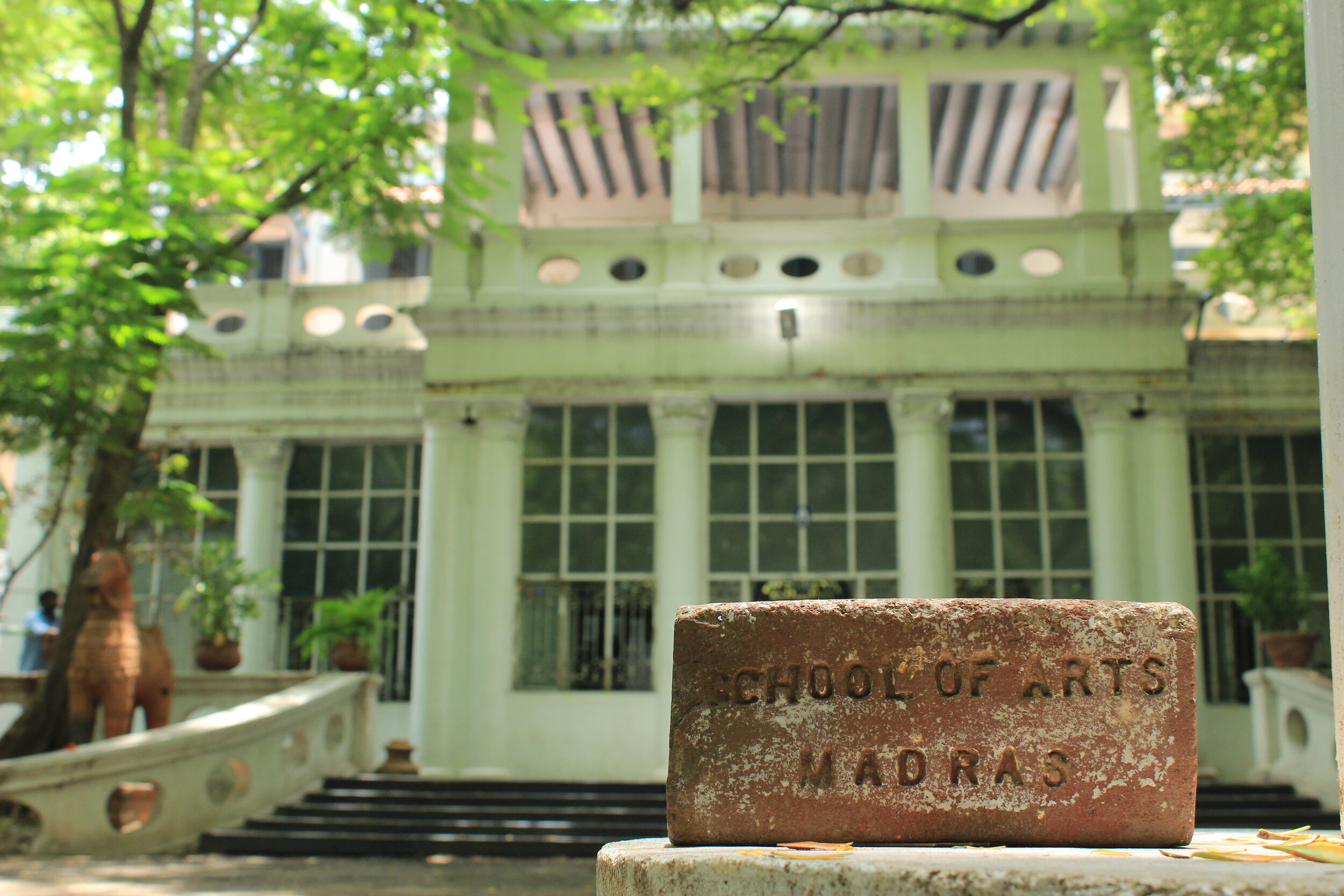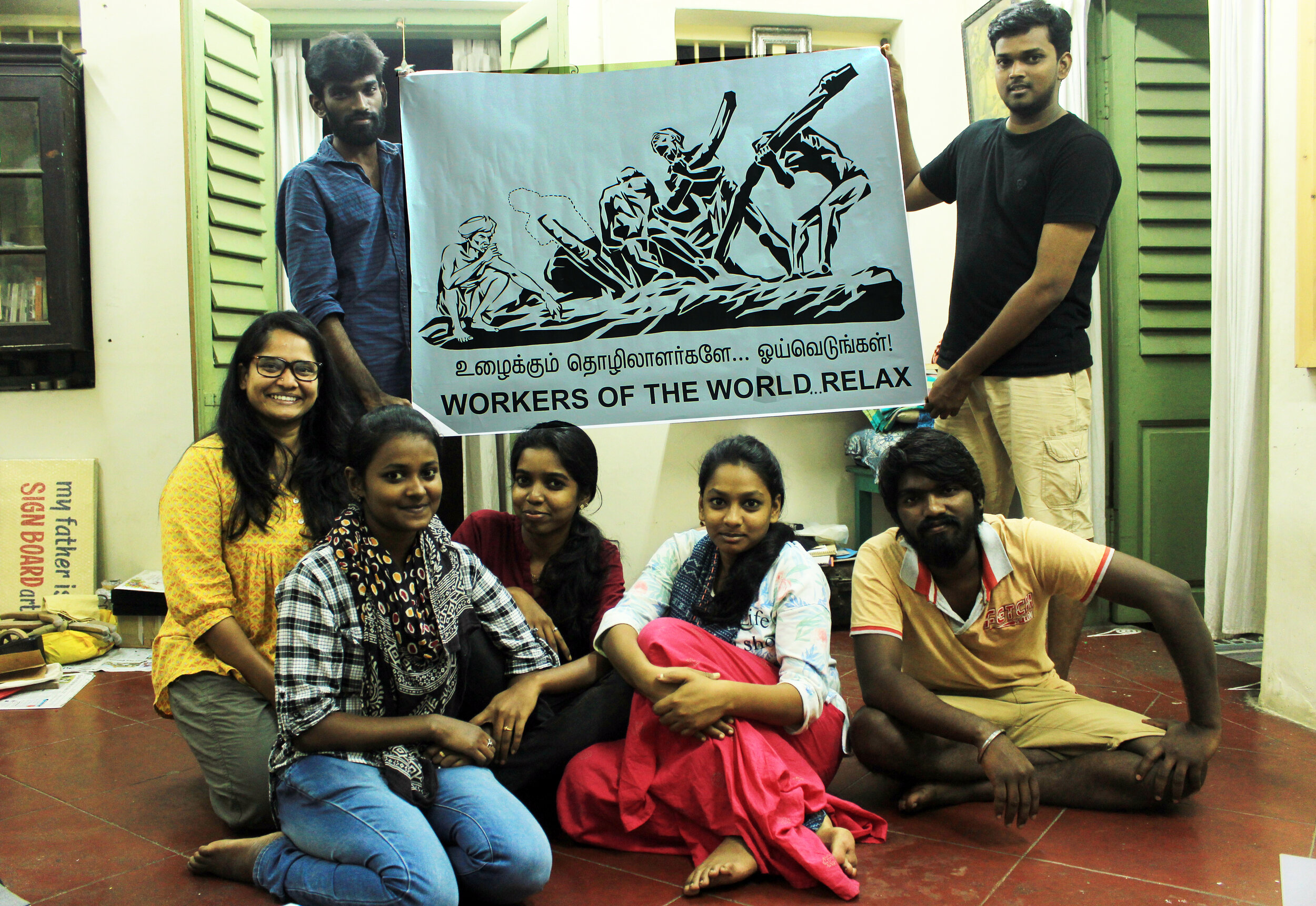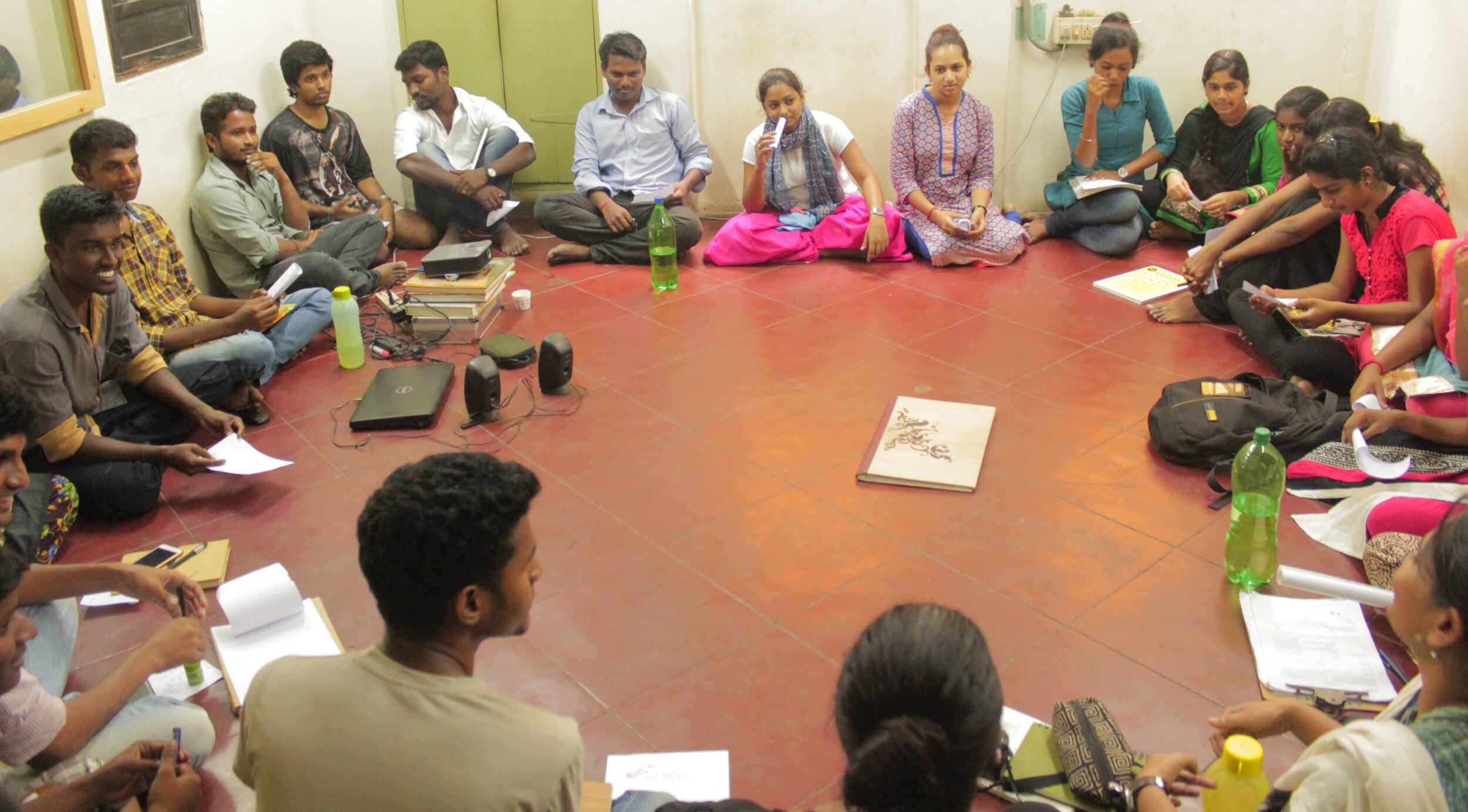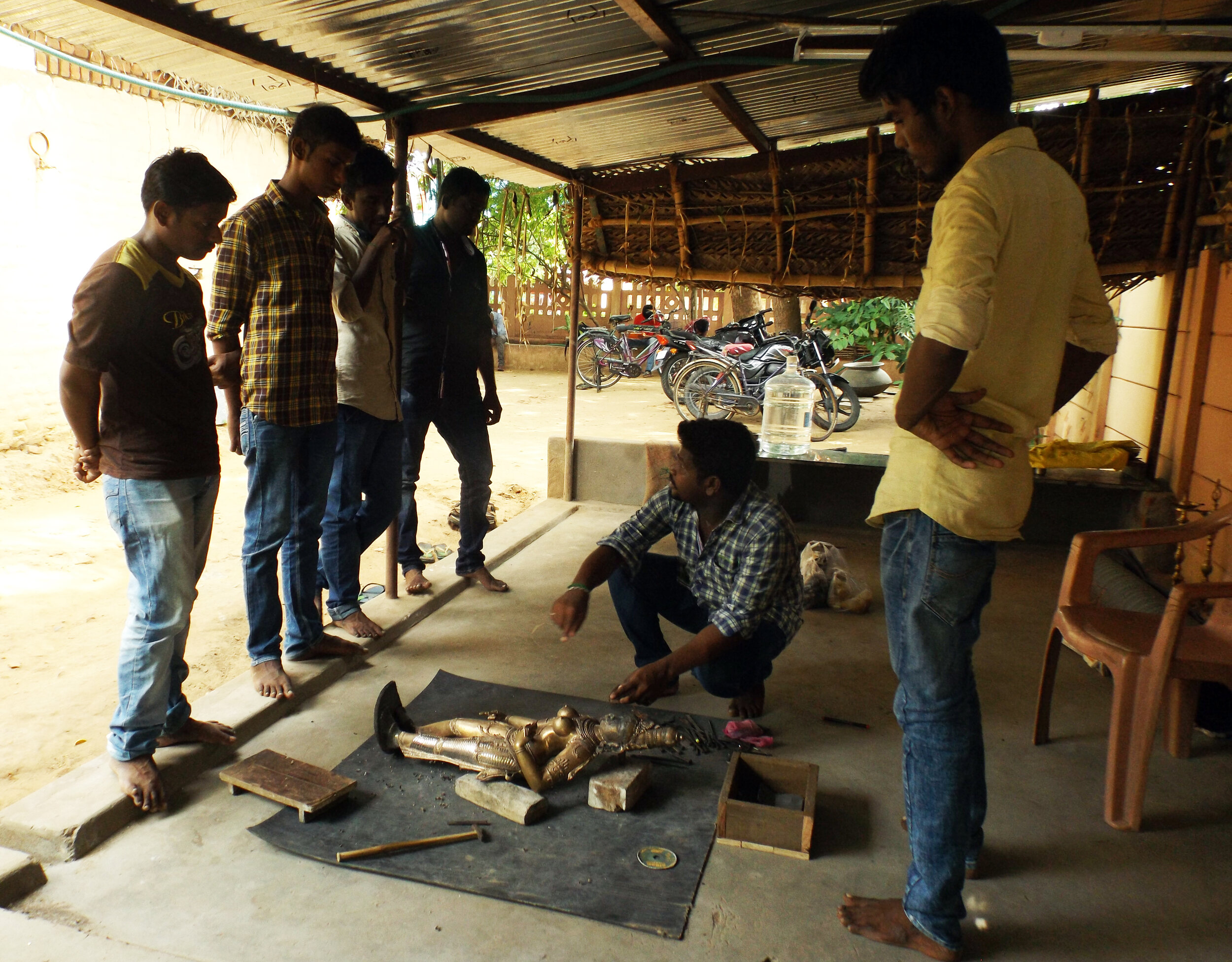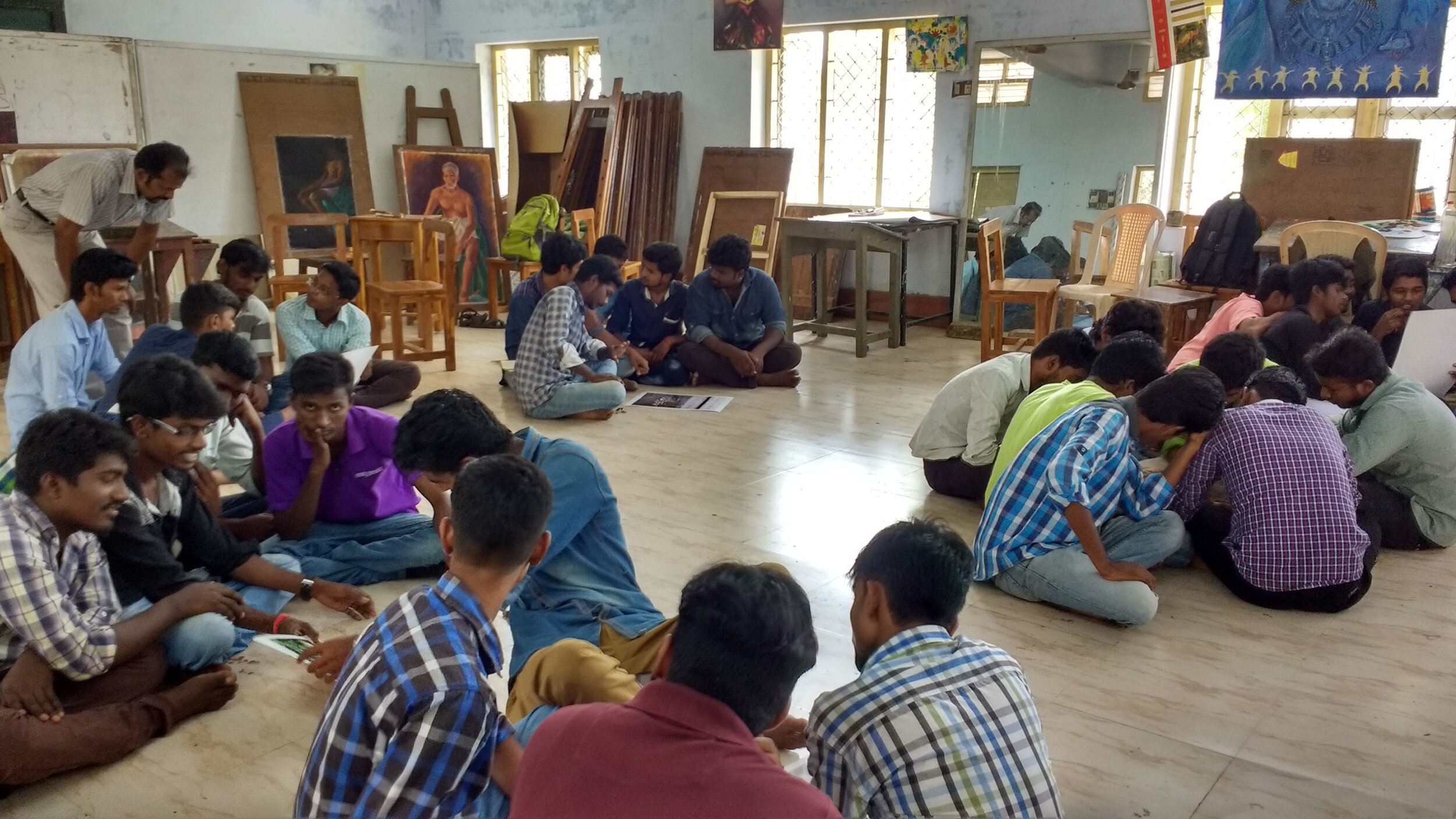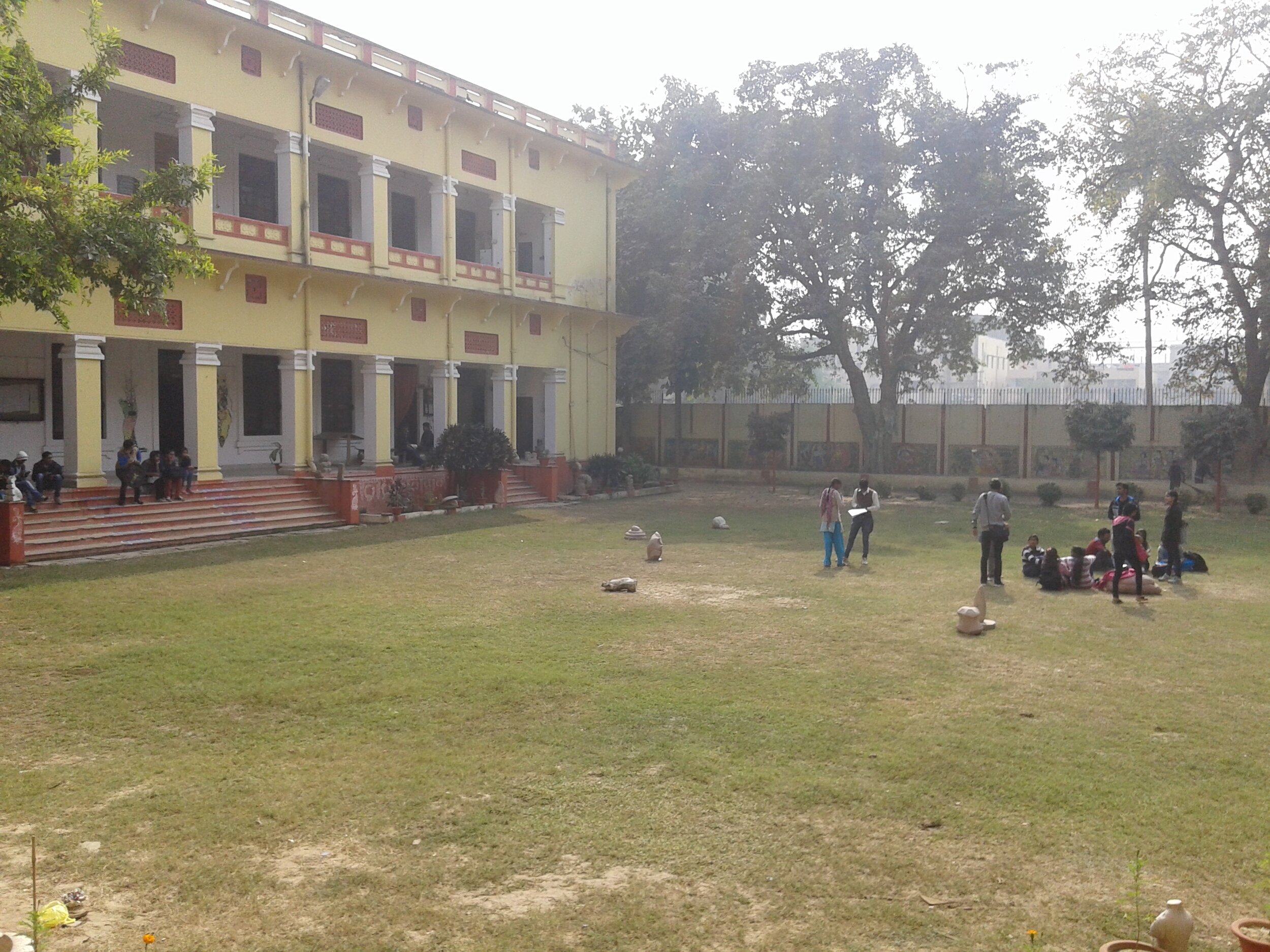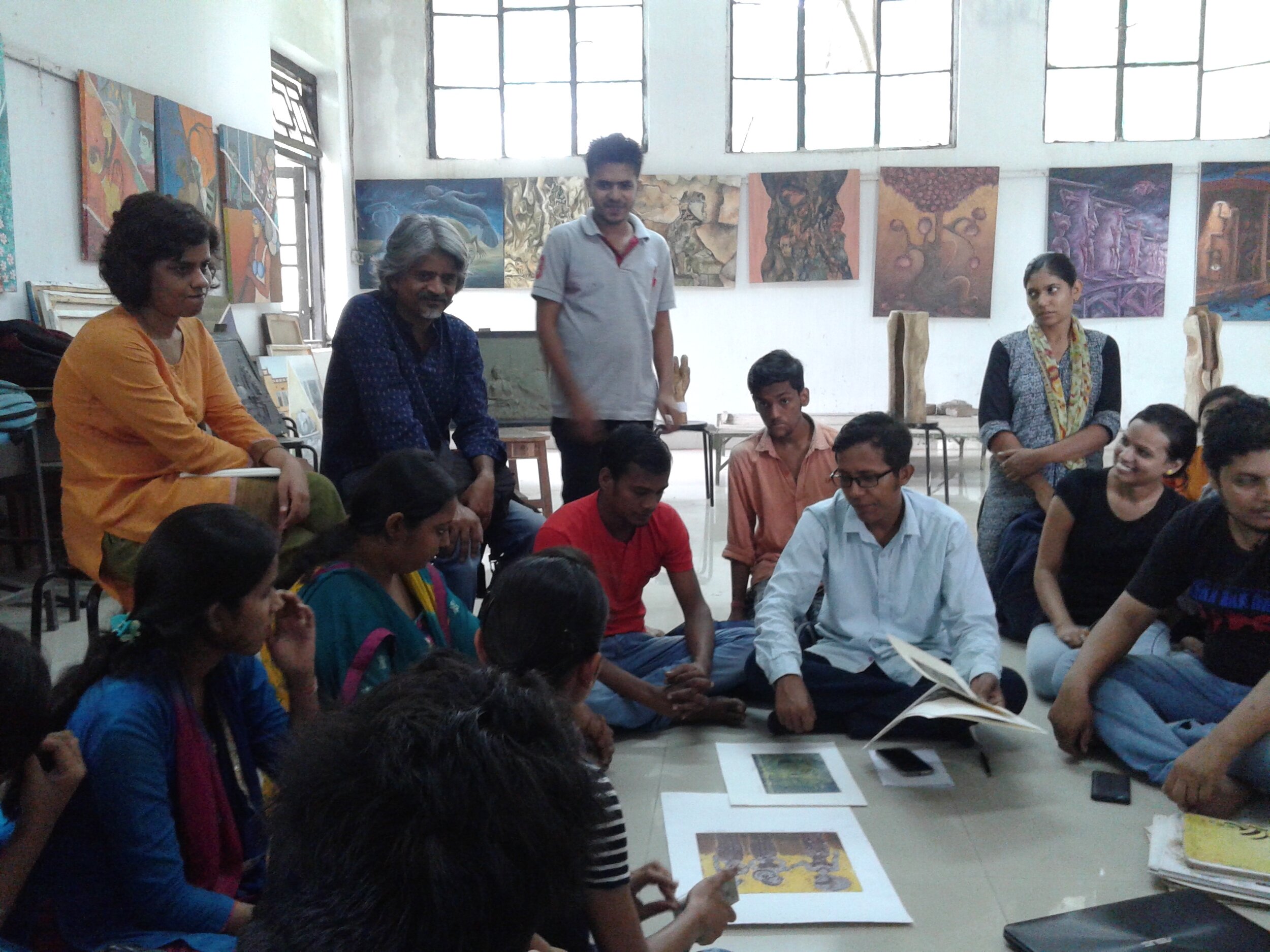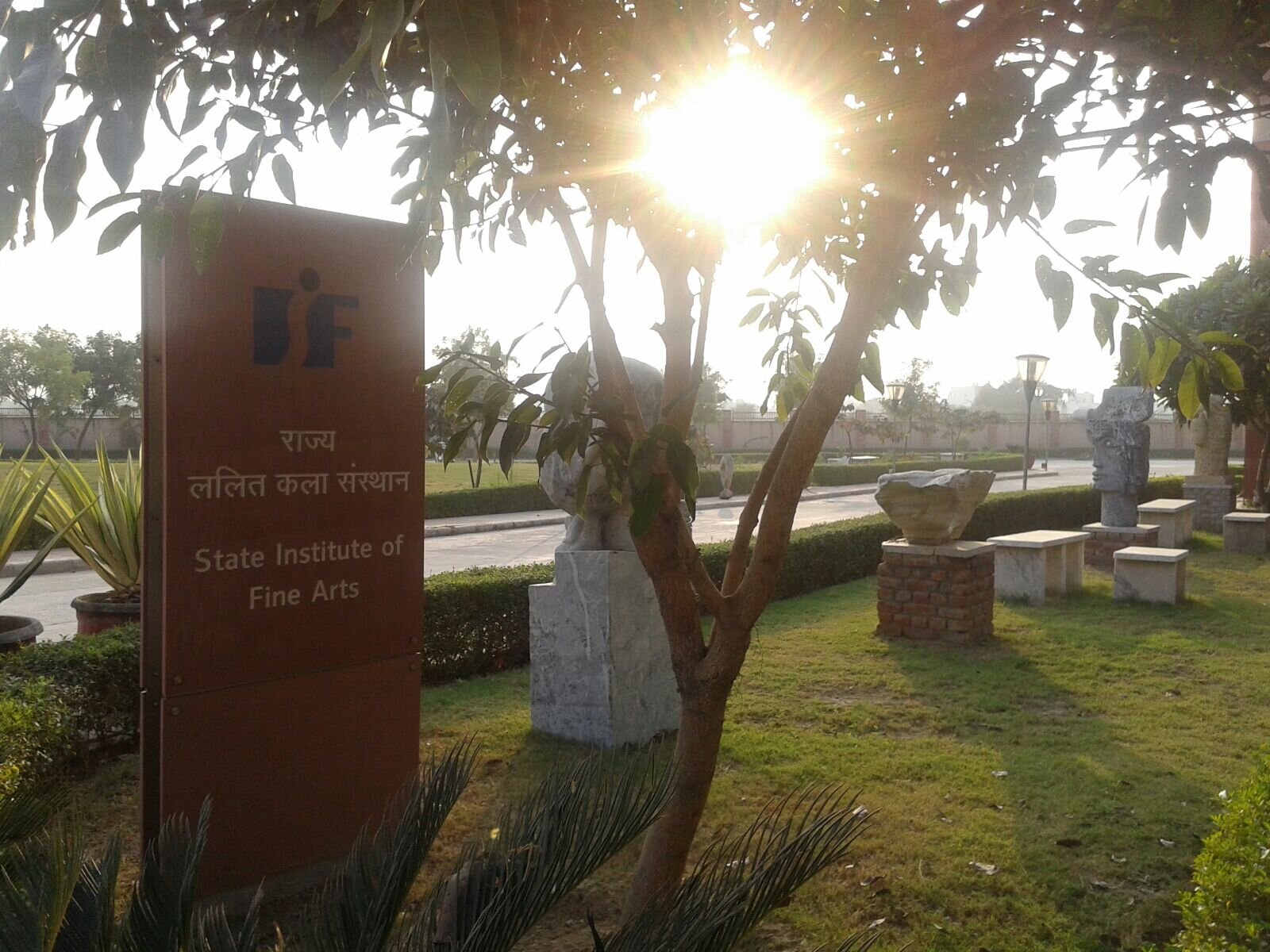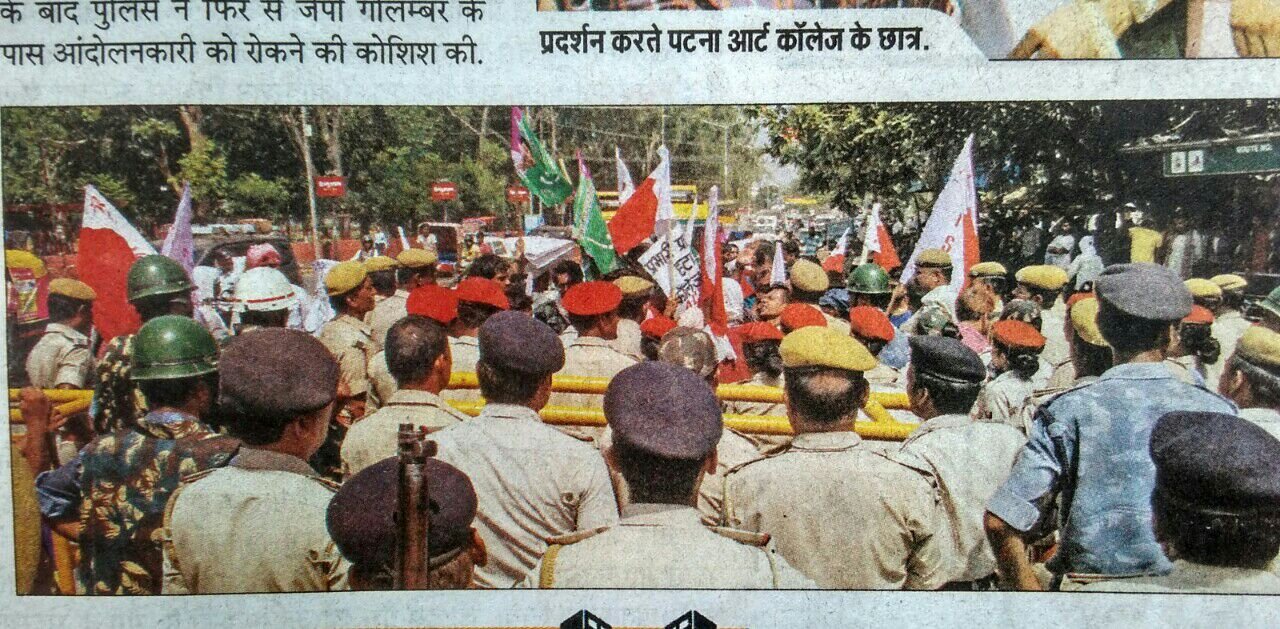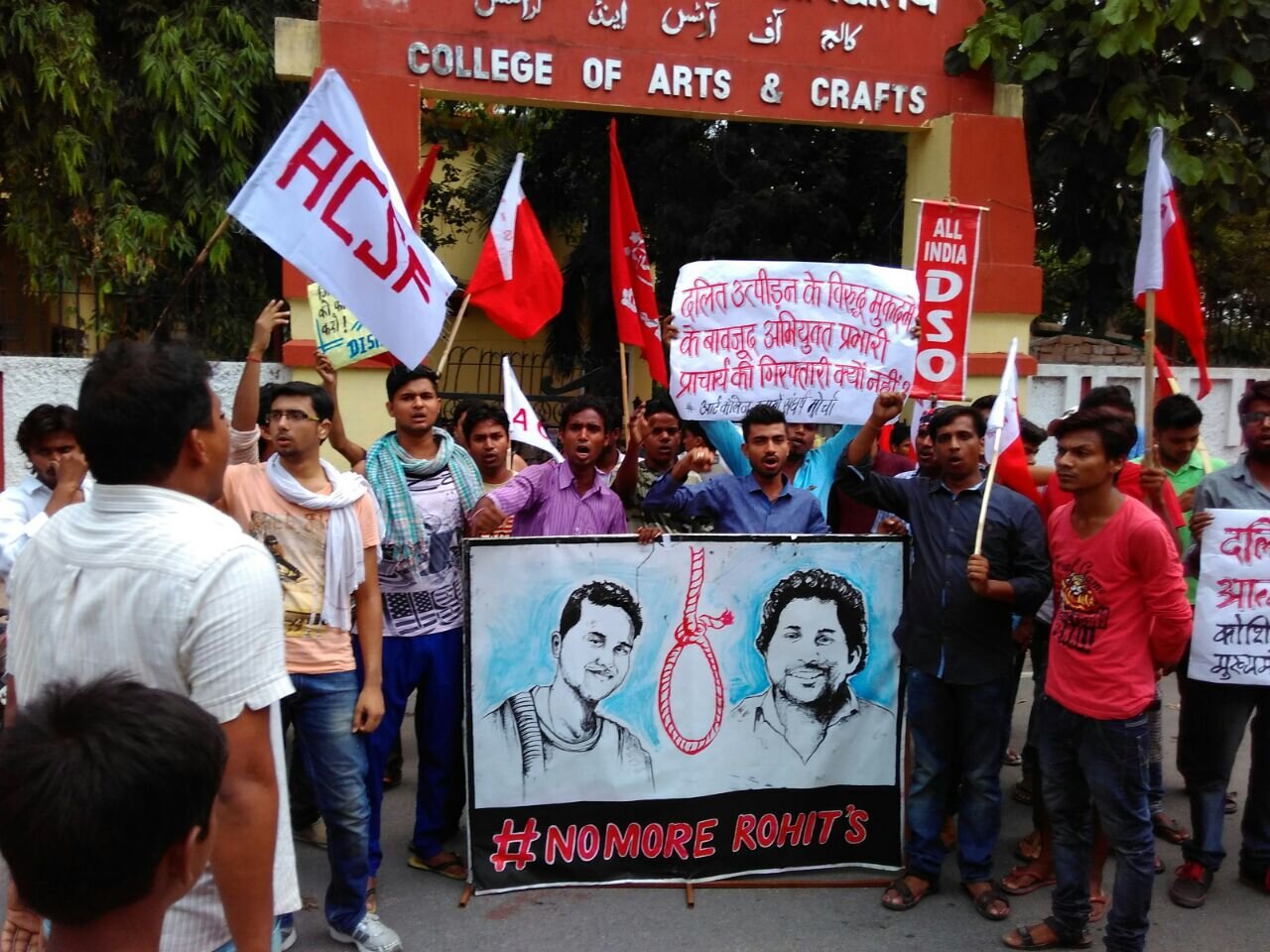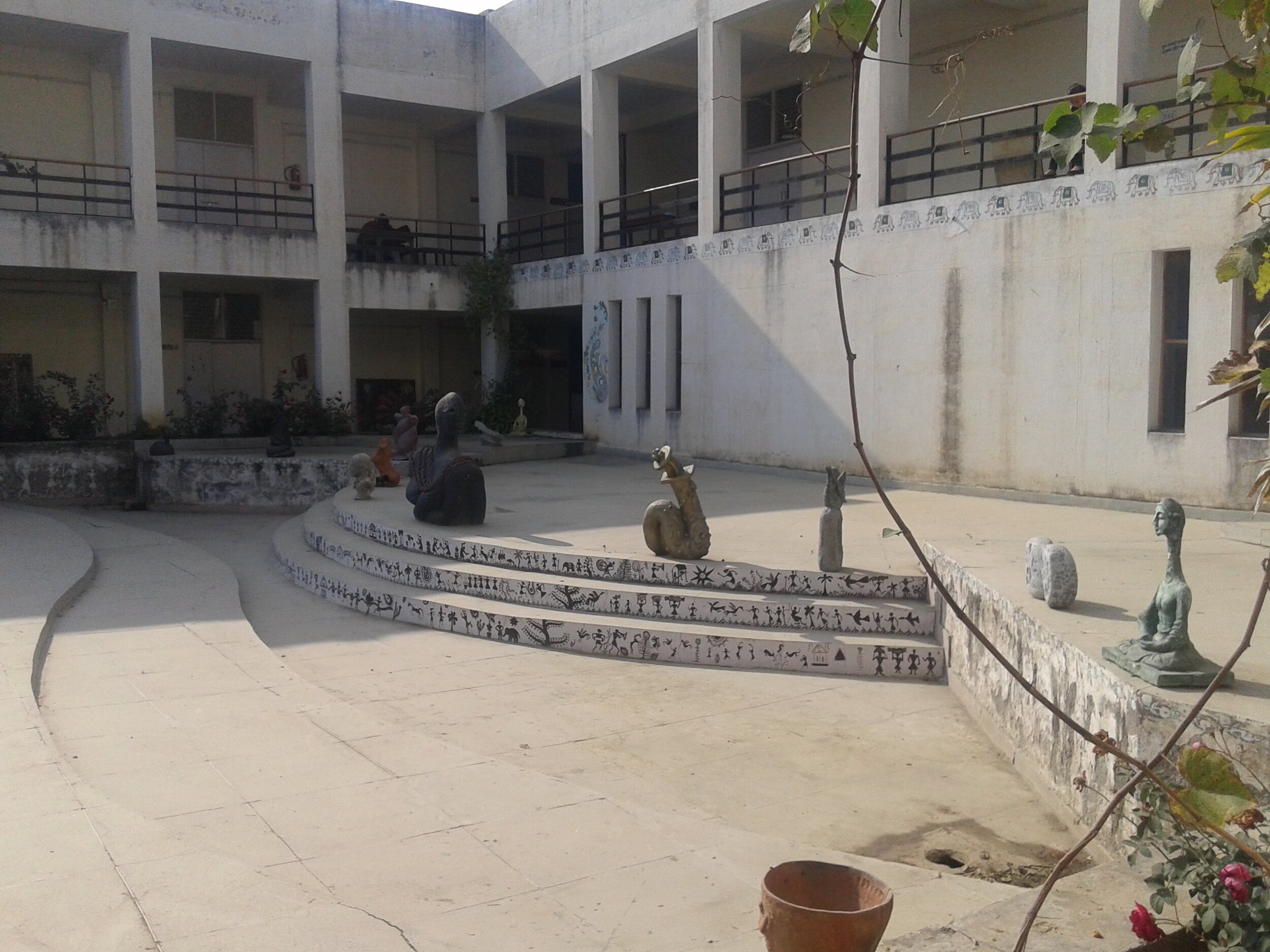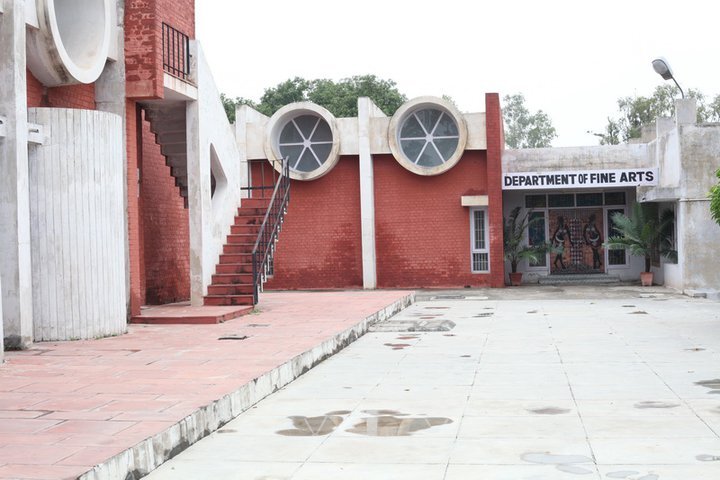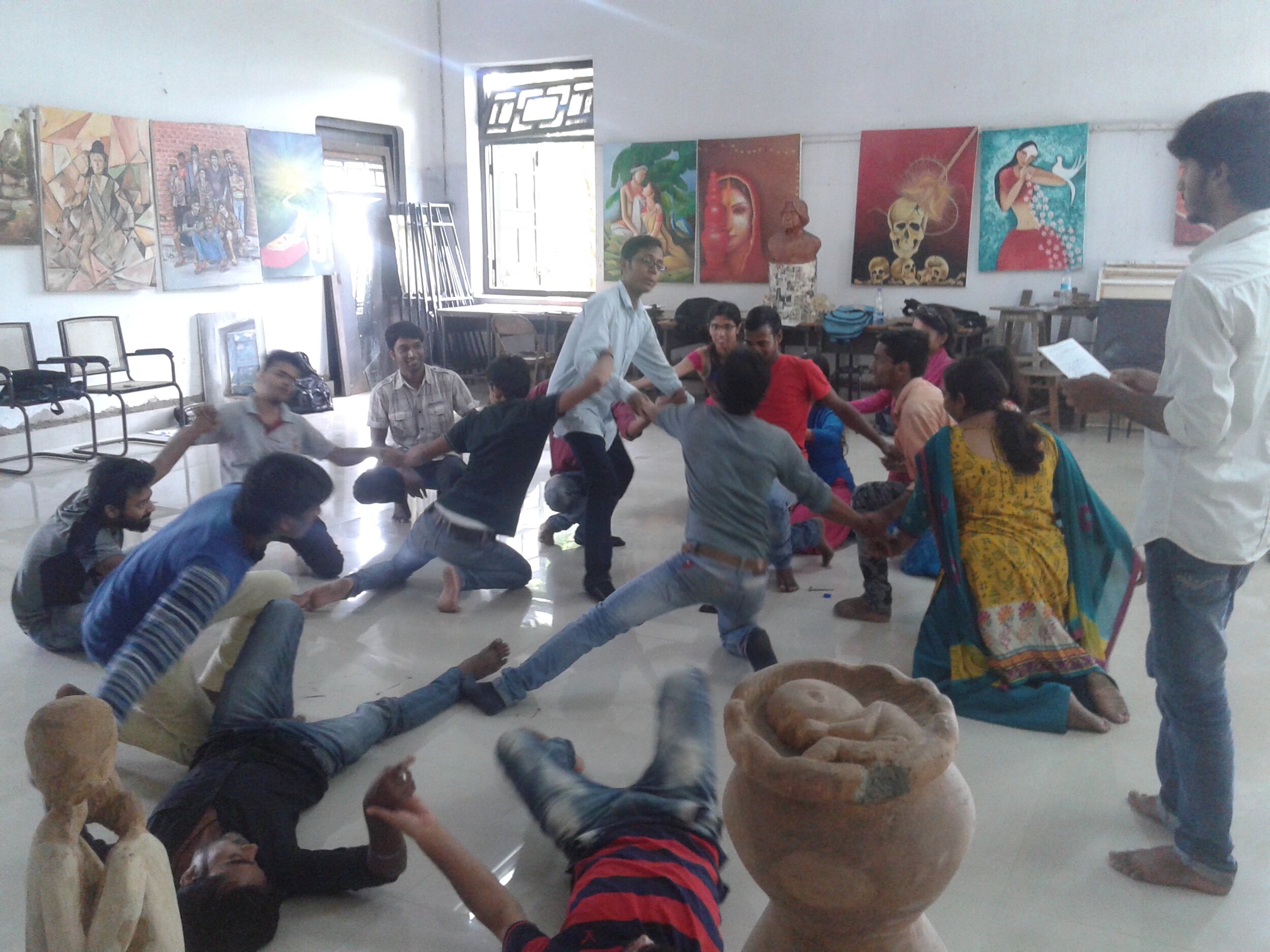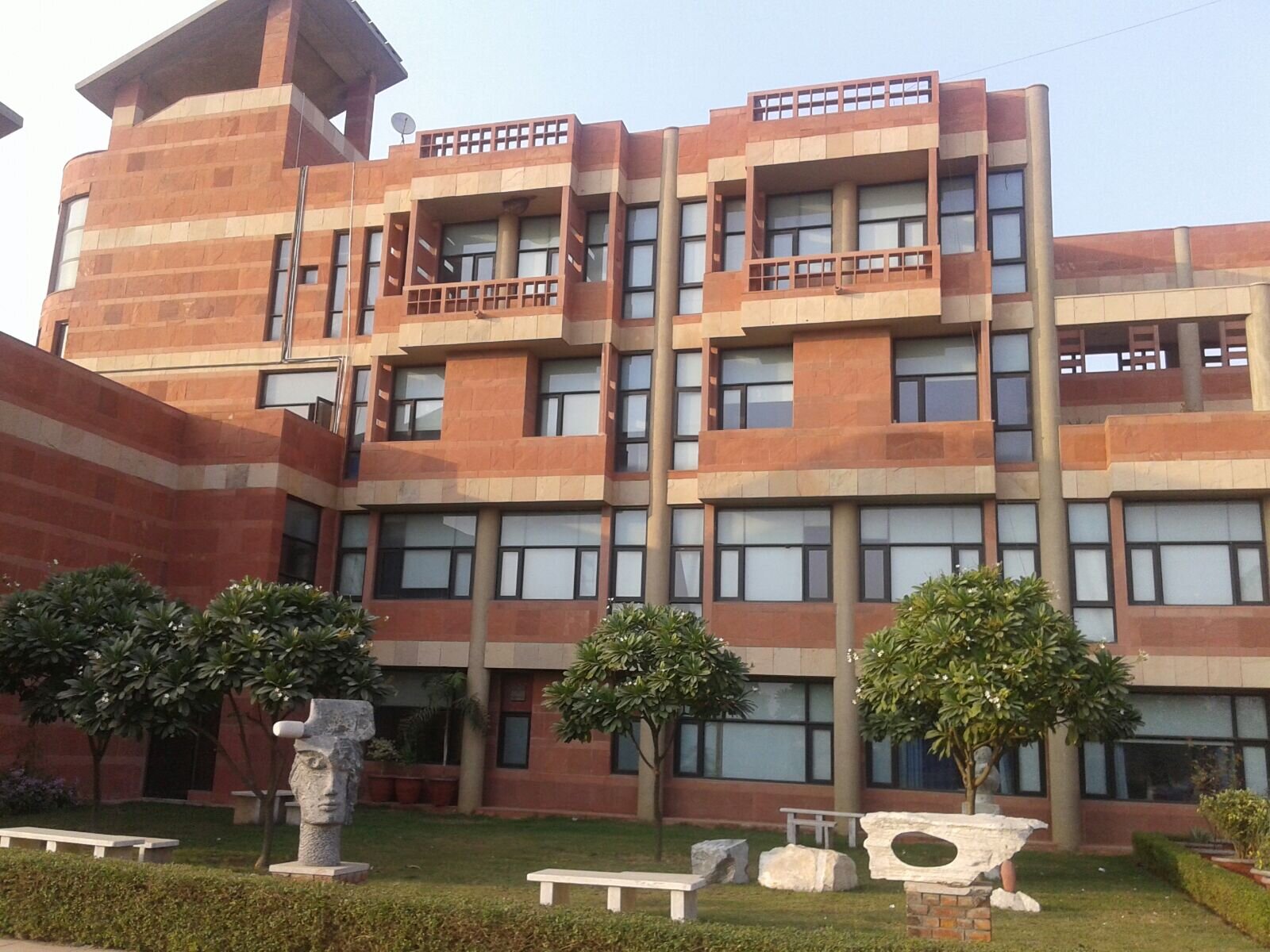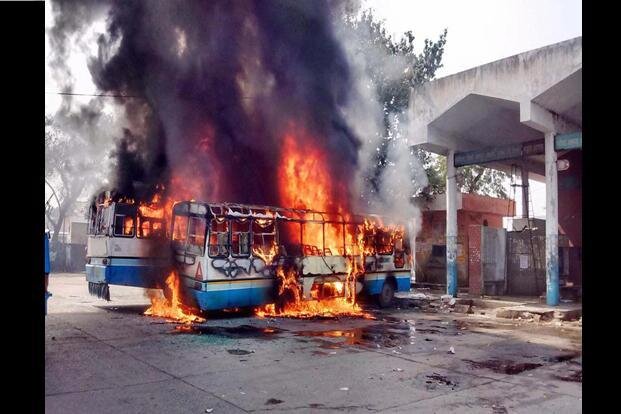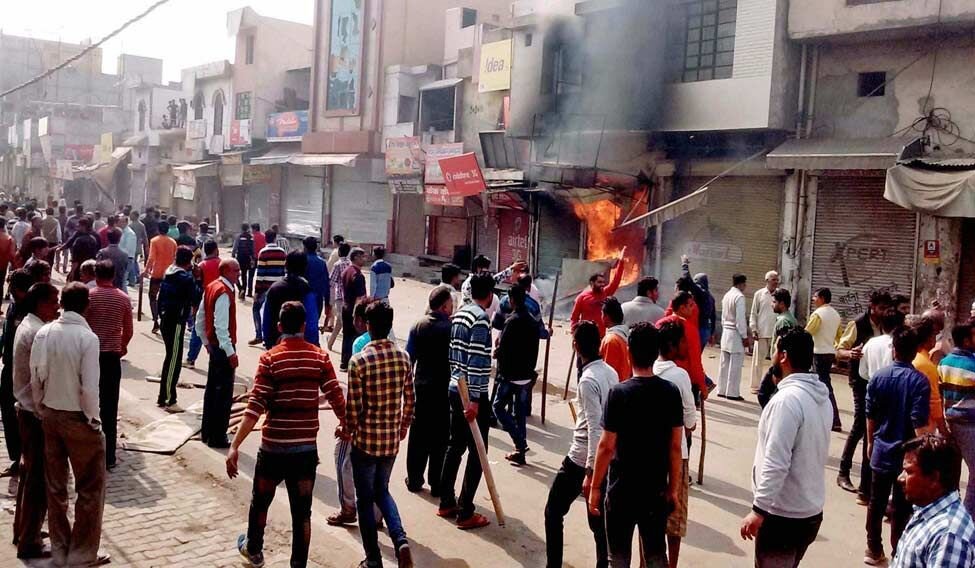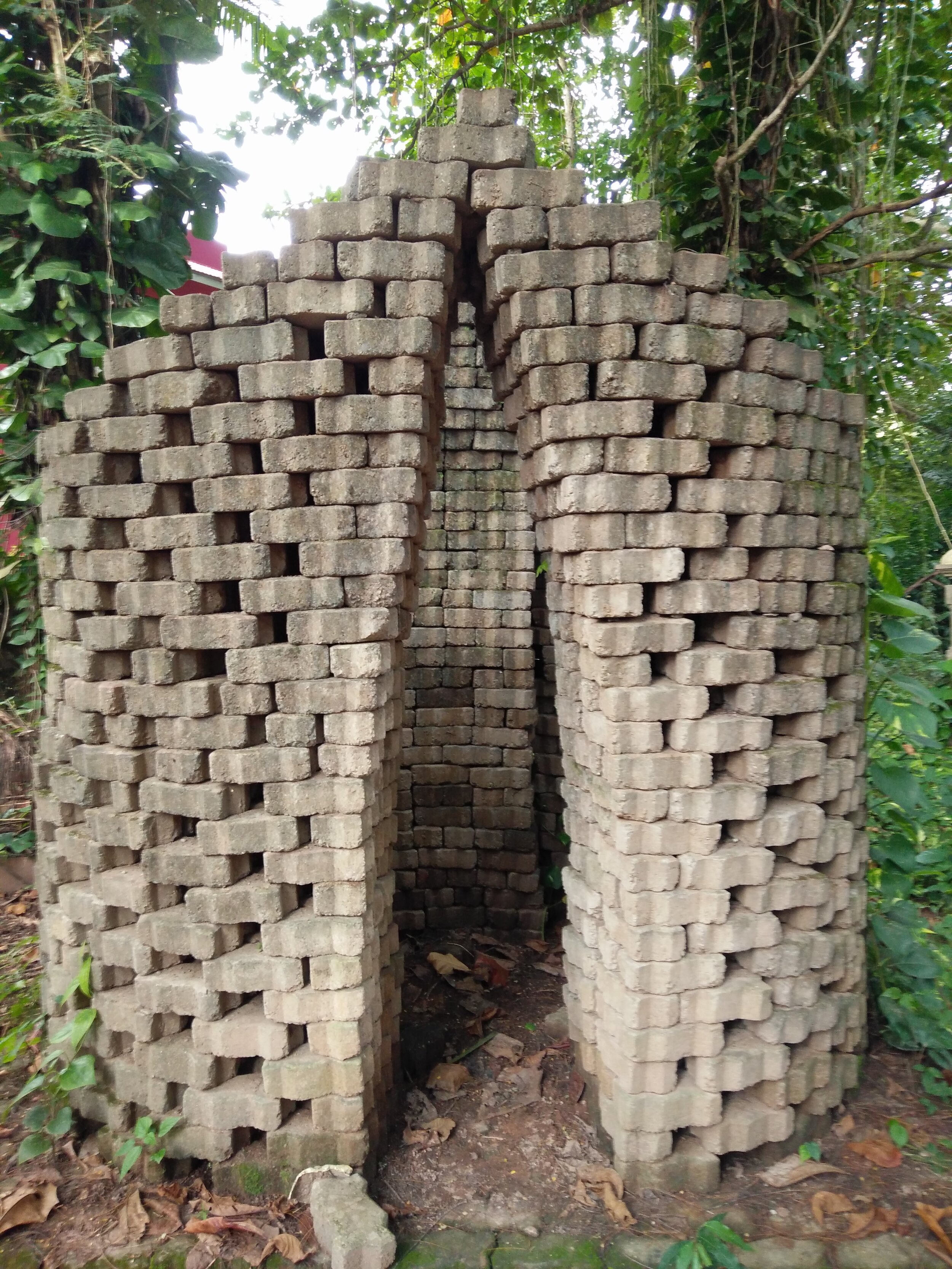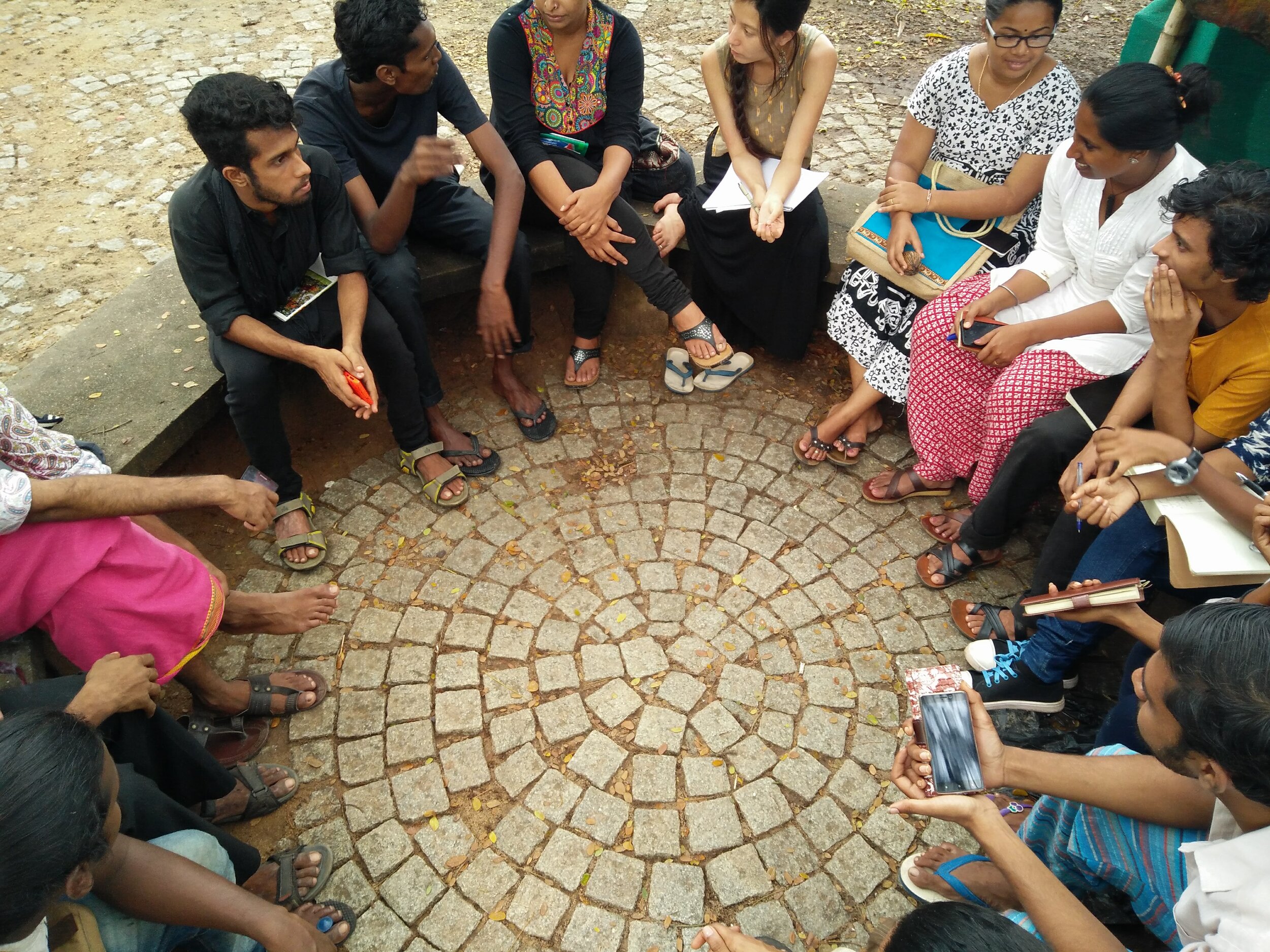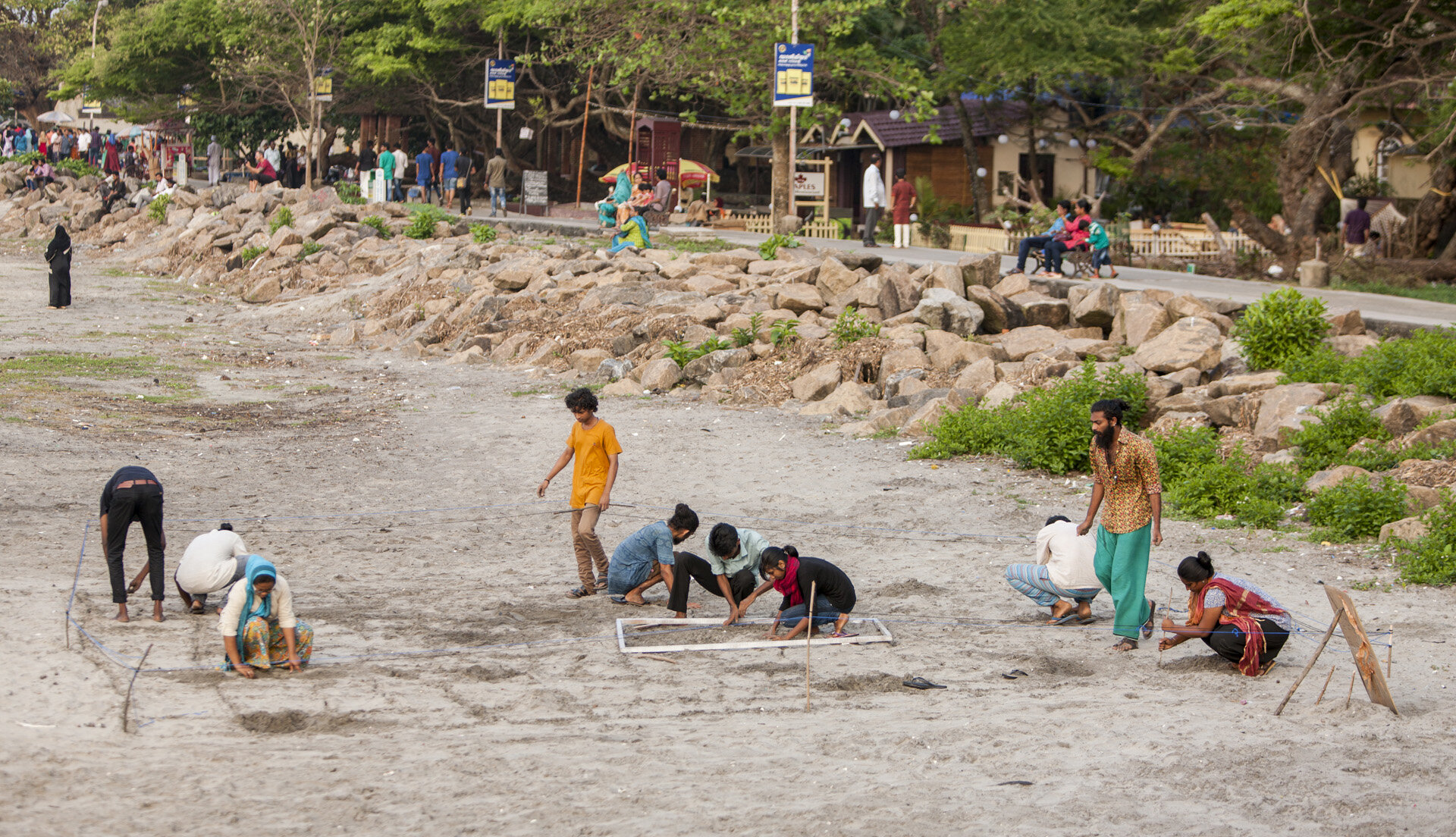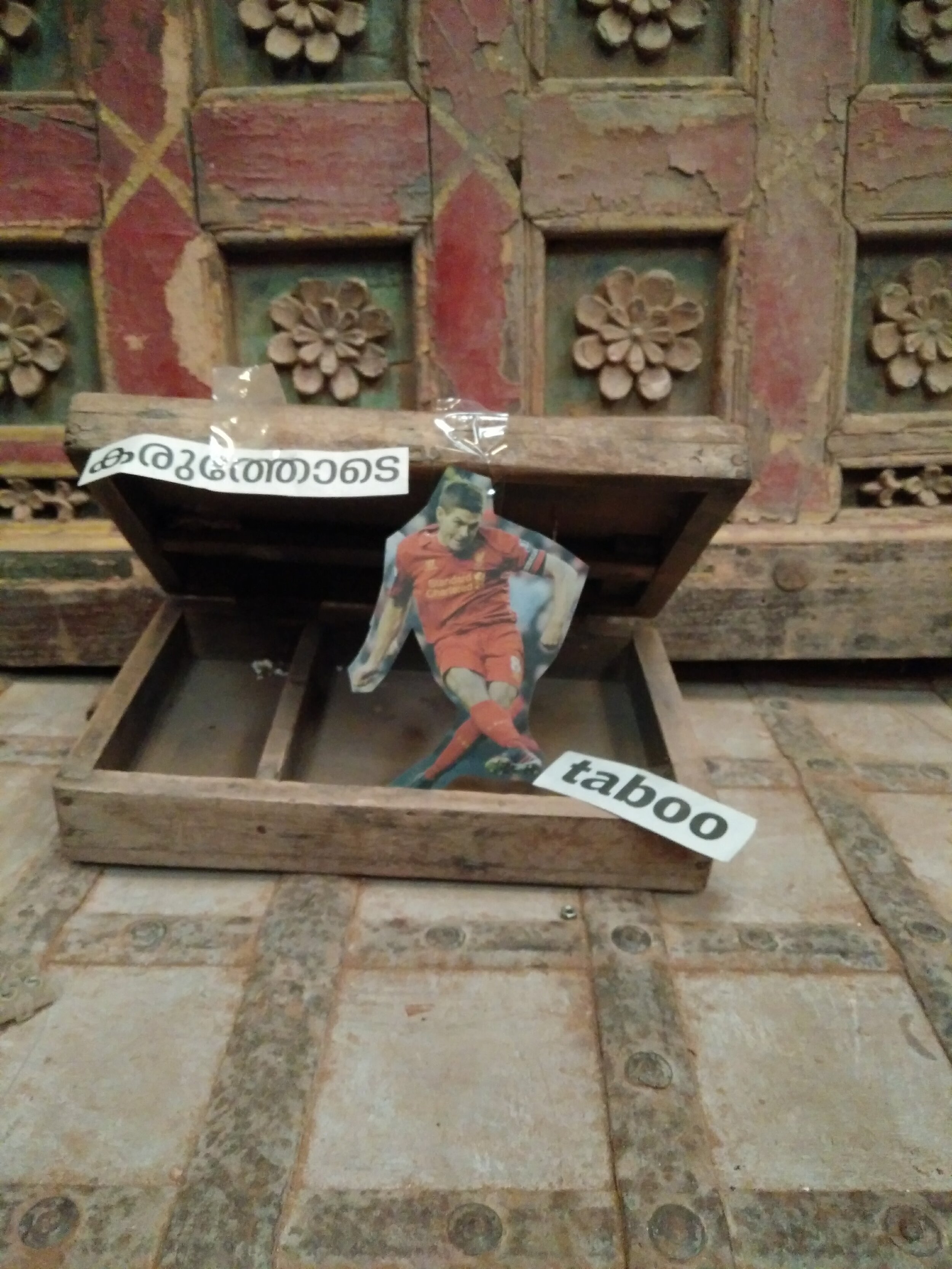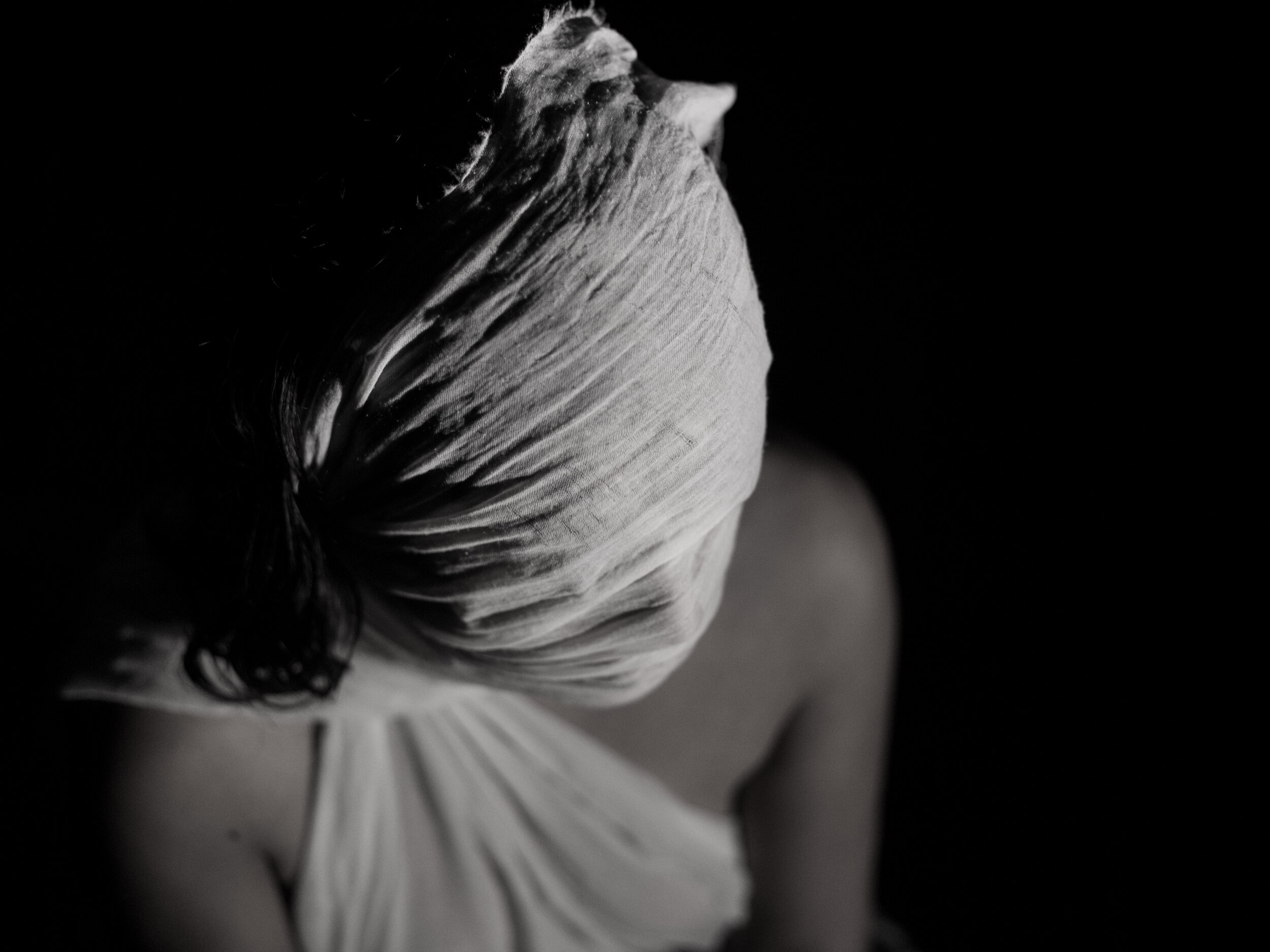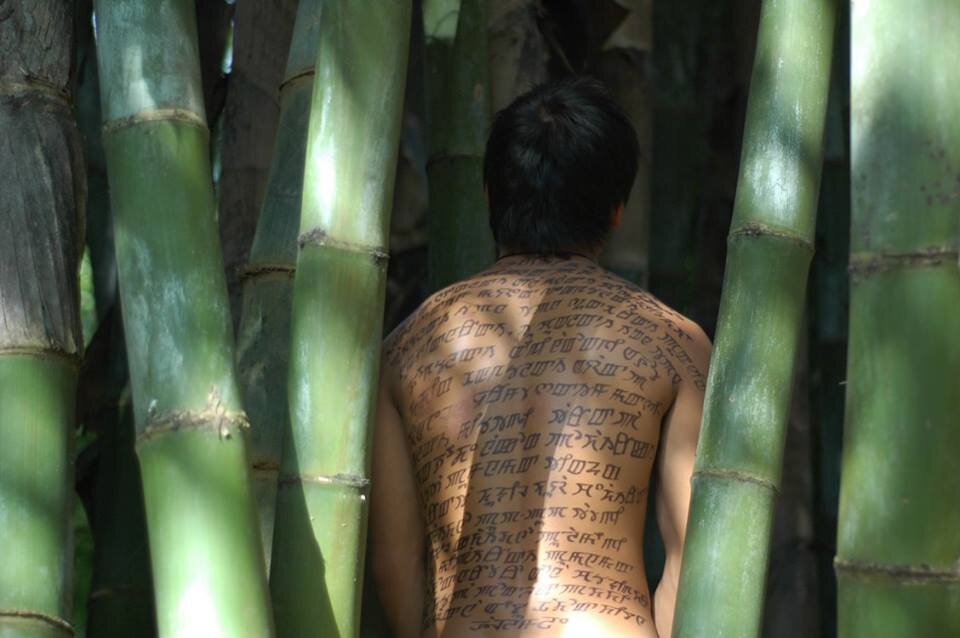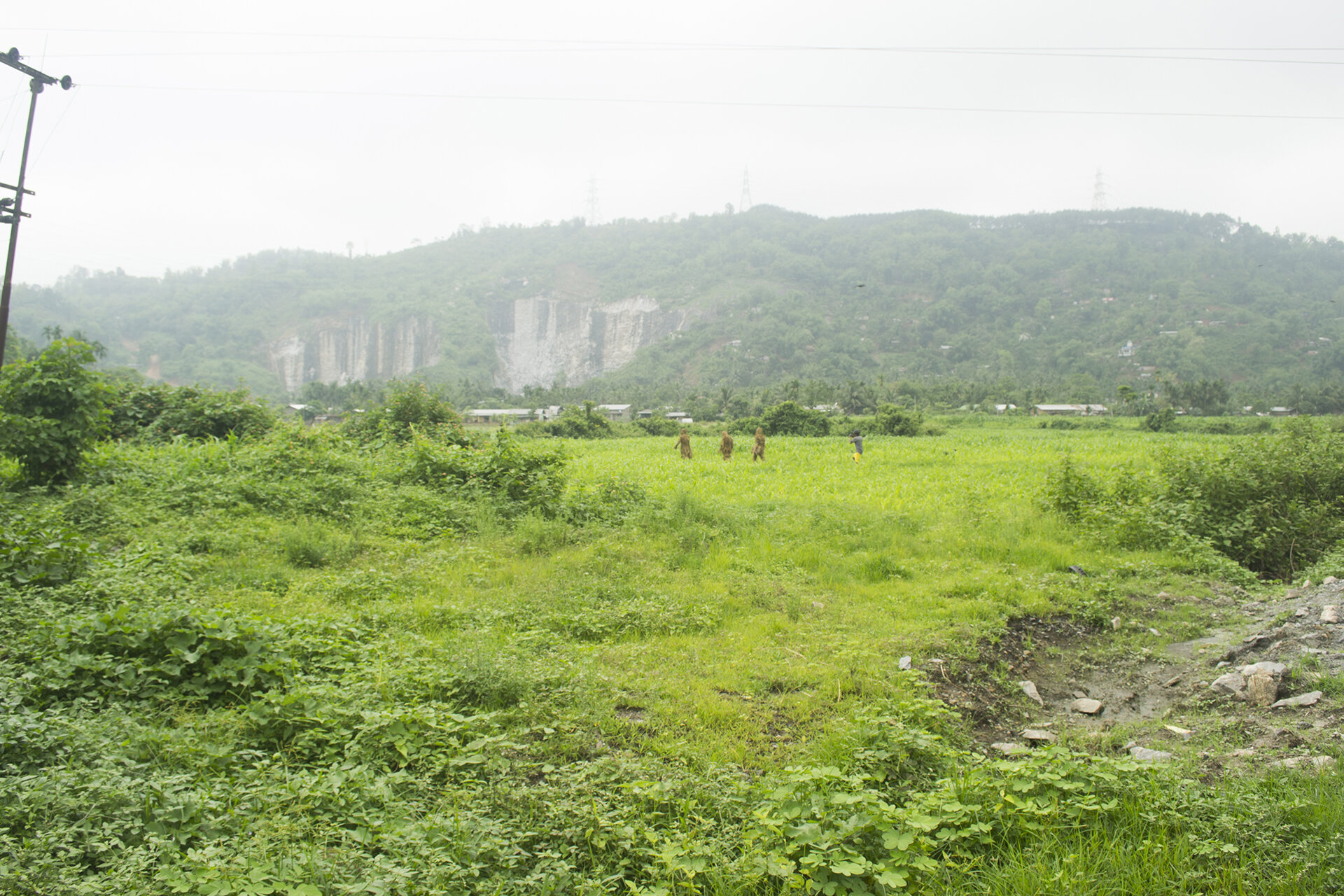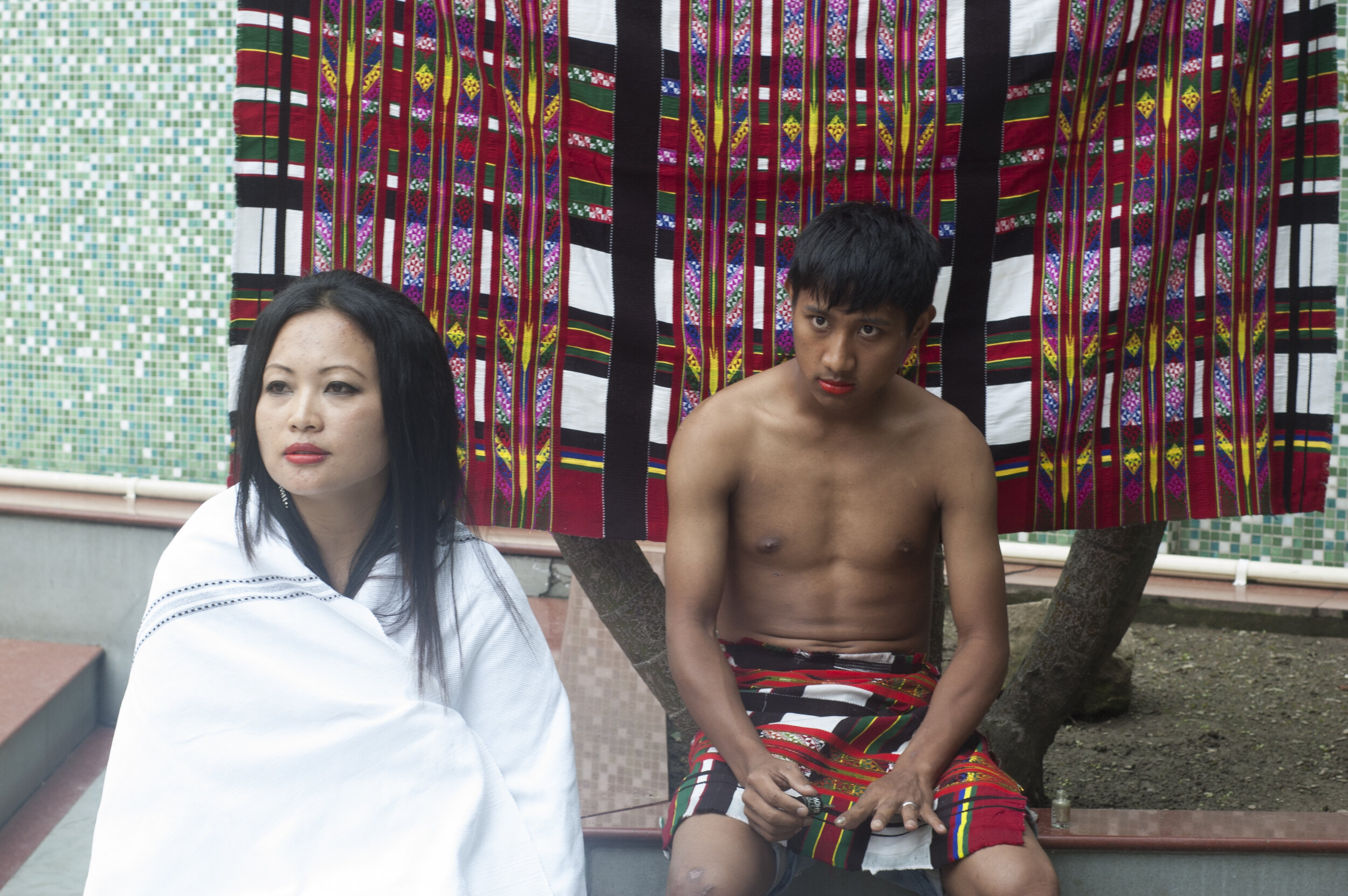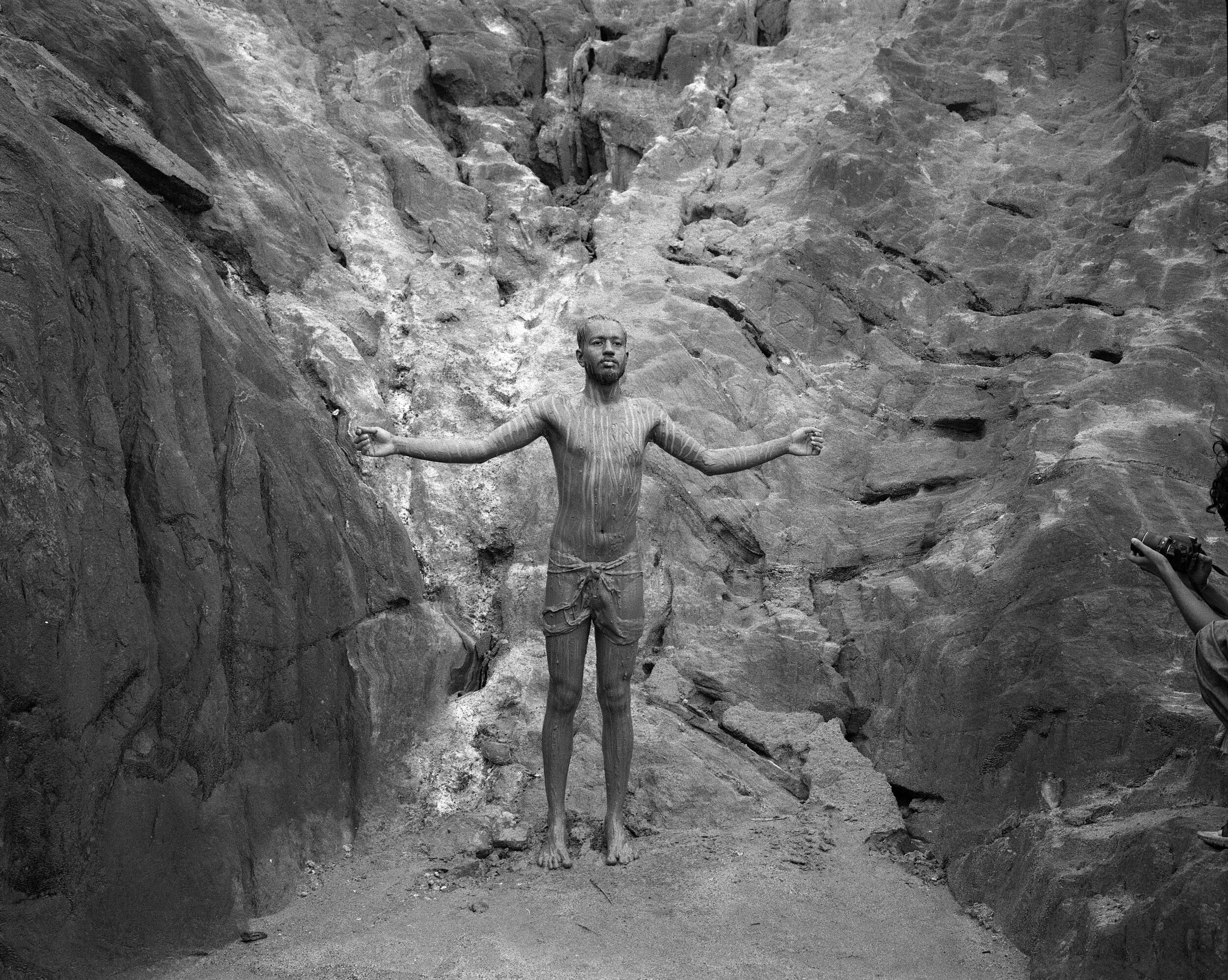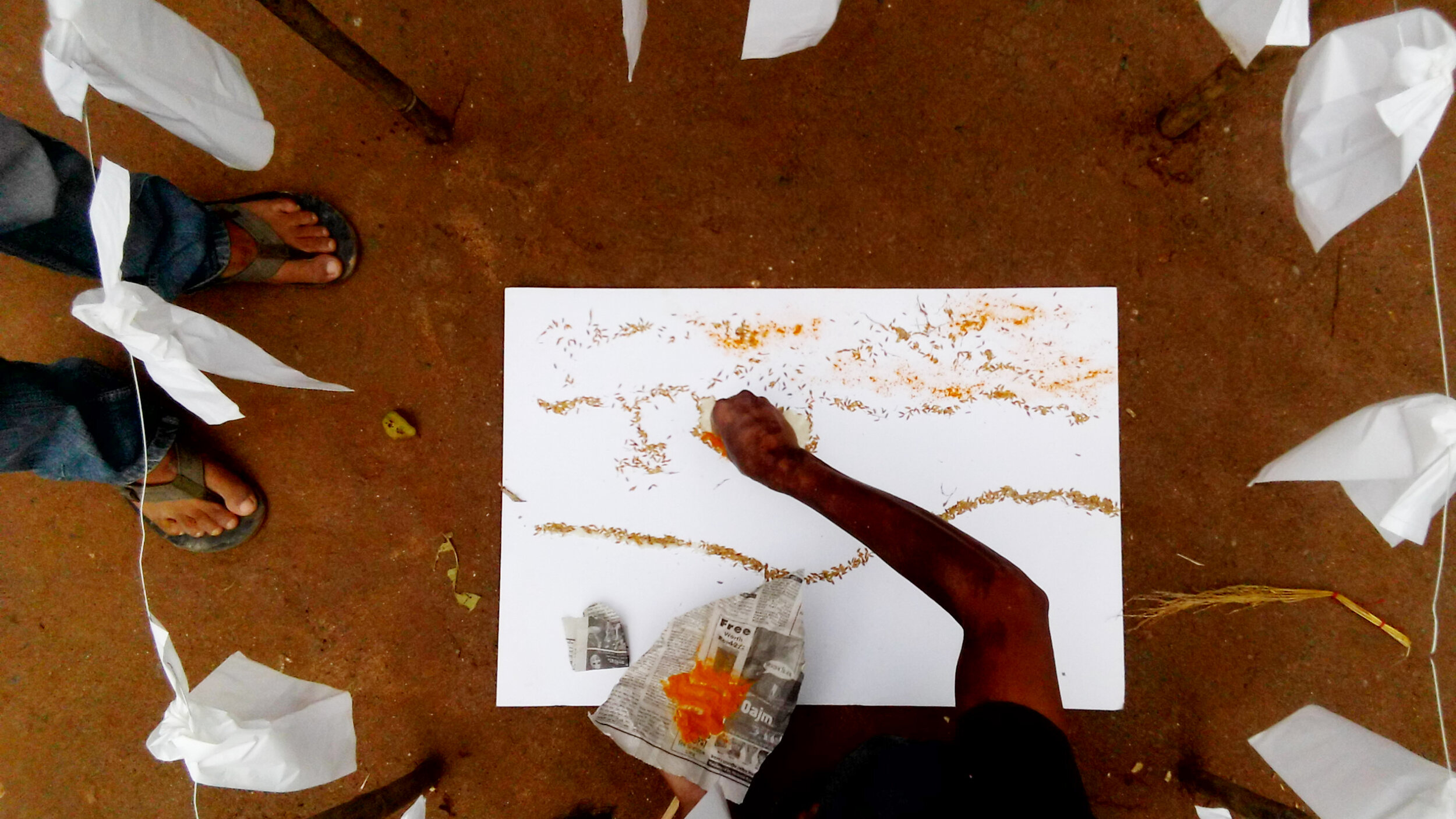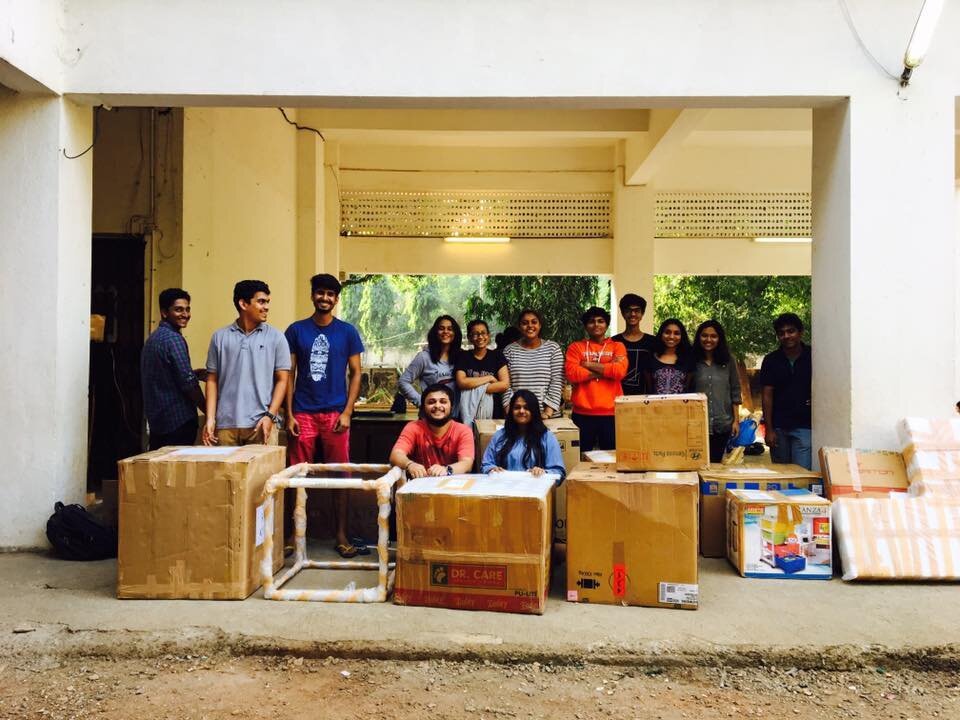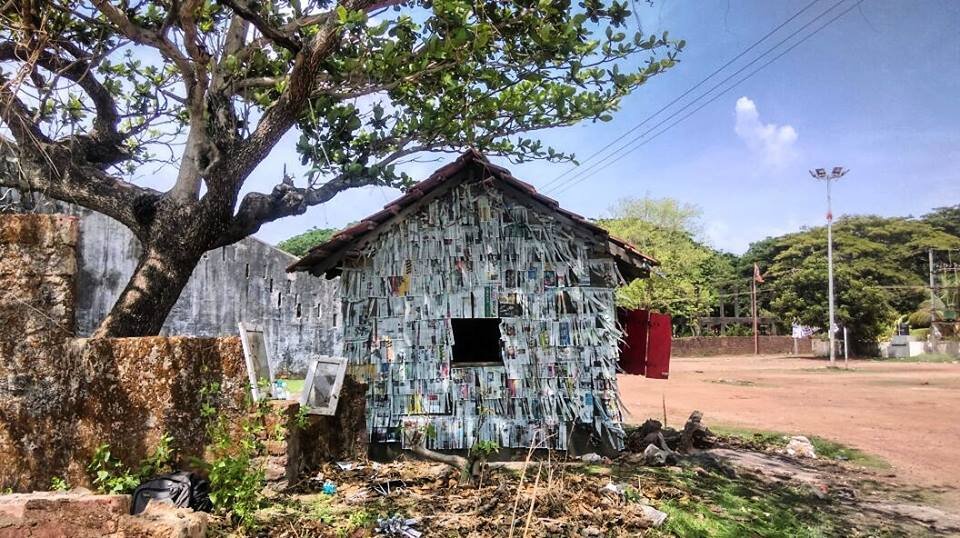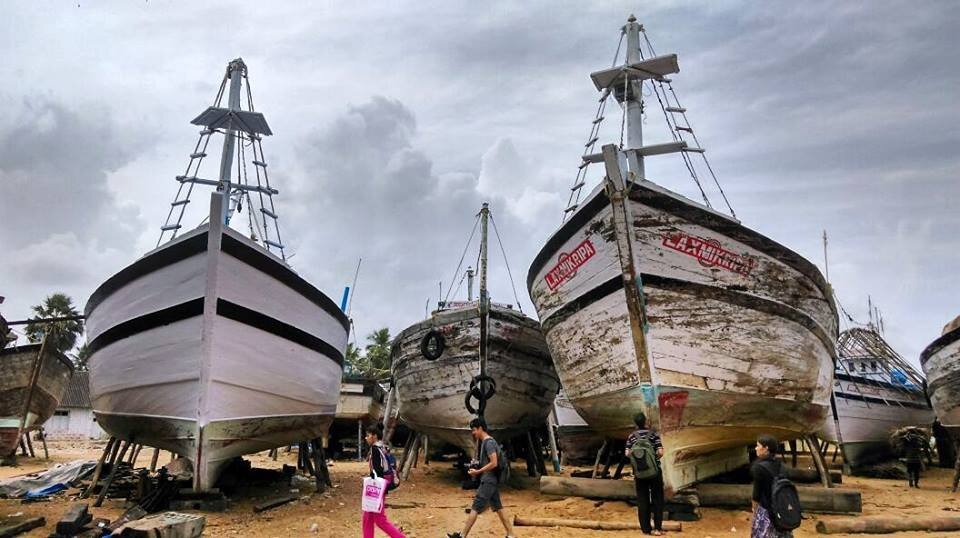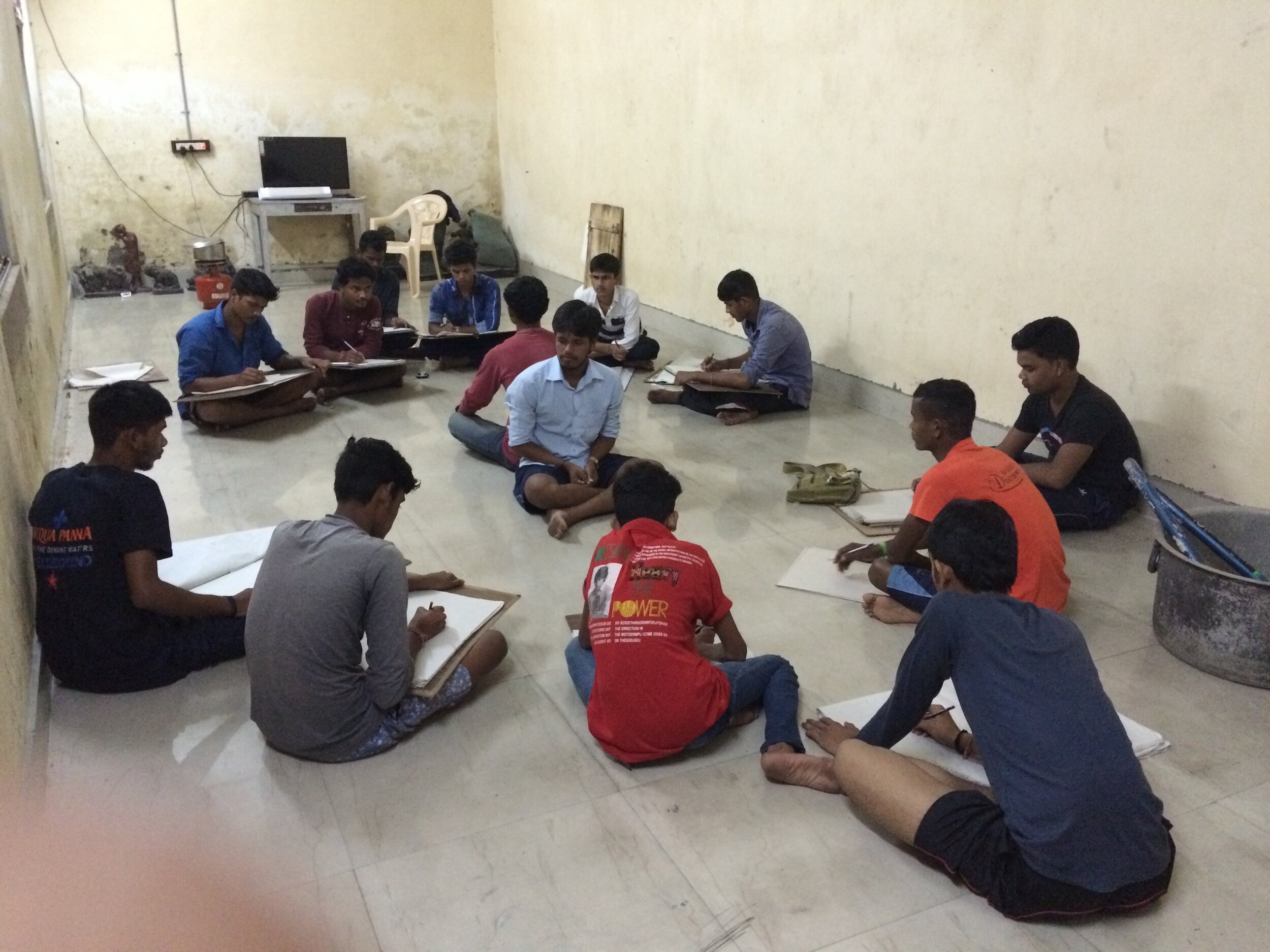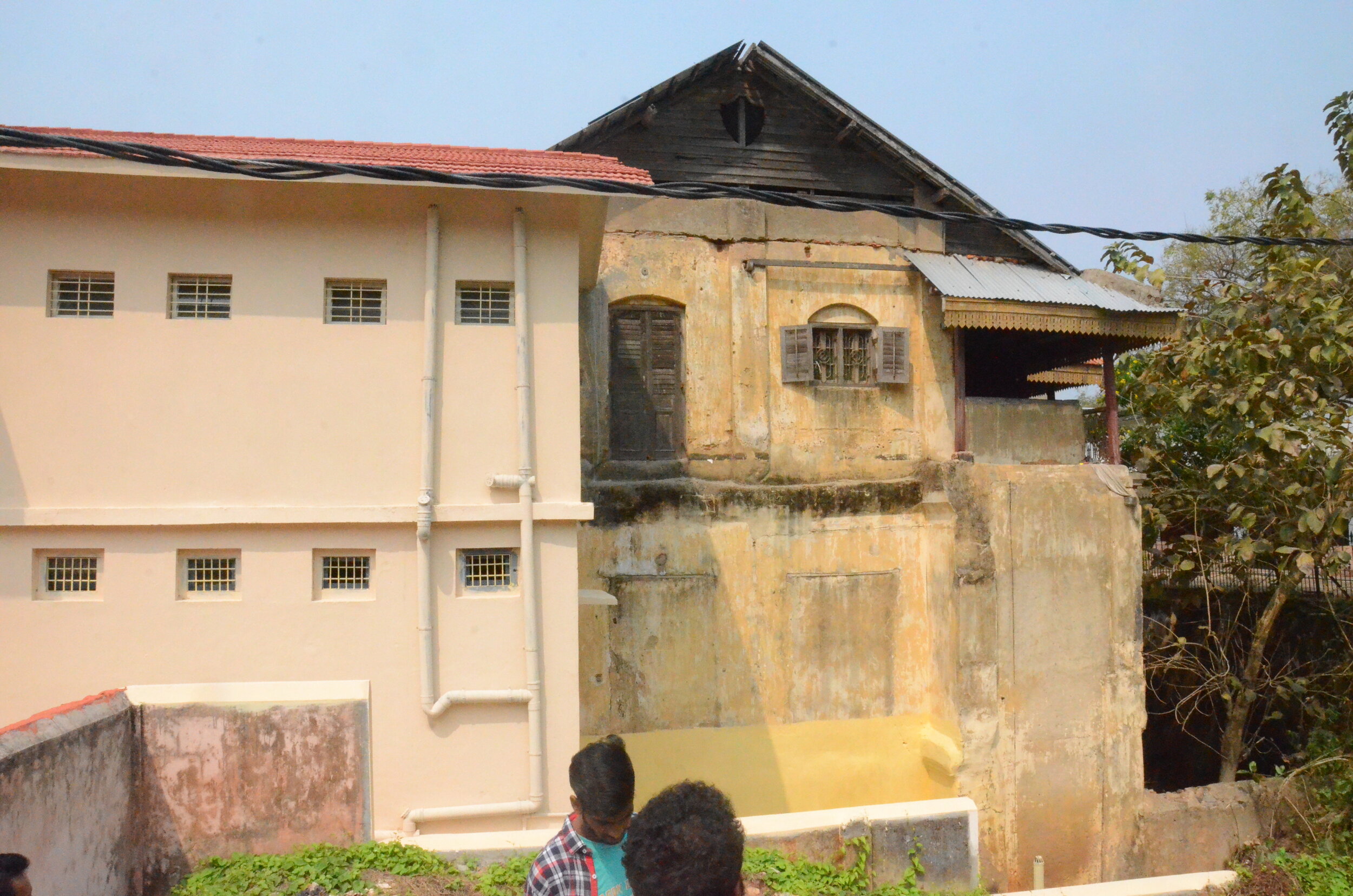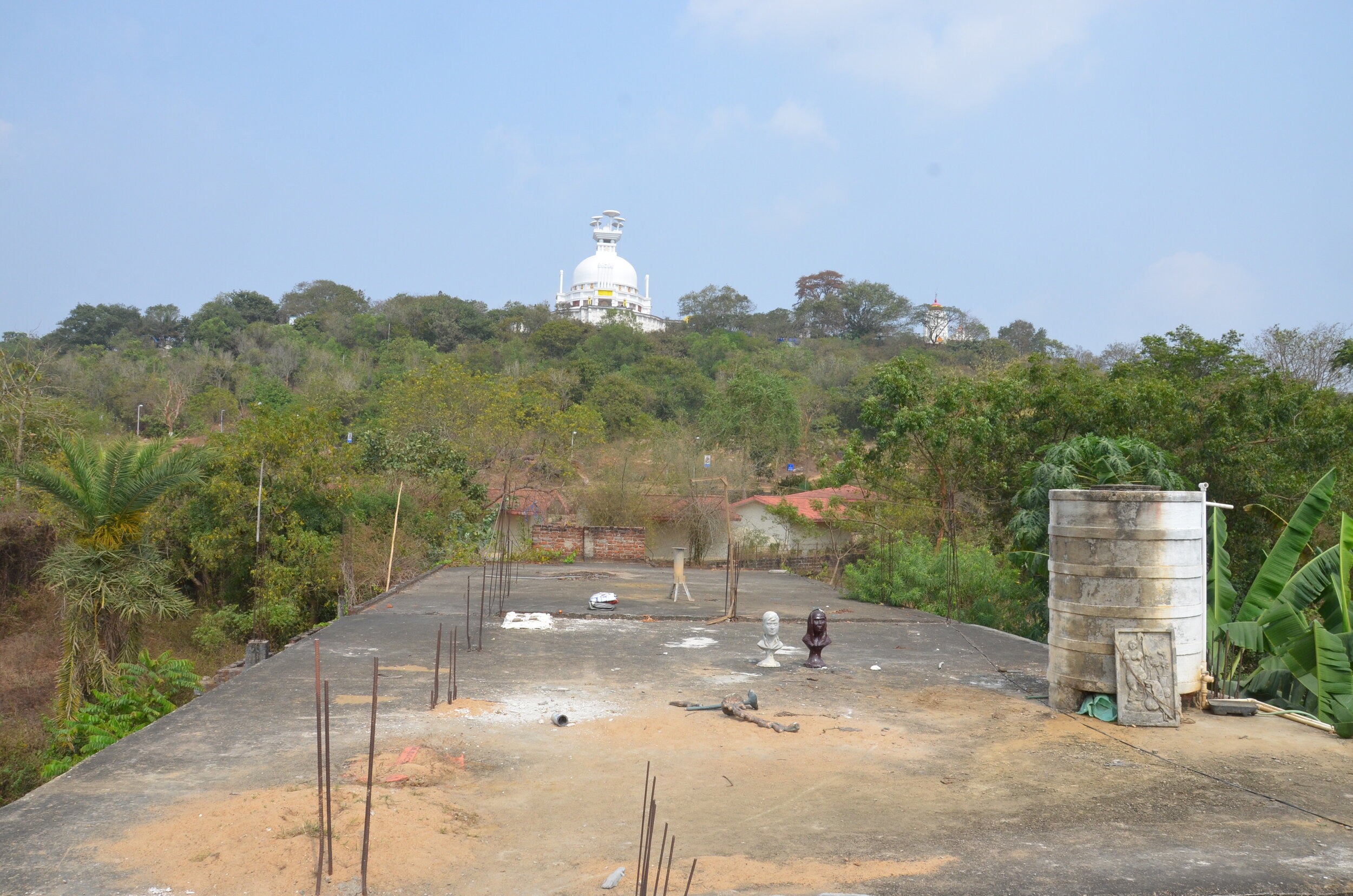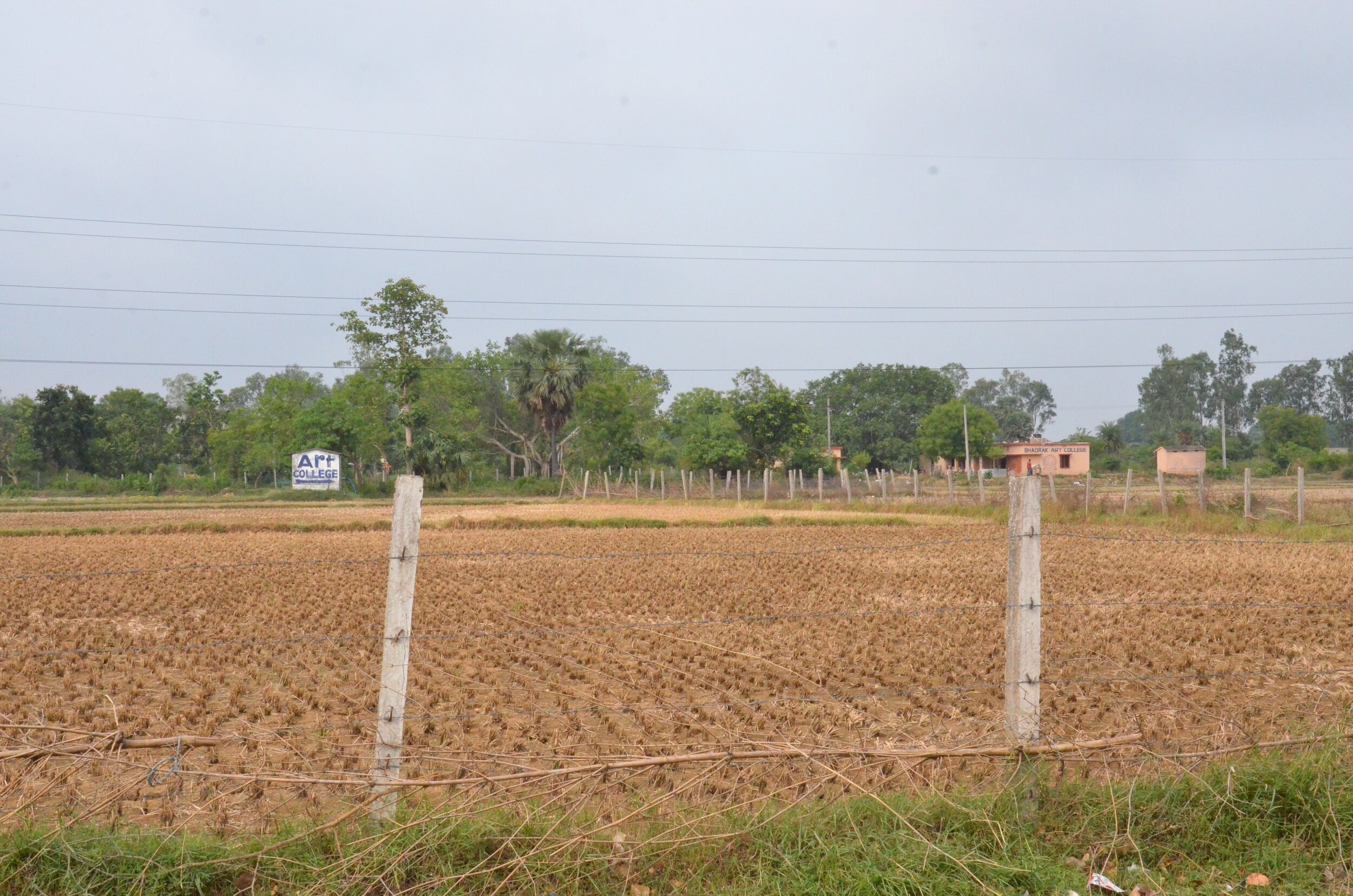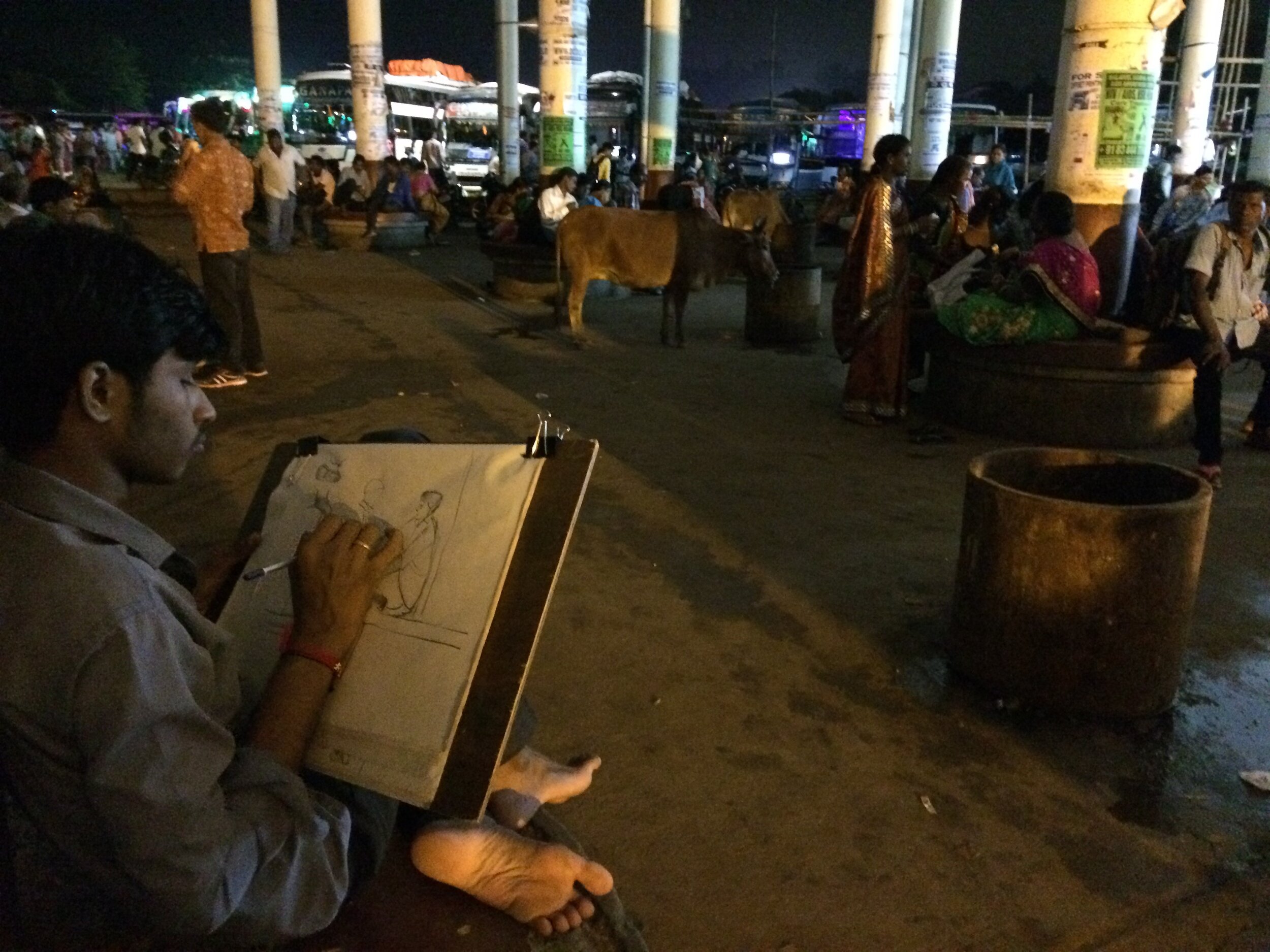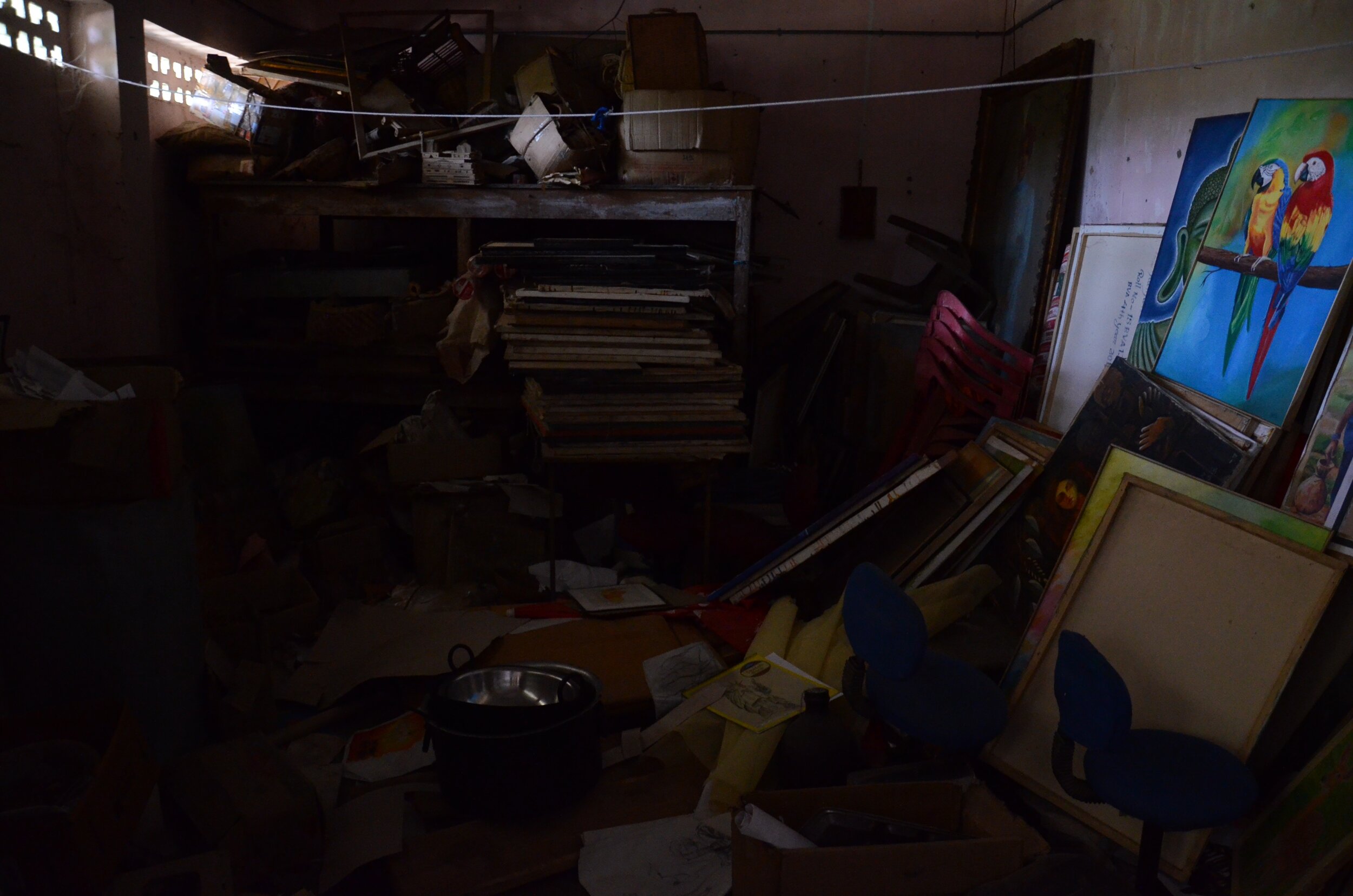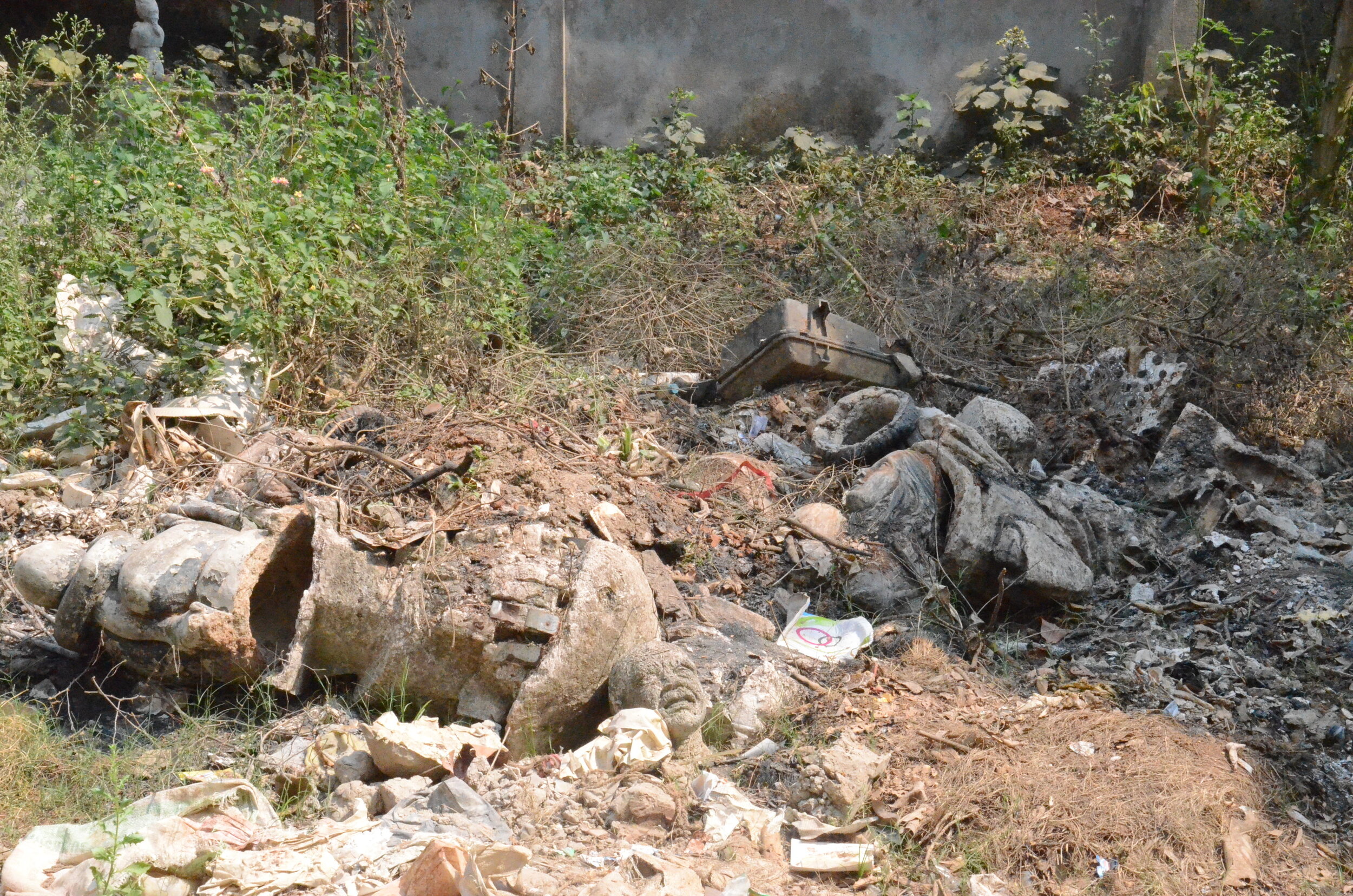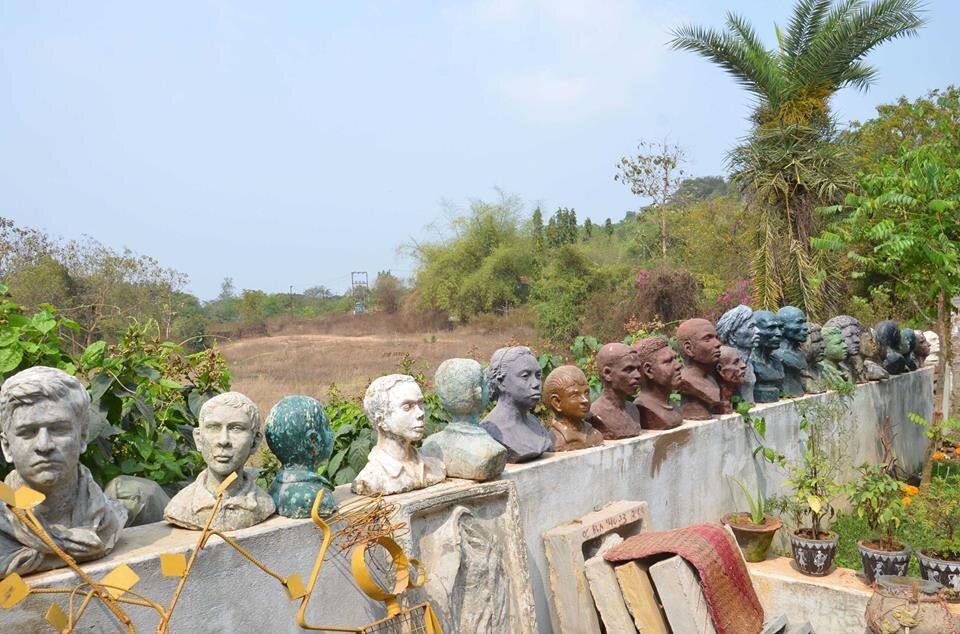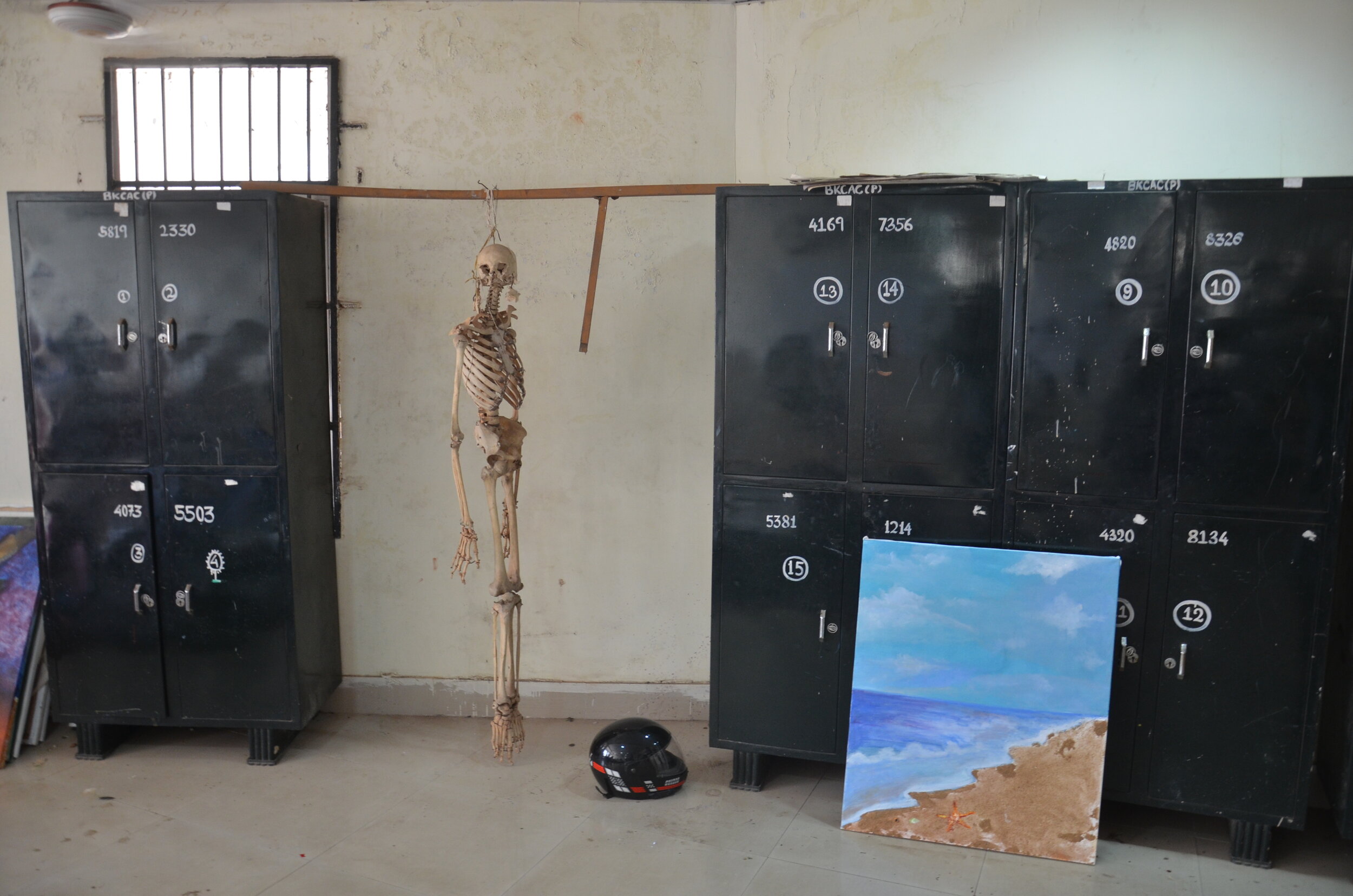CURATOR LED WORKSHOPS AS PART OF STUDENTS’ BIENNALE 2016
As part of their ongoing research to art schools across the country, many of the curators on the Students’ Biennale (SB) team scheduled workshops with students in different art colleges between June and November 2016. The workshops emerged organically from the research the curators have been conducting at various institutions and the SB advisors also encouraged the group to deepen their interaction with student bodies by conducting concerted and impactful workshops on campus.
Seeing it as an extension of their curatorial strategy, the workshops became interesting platforms to galvanise interactions and collaborative modes of art making, in some cases bringing together students from different art colleges. Working with resource people, and a network of local artists, teachers and alumni, the workshops have generated interesting collective deliberations on key issues identified by the curators and students – of displacement, translation, collectives, entropy and urbanism, among others. The workshops are focussed on exploring extended art practices, working with local resources, mediumistic shifts in contemporary art and the engagement with the public.
The curators’ research trips were supported by TATA Trusts, with additional support by Raza Foundation
All curators’ led workshops supported by Sher-Gil Sundaram Arts Foundation. Paribartana Mohanty’s workshop in Odisha was supported by Kiran Nadar Museum of Art and Adwait Singh’s workshop in Banaras was supported by TAKE on Art Magazine
Brief Notes on the workshops conducted:
MUMBAI
Curator Shruti Ramalingiah
Practice in Transitional Space
Advisors: Amrita Gupta Singh and Sudhir Patwardhan
Sir JJ School of Art, 7 students
1 – 31 August, 2016 | 4 – 7 October, 2016
Shruti Ramalingiah developed an interactive workshop process with JJ students on engaging with neighbourhood and the locality around them. Over a period of two months the students undertook a recce of artisans and workers engaged in making products around them. They identified individuals working in these small shops and stores and began to engage with them about their skills and how they operate and survive in the market.
Amrita Gupta Singh and Sudhir Patwardhan acted as mentors for the project. The JJ students put together an open day of works they produced through their workshop process. Titled Practice: In Transitional Space, the exhibition was held at the college. The works produced through this process have now made their way to Kochi.
DELHI
Curator Aryakrishnan Ramakrishnan
Workshops on Translation
Resource Persons: Lokesh Khodke, Vivek Moktan, Aryakrishnan Ramakrishnan
Students from Jamia Milia Islamia and Ambedkar University Delhi
Workshops held at Ambedkar University, Asia Art Archive and Jamia Milia Islamia
Dates: June 11, 12; July 2, 3; 12, 19 September 16, 17, 18 September,
Open day on 4, 5 October at Asia Art Achive and 24 October at Ambedkar University Delhi
Aryakrishnan Ramakrishnan brought together a group of 11 students from AUD and Jamia to participate in a series of workshops and interactive sessions that looked at ‘Translation’ as a conceptual tool. While the students shared that they didn’t need structured workshops persay as they had enough exposure living to these in Delhi, they spoke about the need for spaces where students could work together with inputs from resource persons guiding this working process. With the support of mentors like Vivek Mokatan and Lokesh Khodke, the sessions began with reading texts, presentations and discussions and gradually moved into exercises where students had to respond and ‘translate’ each other’s works. The sessions were designed to initiate conversations about the field, the audience the students are addressing, to begin practicing together with an understanding of the diversity of the field. Aryan held a meeting with a group of advisors which consists of Rakhi Peshwani, Belinder Dhanoa, Shefalee Jain, Lokesh Khodke and Shivangi Singh to help him evolve these interactive sessions with the students.
The two month process finally culminated in an Open Day in New Delhi on 4-5 November, 2016 at Asia Art Archive where the students exhibited videos, books and shared the performances they had developed. Another Open Day took place at Ambedkar University Delhi on November 24 where the students shared the murals they had been working on in the campus.
BARODA & HYDERABAD
Curator Faiza Hasan
Exploring ideas through the moving image
College of Fine Arts, JNA&FAU, Hyderabad
Resource person: Amshu Chukki
11 July, 2016- 14 July, 2016
Faiza Hasan organised a workshop at College of Fine Arts, JNA&FAU inviting the Baroda based artist Amshu Chukki to engage with MFA students on ideas of sites and objects, and work outside their classroom studios.
Find the Report on the Hyderabad Workshop here.
Find the Report on the Baroda Workshop here.
AURANGABAD, NAGPUR & PUNE
Curator Rajyashri Goody
‘A School Is Not a School: The Class Photograph’
Dept. of Fine Arts, Aurangabad University
Resource Persons: Noopur Desai (Art researcher and critic, Pune), Jogdand Nandkumar (Artist, Aurangabad Art School Alumnus), Nandkishor Saindane (Artist and lecturer, Aurangabad Art School Alumnus)
10 to 17 August, 2016
‘A School Is Not A School; An exploration of Community Art
Practice as Contemporary’
Govt. Chitrakala Mahavidyalaya, Nagpur
Venue: College Campus and the village of Paradsingha.
Resource Persons: Shweta Bhattad and Lalit Vikamshi
August 25th to 31, 2016
Self-critique and the significance of process in an art students’ life
With 19 students from Bharati Kala Mahavidyalaya, Pune
Resource Persons Vaibhav Raj Shah, Shrenik Mutha and Noopur Desai
August 2016
Rajyashri Goody conducted a workshop for Aurangabad students on the idea of the ‘Class Photograph’ and the students’ interpretation of it. The focus was on interpreting a class photograph through various media, including photography, video, painting, sketches, sound, performance, sculptures, collage, archiving, or even installation, inspired by the context of the city, and the context of students’ background as individuals and a class/community. As part of the research, they also brought together archival materials like old class photographs, or even those of small groups of artists around their college and the city. As a culmination of the project the students identified the college lockers to stand in for a ‘class photograph’ and these objects will make their way to Kochi to represent them.
She also organised a workshop at Paradsingha village with Nagpur-based artists and environmental activists Shweta Bhattad and Lalit Vikamshi, Rajyashri. A group of six students from Nagpur travelled to the village where Shweta and Lalit have set up base, to explore community art practice as contemporary art. The idea was to not only introduce students to such practices but also through mentoring, presentations, and formal and informal interactions, push their practice to create new works, using mainly found objects and recycled materials. The works triggered by this process are showcased in Kochi.
Nineteen students of Bharati Kala Mahavidyalaya, Pune, engaged in a week-long intense discussion at TIFA Working Studios about subjective and objective complexities of so-called ‘bad art’. The workshop encouraged them to critique their own art confidently by bringing forward what they viewed as their least remarkable works of art, discussing the stories behind them, and what brought forth the opinion that they now hold about these works. Through both intimate and large group discussions and games, they began to track their own progress as artists, and reflected on the changes that have taken place during the formative years of joining their art institution, or due to one’s socio-economic or psychosocial environment, or many more factors put together. A significant element that was mulled over was the simultaneous pressure and aspiration of creating ‘contemporary art’. Local artists and researchers Vaibhav Raj Shah, Shrenik Mutha, and Noopur Desai mentored the students throughout the length of this workshop, sharing with them their own experiences with failure and process. Desai also presented a talk specifically on the aspect of failure in performance art, both in a global and local context.
VISHAKAPATNAM
Curator Noman Ammouri
A Site-Specific Dialogue in Transition
Workshop at Department of Fine Arts, Andhra University, Visakhapatnam
Participants: Students of Vizag and 6 students from Santiniketan
Resource person: Sanchayan Ghosh
Dates: 15 – 21 August, 2016
Noman Ammouri put together a combined workshop for the students of Vizag and Santiniketan with resource person Sanchayan Ghosh on socially engaged art practice in context of Vizag. This present site-specific activity investigated the method of study from an anthropological point of view as a possible dialogical process of relationship with the city of Vizag , its past , its loss and rejuvenation and explored the multiple layers of materiality from the point of view of process, ritual and temporality. In the process students engaged with the local history, archive both as document and as material residue and translated them into site-specific visual dialogues.
CHENNAI
Curator C P Krishnapriya
Workshop on Colonial Photography and Learning Cyanotype
Govt. College of Fine Arts, 9 students
Resource Person: P A Madhavan
13 September 2016
Performance workshop
Govt. College of Fine Arts Chennai and Kumbakonam, 24 students
Resource Person: Kalieaswari Srinivasan
27 – 28 September, 2016
C P Krishnapriya brought together nine students from Govt. College of Fine Arts, Chennai to participate in a photography workshop with P Madhavan. The workshop focussed on history of colonial photography and learning cyanotype photography. The Govt College is said to have had one of the earliest photography departments in Southeast Asia and it undertook documentation work for Archaeological Survey of India. Numerous photographs of ‘natives’ and their culture were produced in this department. The students analysed this material as part of their larger process of imagining the lost archives of the institution.
She also organised a performance workshop with 24 students from both Govt College of Fine Arts, Chennai and Govt. College of Fine Arts Kumbakonam, conducted by theatre person Kalieaswari Srinivasan,. The workshop, apart from introducing performance as a medium to the students, was meant as a session to exchange ideas that students had been exploring as part of their ‘Labour Archive’.
PATNA
Curator Ajit Kumar
Performativity and Collaboration
Resource Person: Samudra Kajal Saikia
College of Art and Craft, Patna
18 – 21 September, 2016
Ajit Kumar organised a workshop held with 25 students at College of Art and Craft, Patna. Led by resource person Samudra Kajal Saikia with Vidya Shivadas supporting the process, the multidisciplinary session furthered an understanding of performativity in contemporary creative practices as well as helping the group explore the recent 80 days strike which had defined much of their semester at the college. The workshop aimed at developing a collaborative or collective working environment within the campus within these challenging circumstances.
KOCHI
Curator Vivek Chockalingam
Public Performance Art
Resource Persons: Avril Stormy Unger and Josephine Simone
College of Fine Arts, Thrissur and Raja Ravi Varma College of Fine Arts, Mavelikara
12 students
26-28 October 2016
Vivek Chockalingam organised a collaborative public performance workshop based on re-contextualising old monuments to present day monuments through performance. Twelve students from College of Fine Arts Trissur and RRV College of Fine Arts Mavalikera participated in this workshop led by Bangalore based movement artist Avril Stormy Unger and writer, researcher Josephine Simone.
GUWAHATI, IMPHAL, SHILLONG, AGARTALA, AIZAWL
Curator Sarojini Lewis
Workshops in Guwahati, Imphal, Shillong, Agartala and Aizawl
The Curatorial defined by Actions Collaboration, Performance and Video
Resource Persons Sarojini Lewis, Anupam Saikia, Treibor Mawlong, Ramyendu Das, Renuka Soraisam, Surjit Nongmeikapam andBrown
14 June to 18 July, 2016
18 – 31 September, 2016
In June Sarojini Lewis spent six weeks in the north east conducting workshops in Guwahati, Agartala, Imphal and Shillong. Each workshop was about working with students as well as local artists, teachers and alumni to create a dialogue and shift in practice.
Workshops were based on bringing the students in touch with local artists, with looking at each other’s works and also drawing out impulses and enquiries and working collaboratively. A series of interesting performances were captured on video and exhibited at Kochi as part of this process.
Sarojini is interested in thinking through the moral position we have to take in relation with the fact that we are working with students. “Does the education side of the project restricts us in freedom, to what can we expose the students? What does it mean for the personal side the side that finds structure in the school? The chaos of the studios the teaching and vision for the future. . Experimentation is not a bad word and we can use this still in 2016 to take step further within the curatorial exploration, trends can be left aside the pure intimate small narrative can become a bigger web of engagement.”
On her second trip to the northeast in September, Sarojini developeda workshop for the students in collaboration with the movement artist Surjit Nongemeikappam in Imphal. The project Body and Poetry developed into a mature piece of work in 8 days. Local poets were also inducted. She also visited Shillong and met with students and artists to collate fragments of different projects created in different parts of the city.
MANGALORE, TUMKUR, CHANDIGARH & MUMBAI
Curator Naveen Mahantesh
Urban Content vs Urban Material: Institution and the City
Workshops in four schools: Mahalasa School of Art, Mangalore College of Art, Tumkur College of Art, Chandigarh School of Environment and Architecture, Mumbai
July – October 2016
Naveen Mahantesh conducted a series of four workshops at his schools in Tumkur, Mangalore, Mumbai and Chandigarh. A series of urban interventions which took into account the recent updated status of Mangalore and Tumkur as Smart Cities. Naveen’s own background as architect was looking at inducting the artists being part of larger discussions about the built environment. The student artists who are part of this curatorial collaboration have actively developed the necessary vocabulary to engage with existing urban narratives. The workshops with the participating schools included an intense engagement of the students with their local surroundings, the existing mythologies and urban narratives. Consistent overlapping of architectural and urban planning strategies were introduced by the curator and the invited industry experts to open up cities to the student artists. The curatorial is focused towards shifting the perceived role of artists, within an urban fabric, as agents of gentrification to architects of urban alternatives.
BHUVANESHWAR & KALIKHOTE
Curator Paribartana Mohanty
Project Name: Chance-Dice: The question of “students’ work”
at Bhuvaneshwar and Kalikhote
with students from seven art schools in Odisha: Govt. College of Art and Crafts, Khallikote, Ganjam, B.K. College of Art and Crafts, Bhubaneswar, Dhauli College of Art and Craft, Bhubaneswar, Balasore Art and Crafts College, Balasore, Bhadrak College of Art and Crafts, Bhadrak, Kalayatan , College of Art and Crafts Sundargarh and Utkal University of Culture, Bhubaneswar
Resource Persons: Sanchayan Ghosh, Inder Salim, Sujit Mallick, Naveen Mahantesh, Babu Eshwar Prasad, Gagan Singh, John Xavier, Anpu Varkey, Mochu, Akansha Rastogi, Hrusikesh Panda, Suresh Samuha and many other Odia artists and intellectuals who lead sessions
October 4 to 14, 2016
‘Chance Dice’ was a workshop-exhibition proposal. The basic premise was to bring around 100 students from different art schools of Odisha in one common place. It was to prepare a spherical floating space where art-students, artists and other practitioners could meet peers, exchange thoughts and evolve creative processes, new methodologies of working and displaying. Through an intense ten-day long workshop, the gathering manifested into an exhibition event and other performative activities such as public performances, graffiti, and organized guided tours in the city. The gathering also provoked collaboration and other collective actions.
The workshop was supported by Kiran Nadar Museum of Art, New Delhi
BENARAS
Curator Adwait Singh
Re-enactment as a mode of reading
Workshop Facilitators: Tushar Joag, Adwait Singh, Sarojini Lewis, Nikita Maheshwary
Faculty of Visual Arts, Banaras Hindu University
7 to 12 October, 2016
The performance art workshop took the Ramnagar Ramleela as a point of departure to analyse the disparate contemporary narratives that mobilise or rehearse the epics, examining the various themes extant in the discourse surrounding performance art and more specifically looking at re-enactment as a mode of 'reading'. Renowned Performance Studies philosopher Richard Schechner has studied this 'performance of magnitude' (i.e., the Ramnagar Ramleela) at length and has noted the mythopoetic aspect of its choreography and dramatic staging. Discerning and analysing the various layers and components of the phenomenon of the Ramleela – from its gestures to props and scenography – formed the enduring thread of the workshop. In preparation for the Benaras trip and during it, we pored over a variety of media that helped us unpack select facets of the Ramleela. Among other things, we concerned ourselves with mapping the themes of re-enactment as well as their trajectories within the ambit of the textual and the moving image – how the basic formula of the plot remains the same while the telling varies according to mode, location, intention etc. The workshop was also attended by and Shiv Nadar University Students
The workshop was supported by TAKE on Art Magazine.

